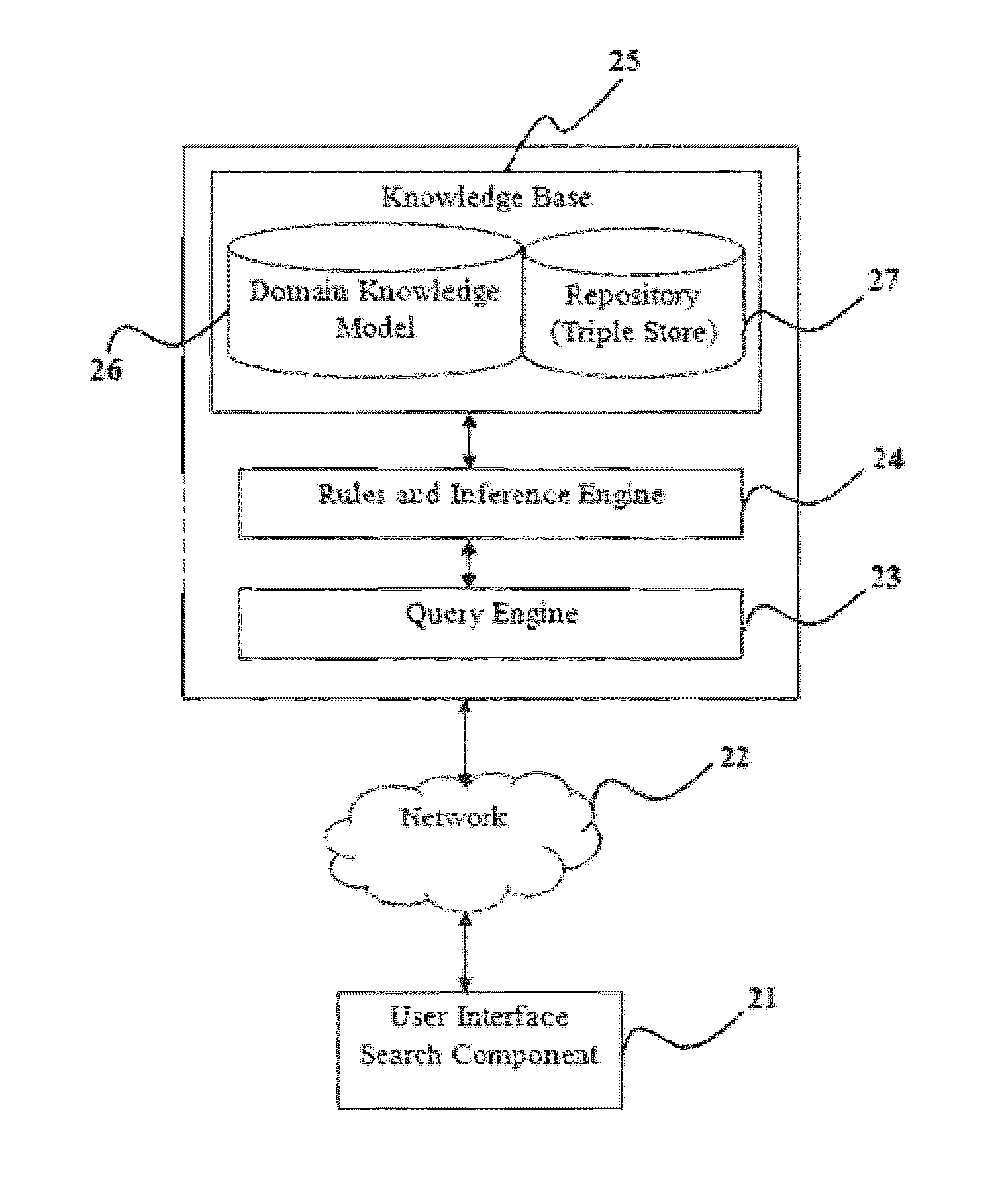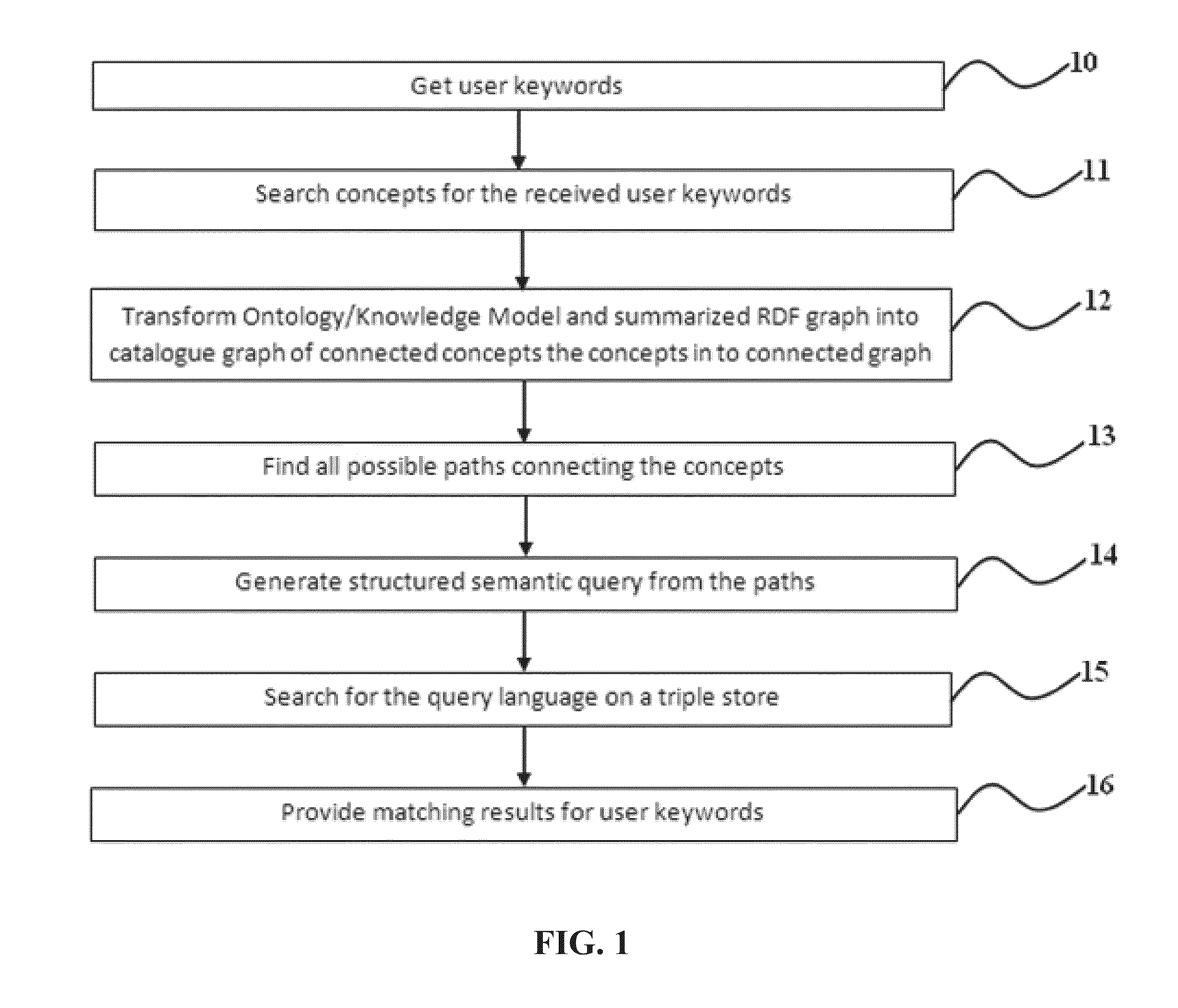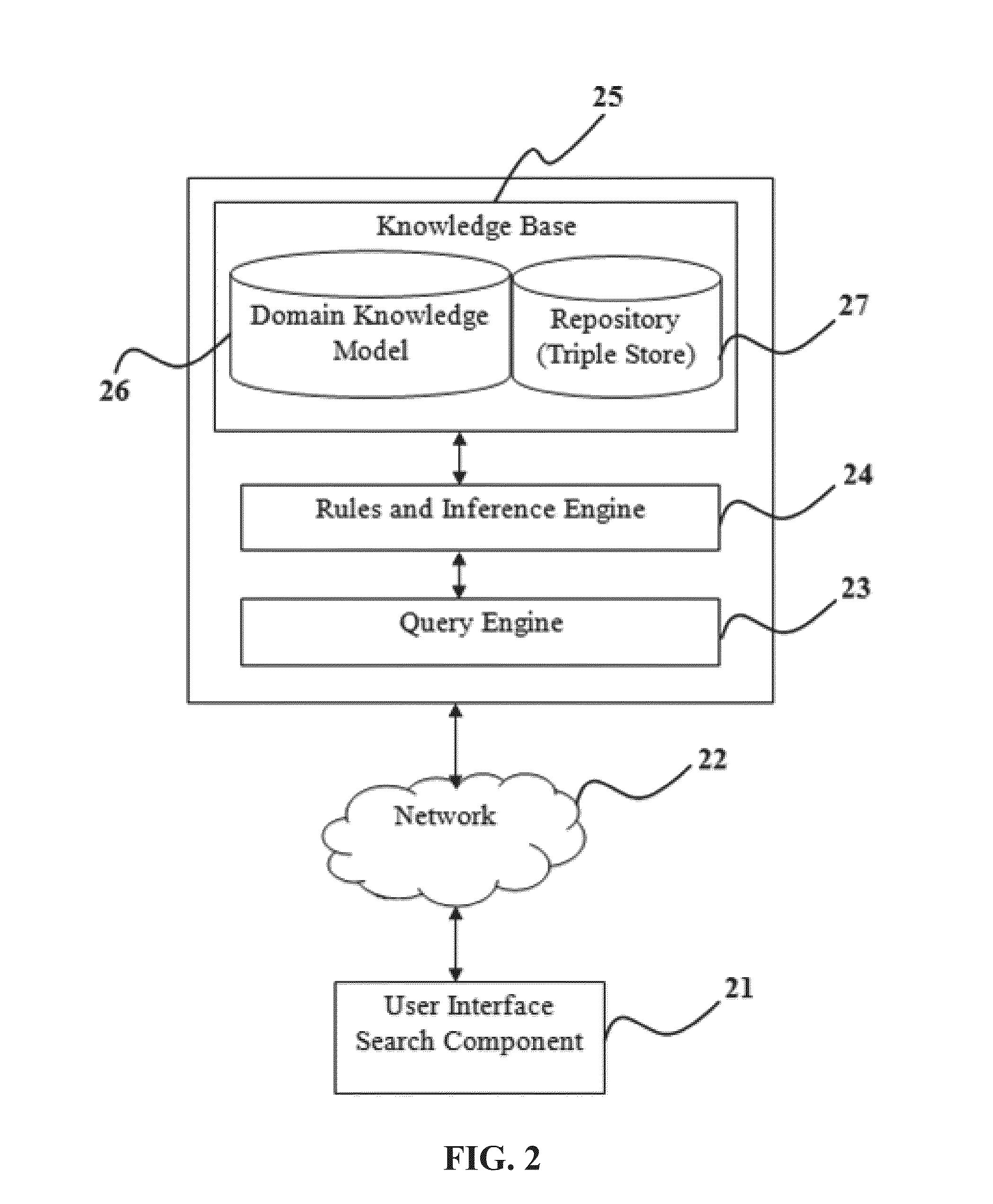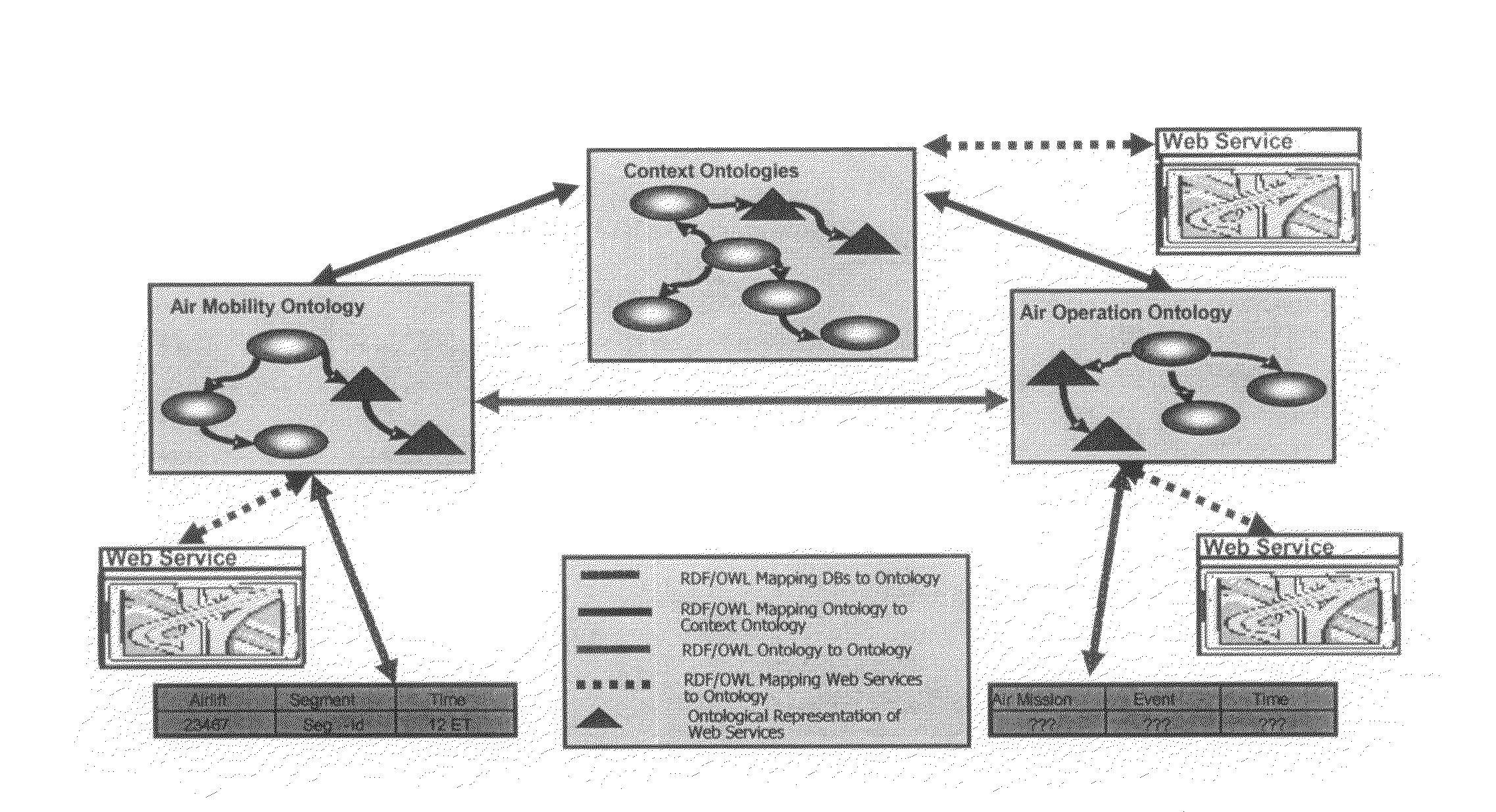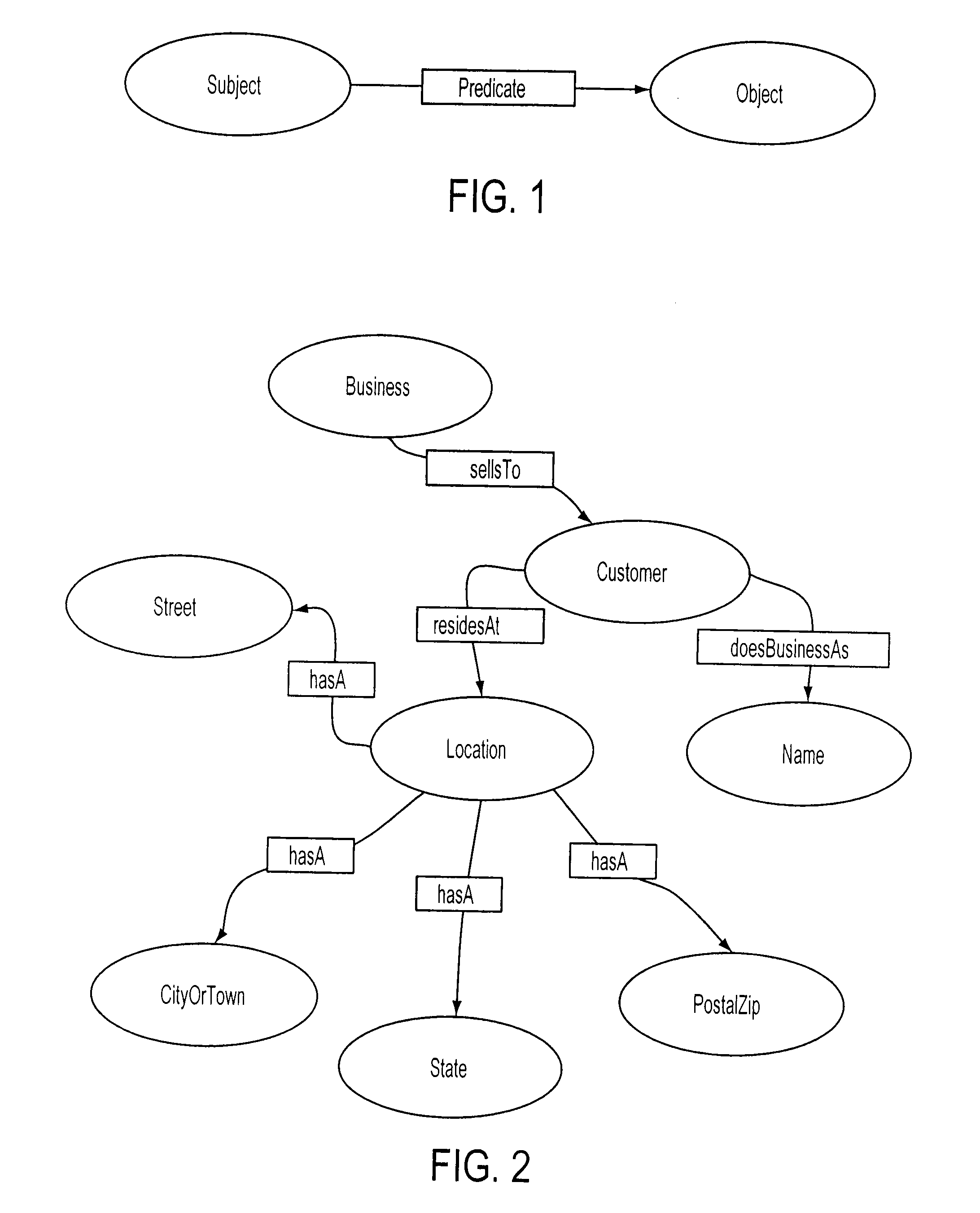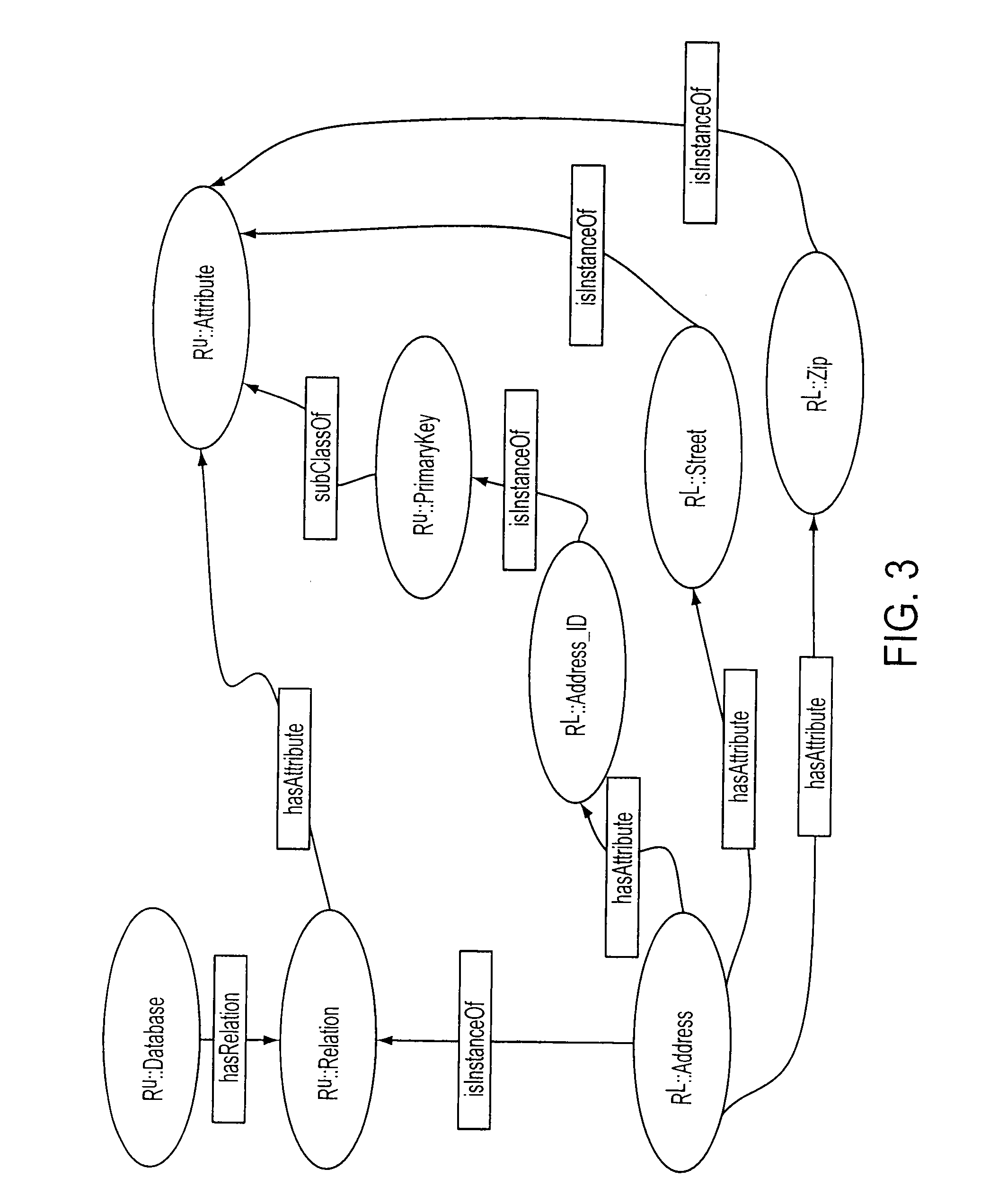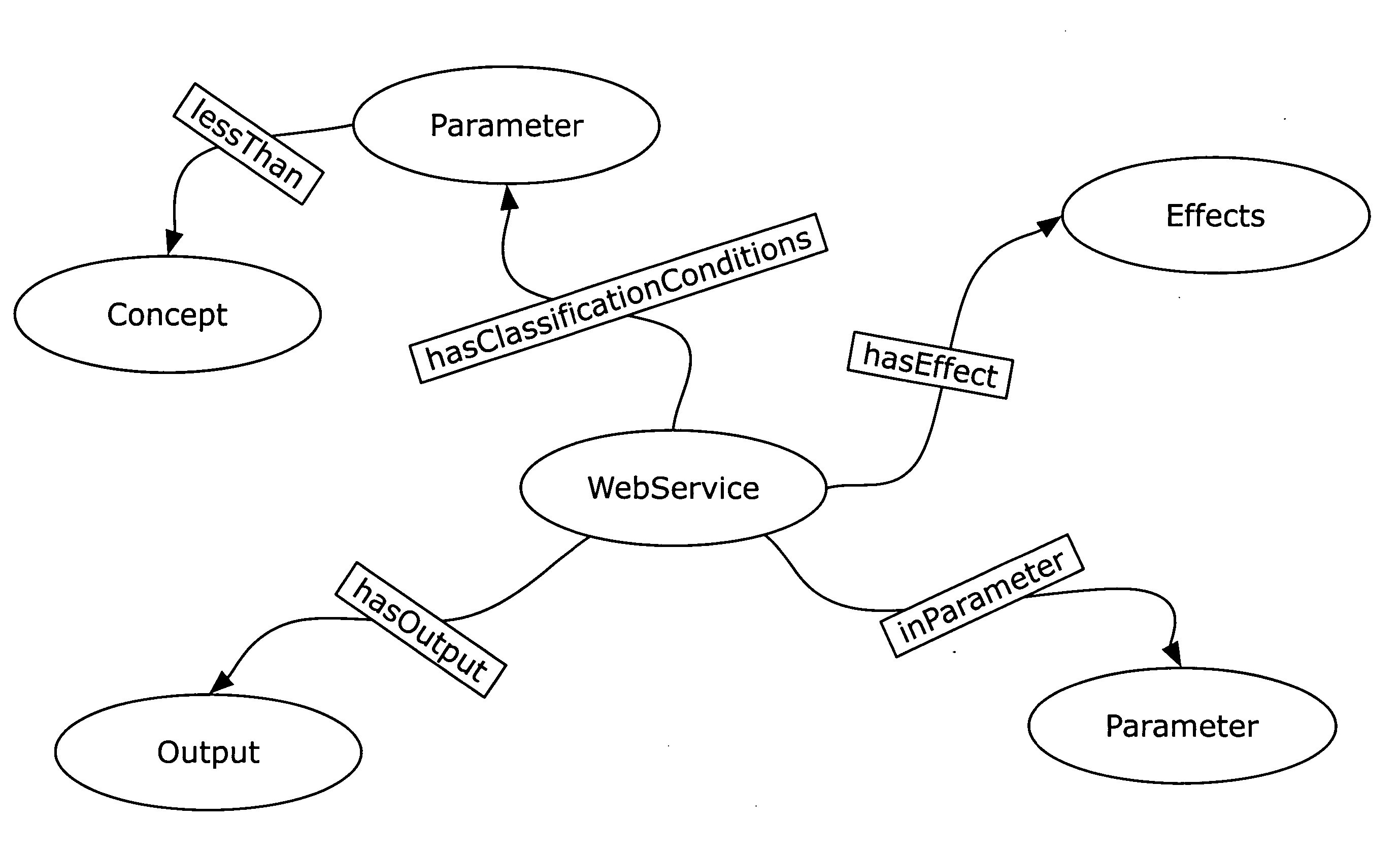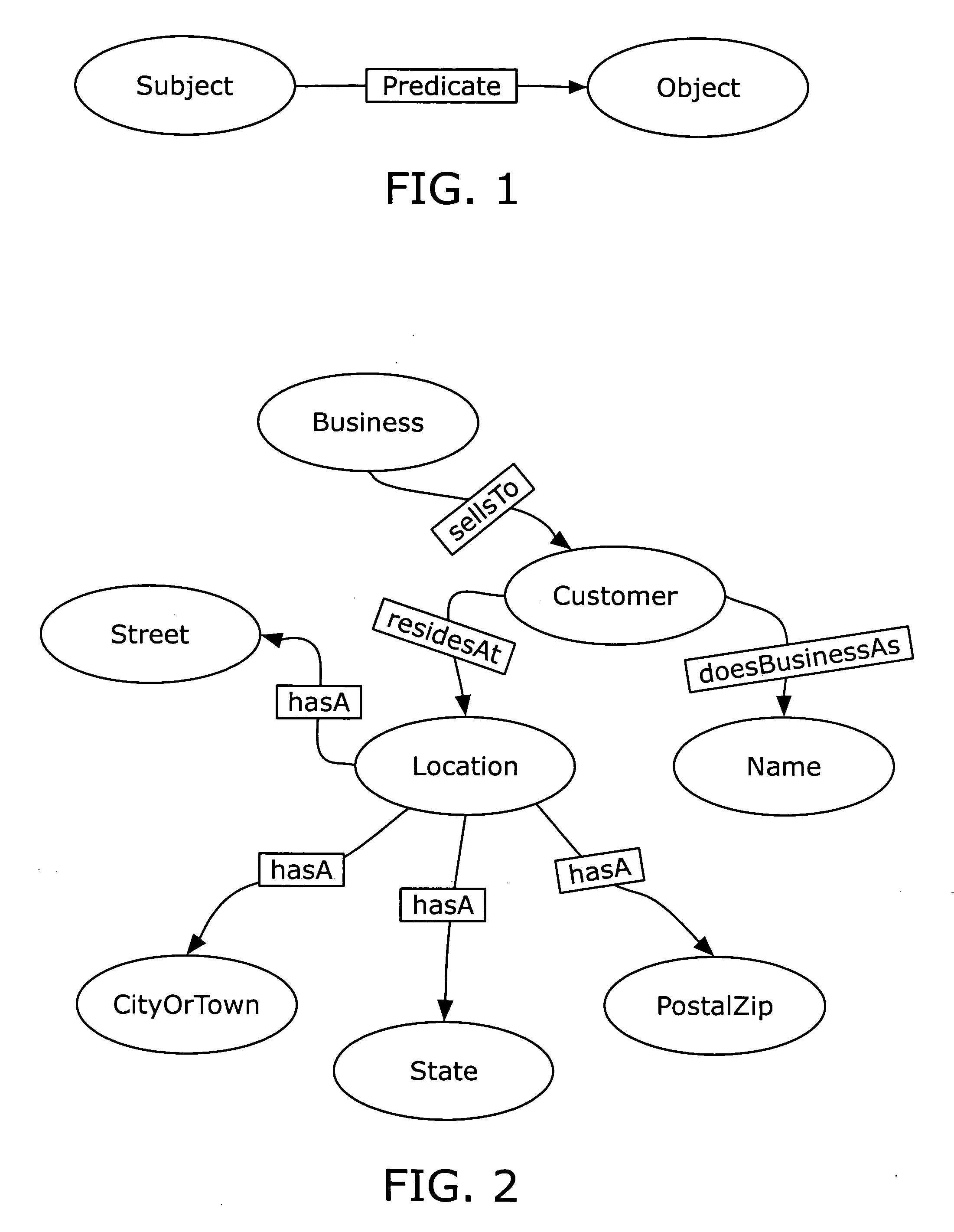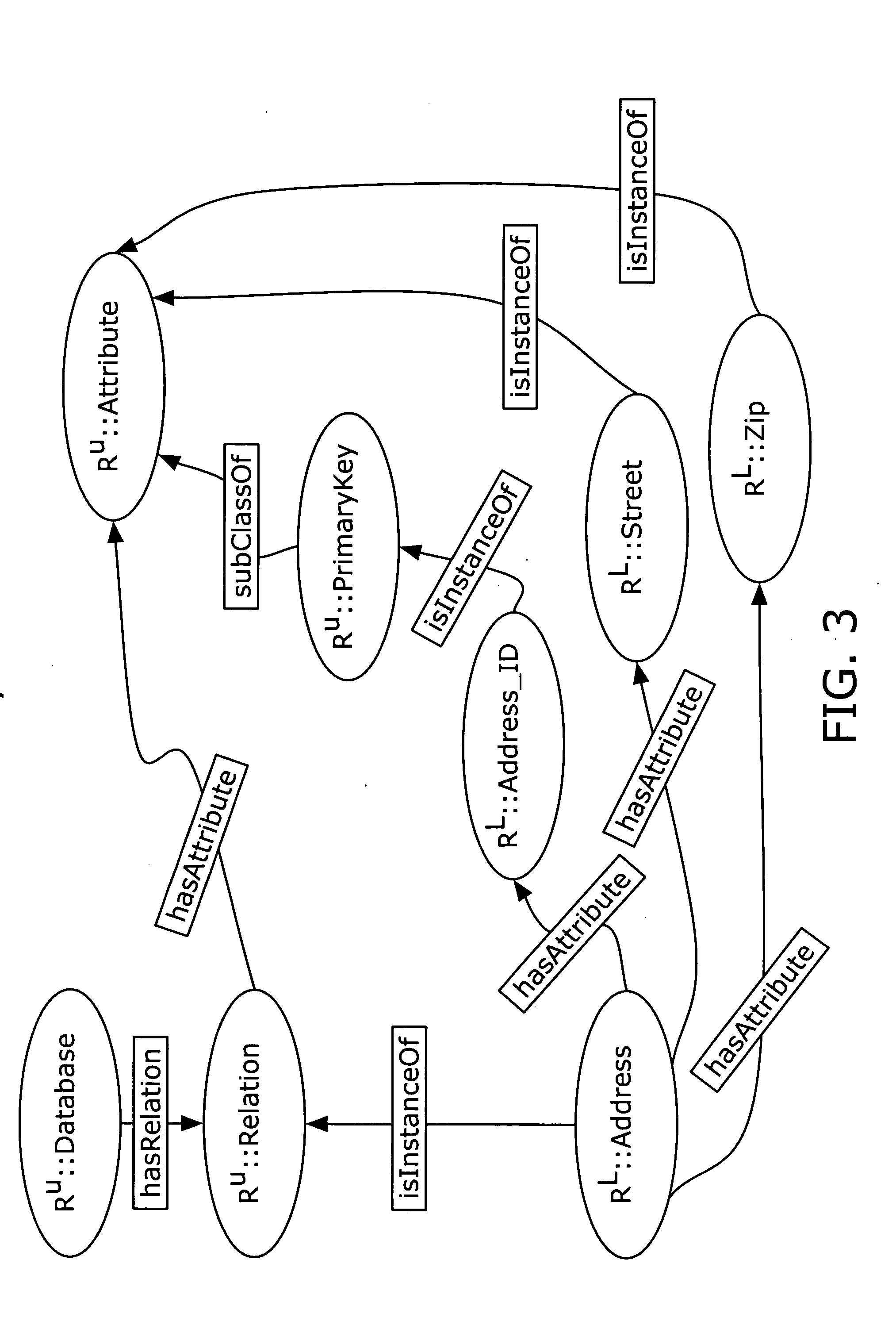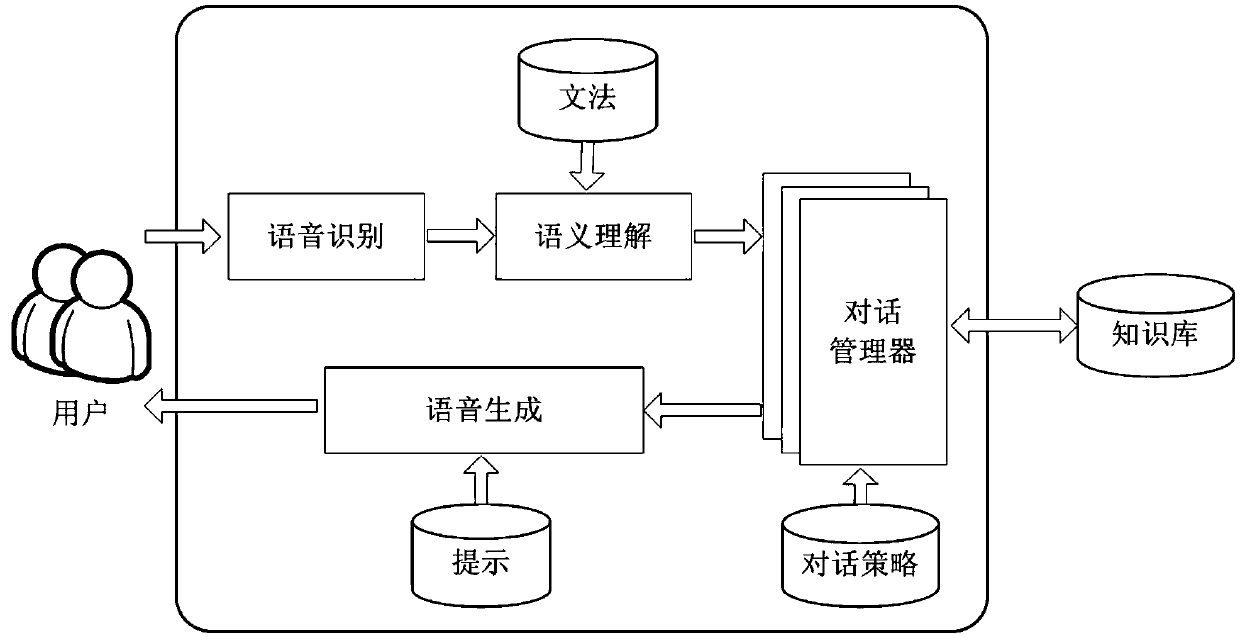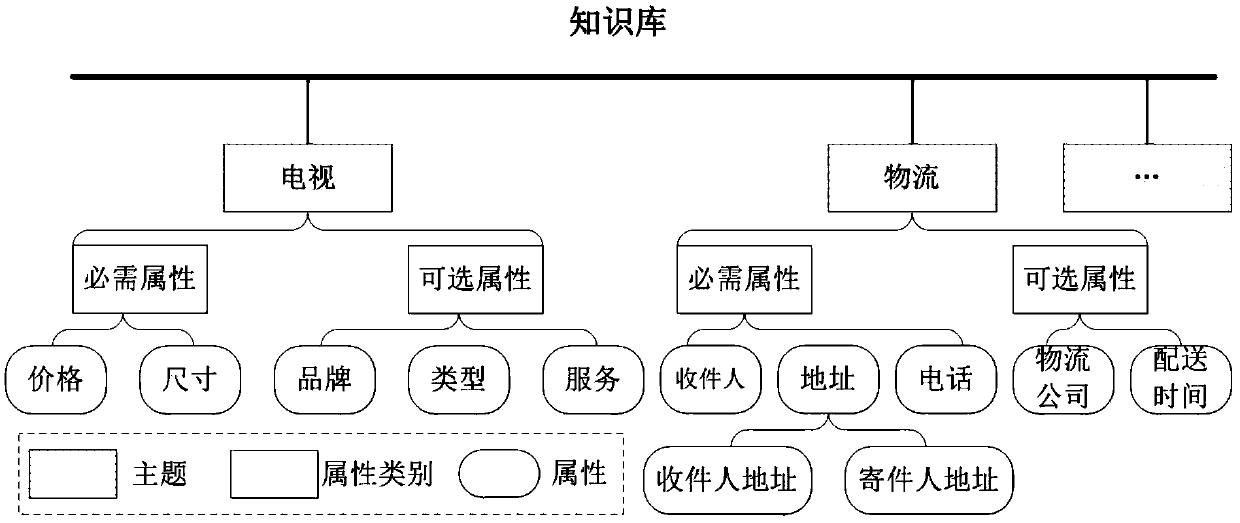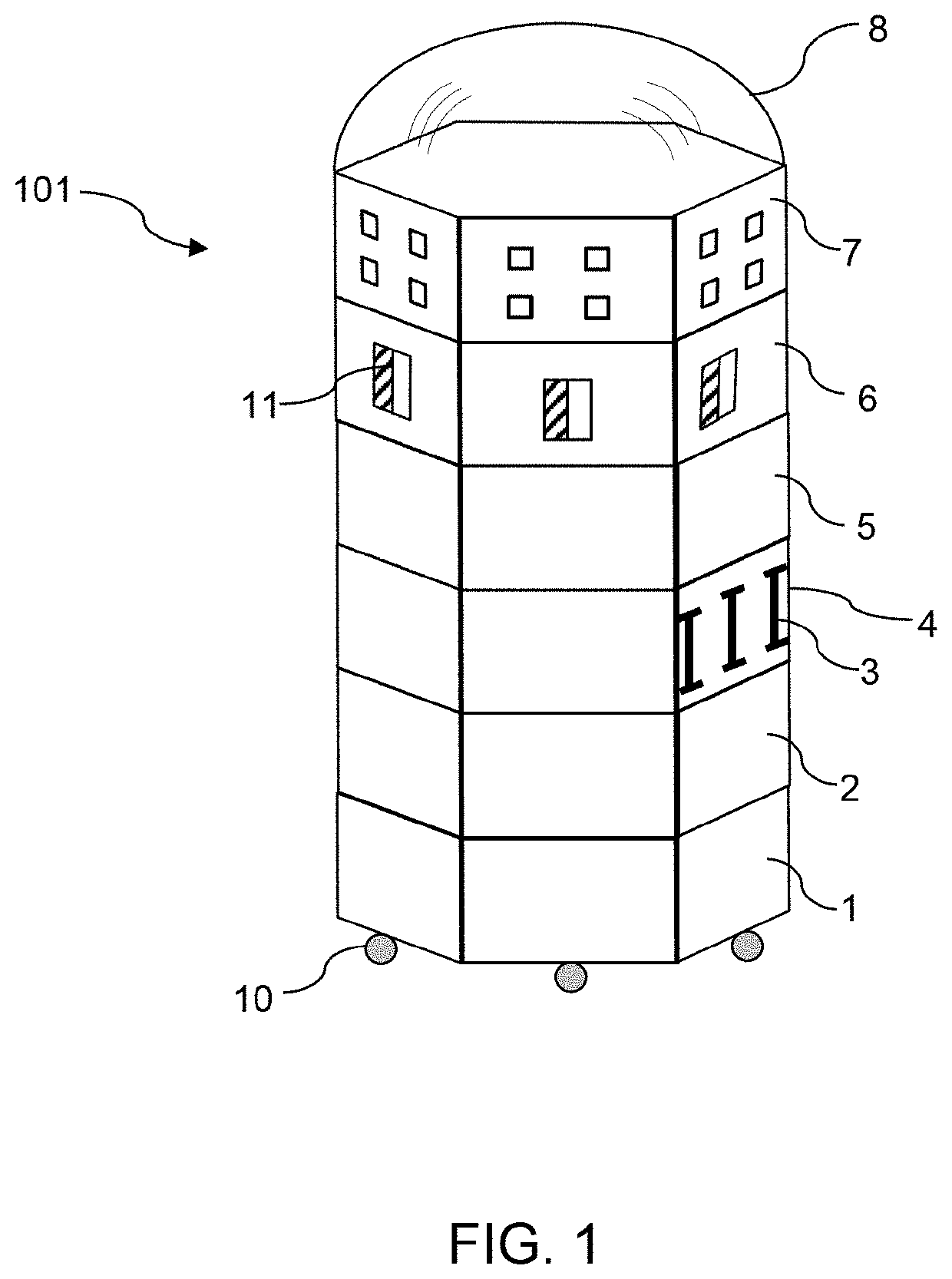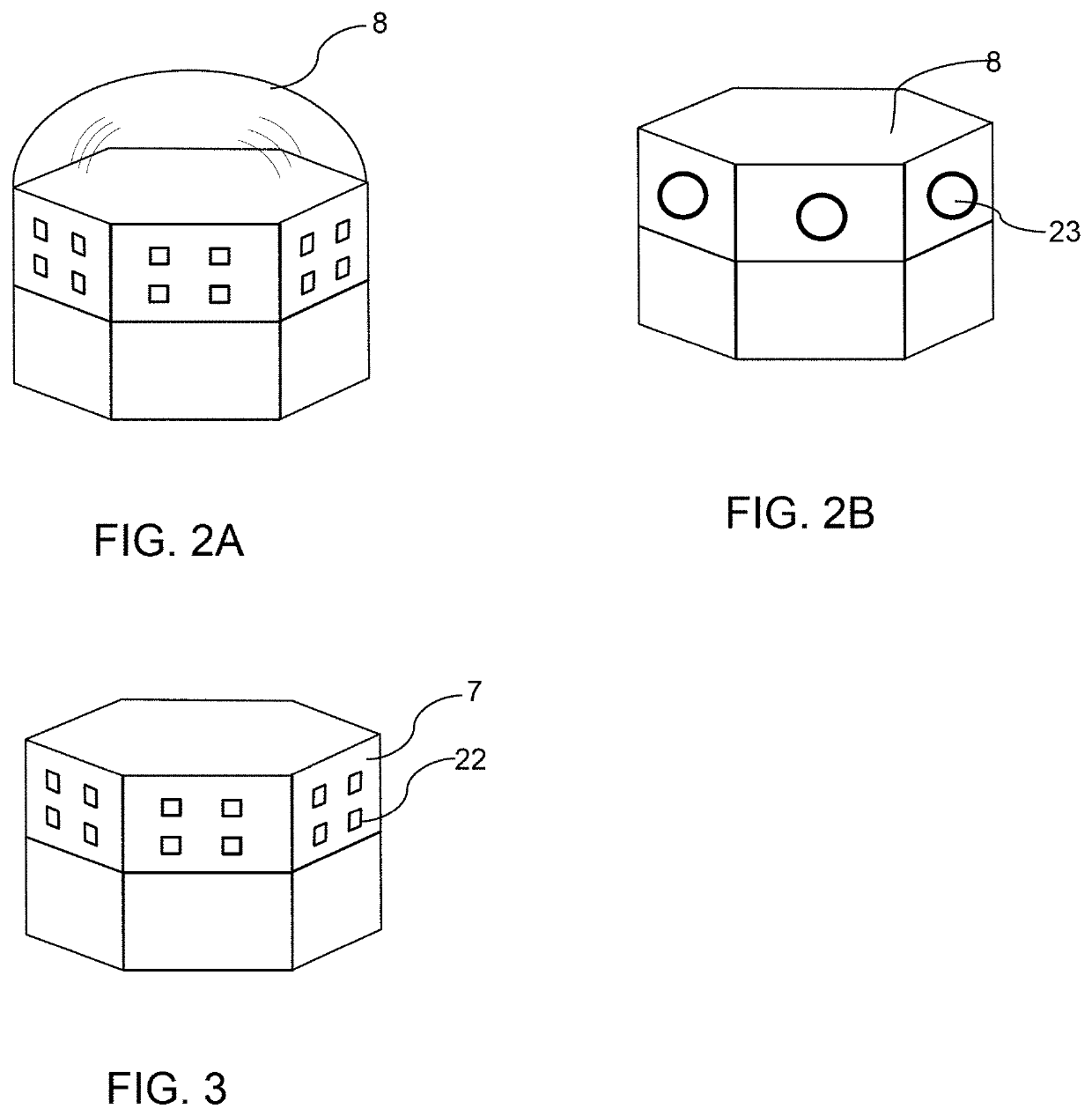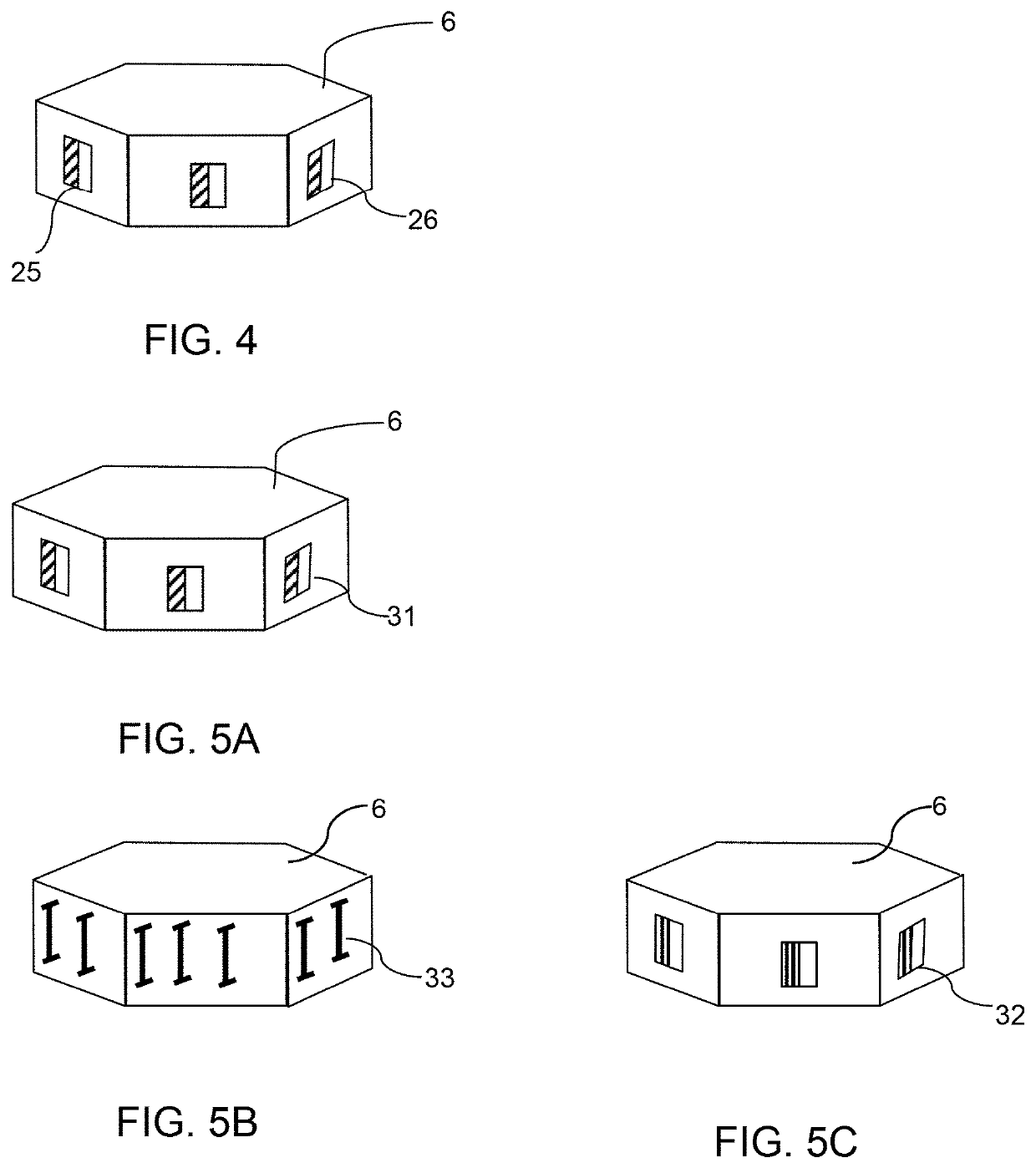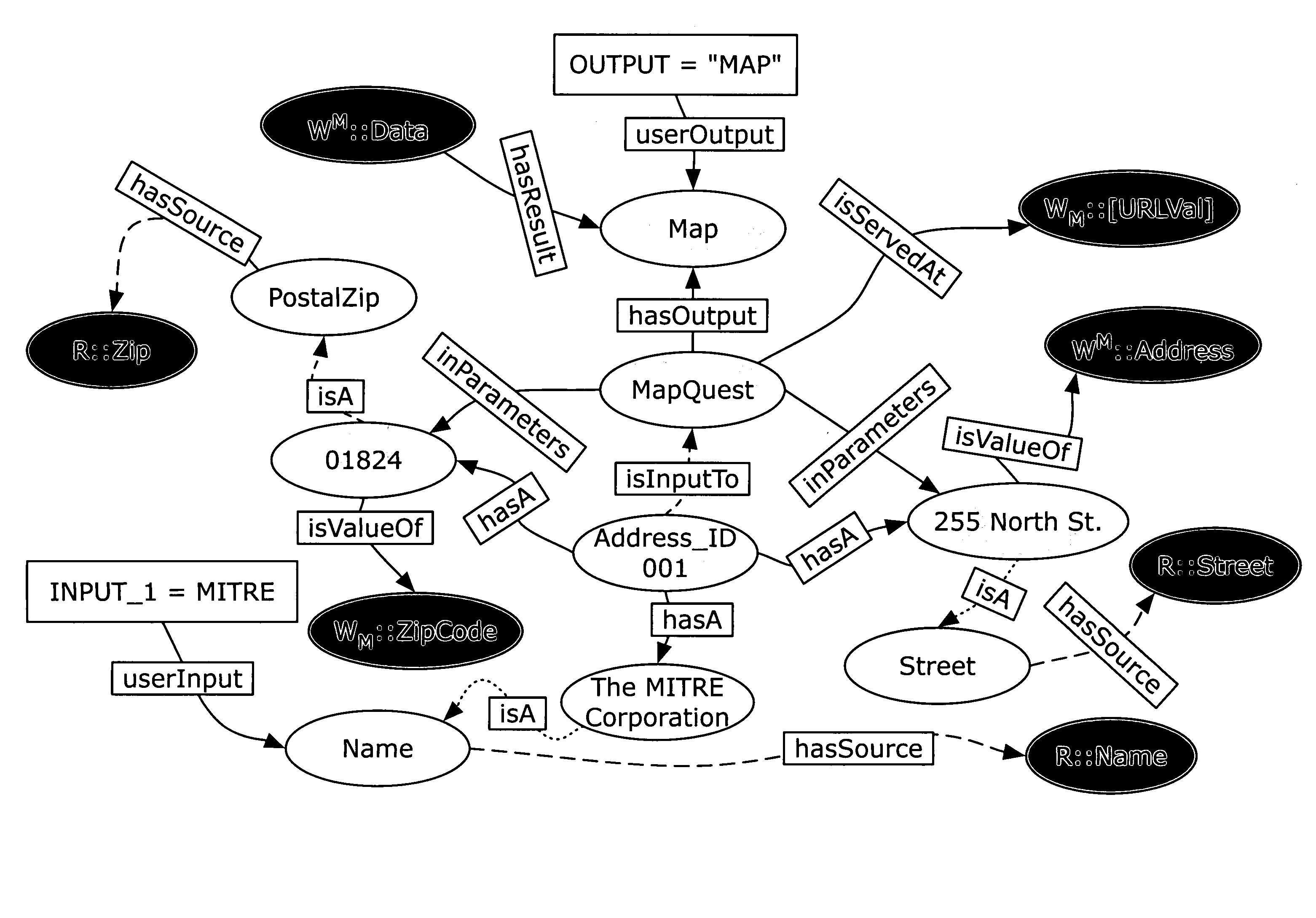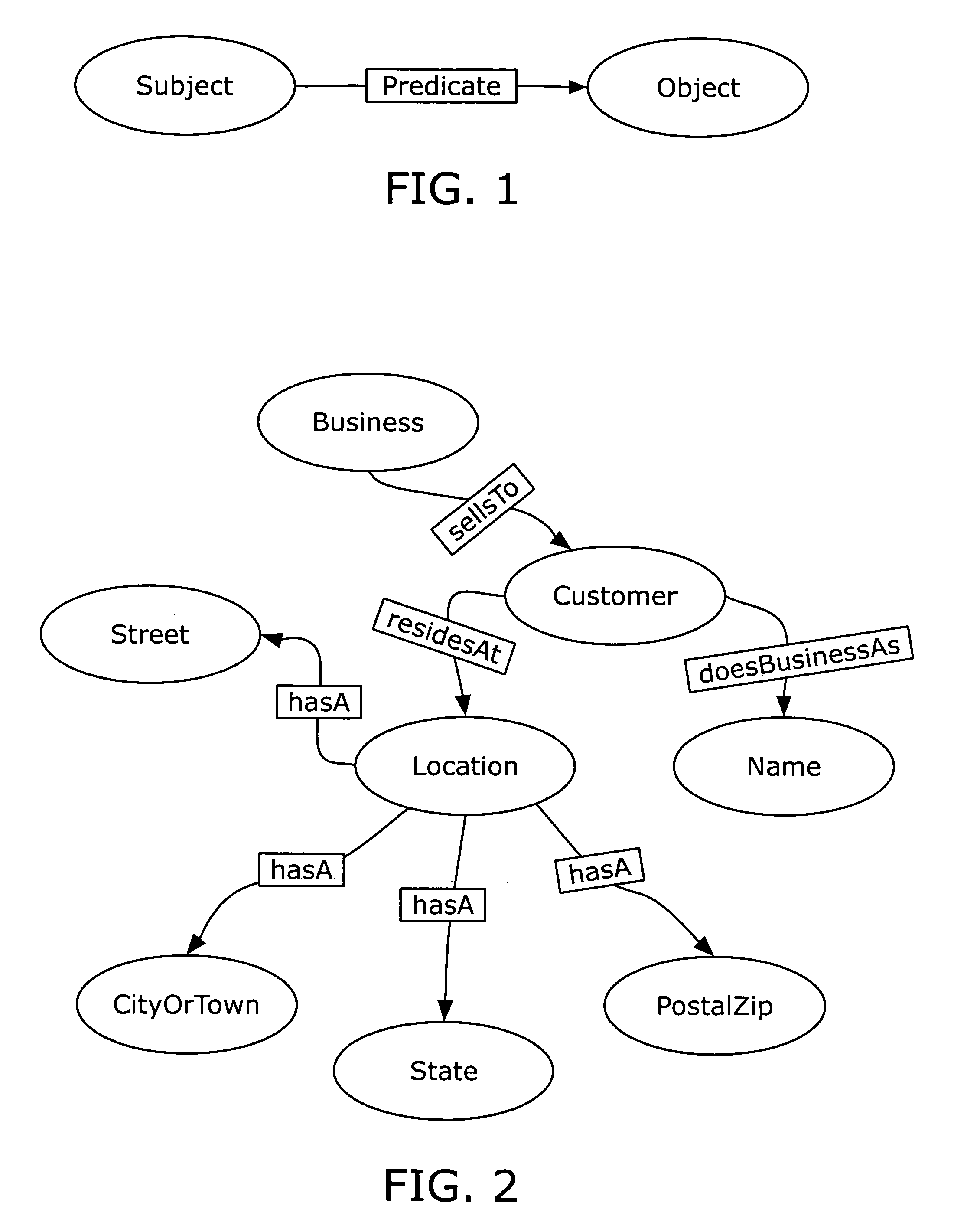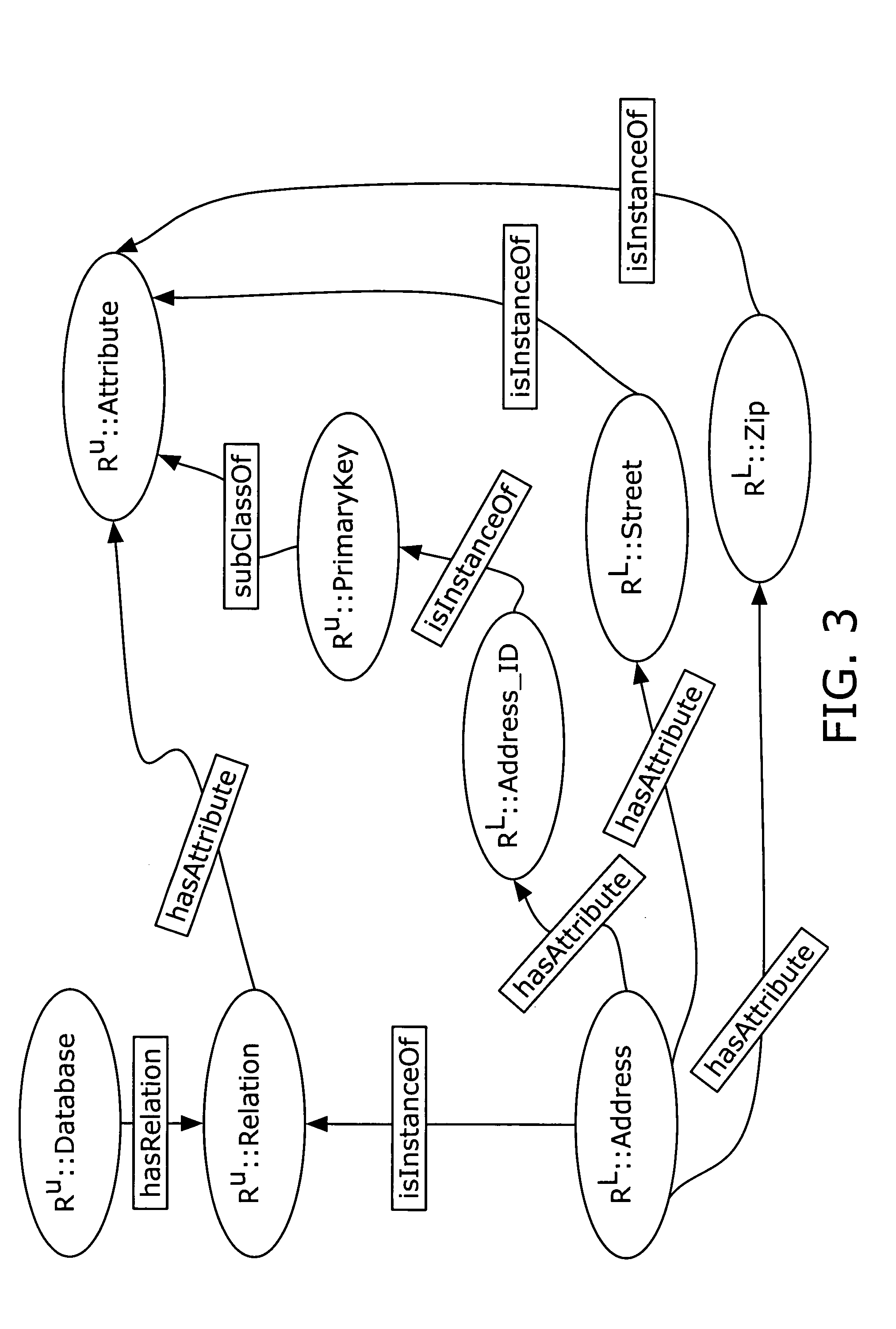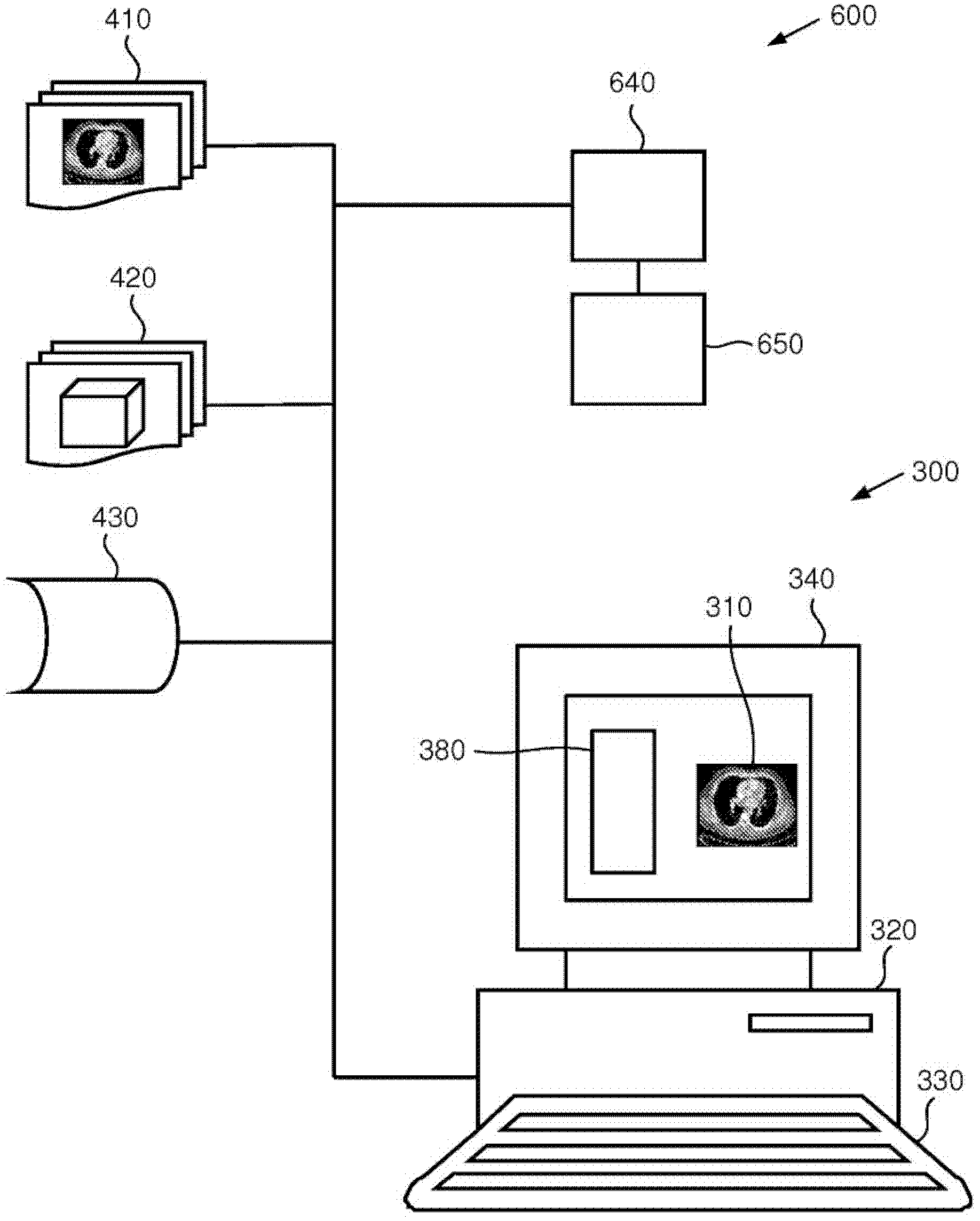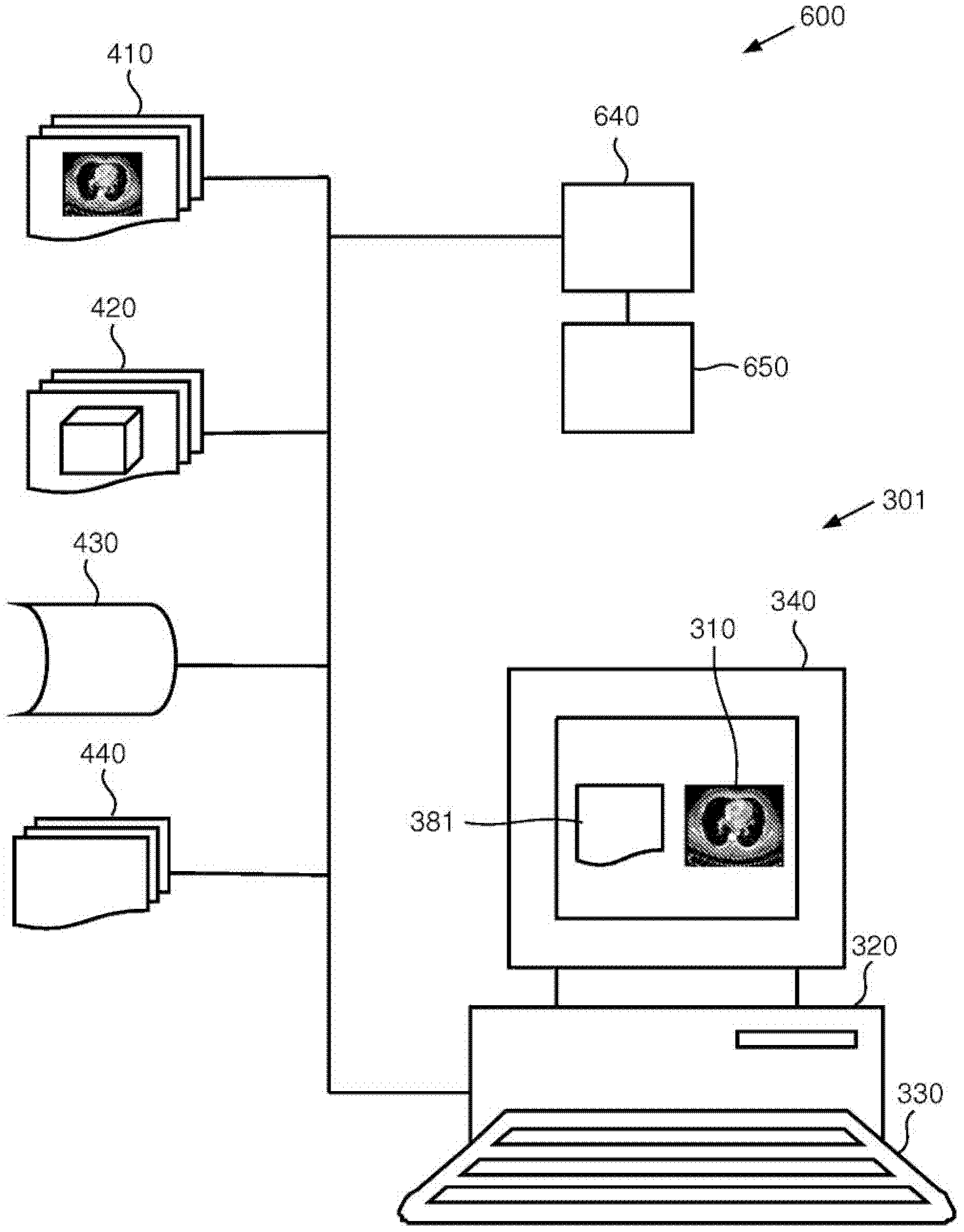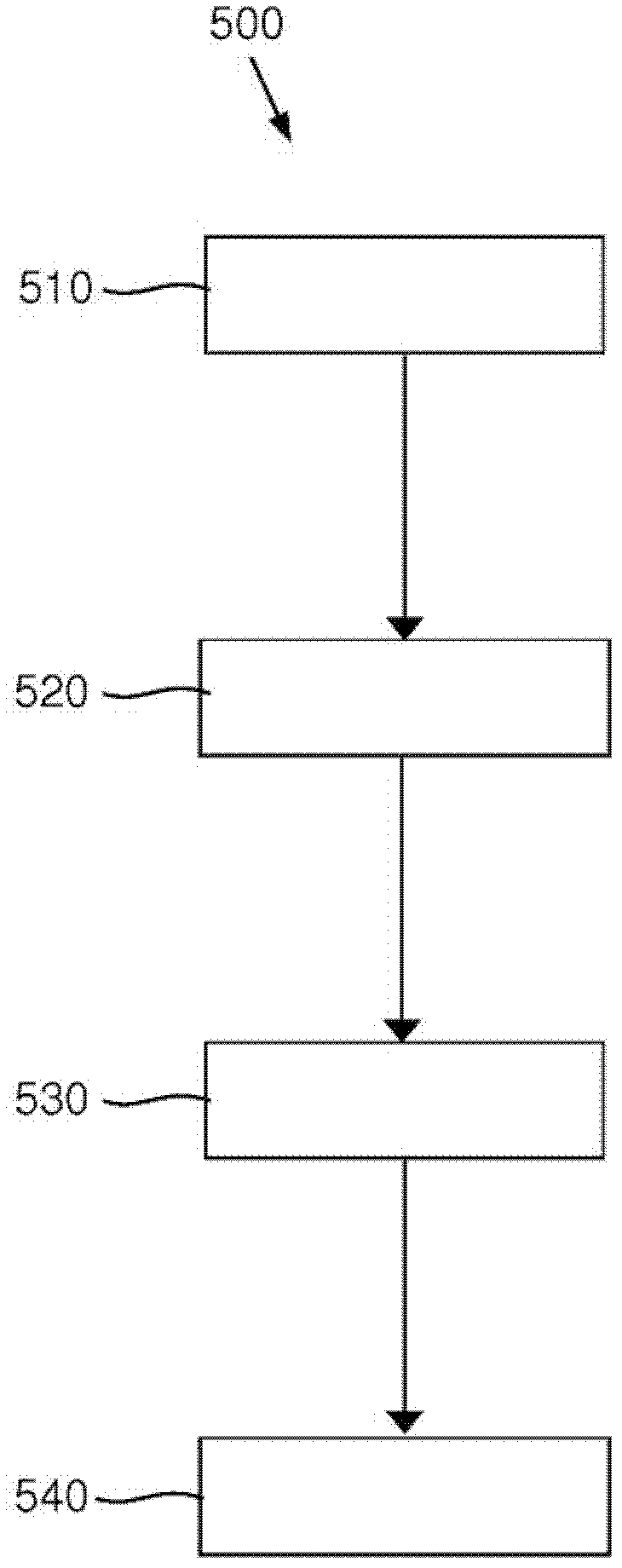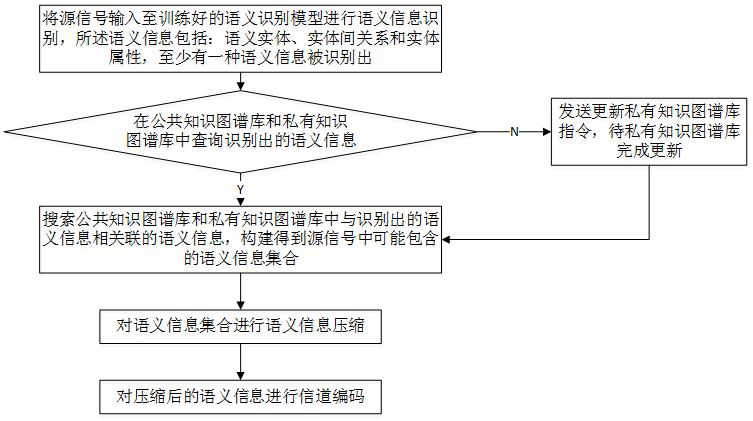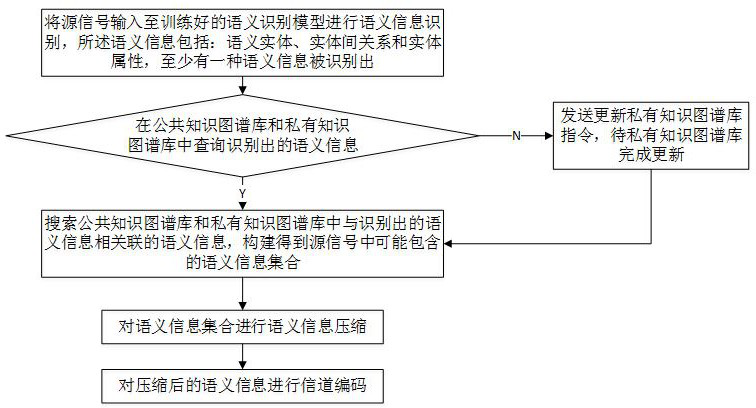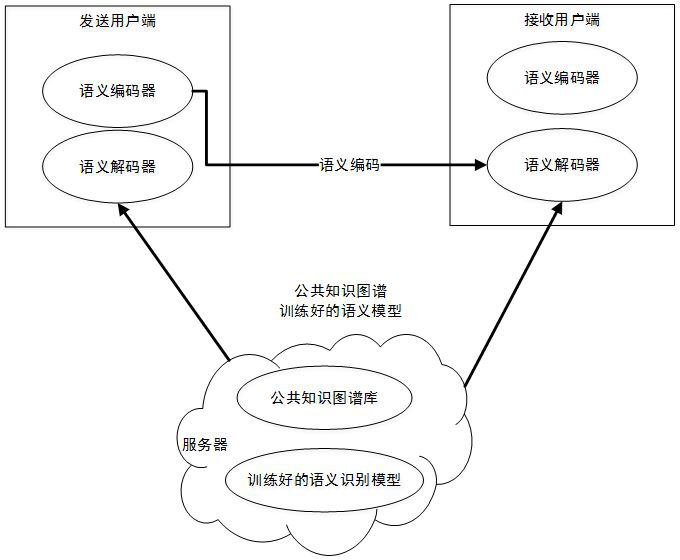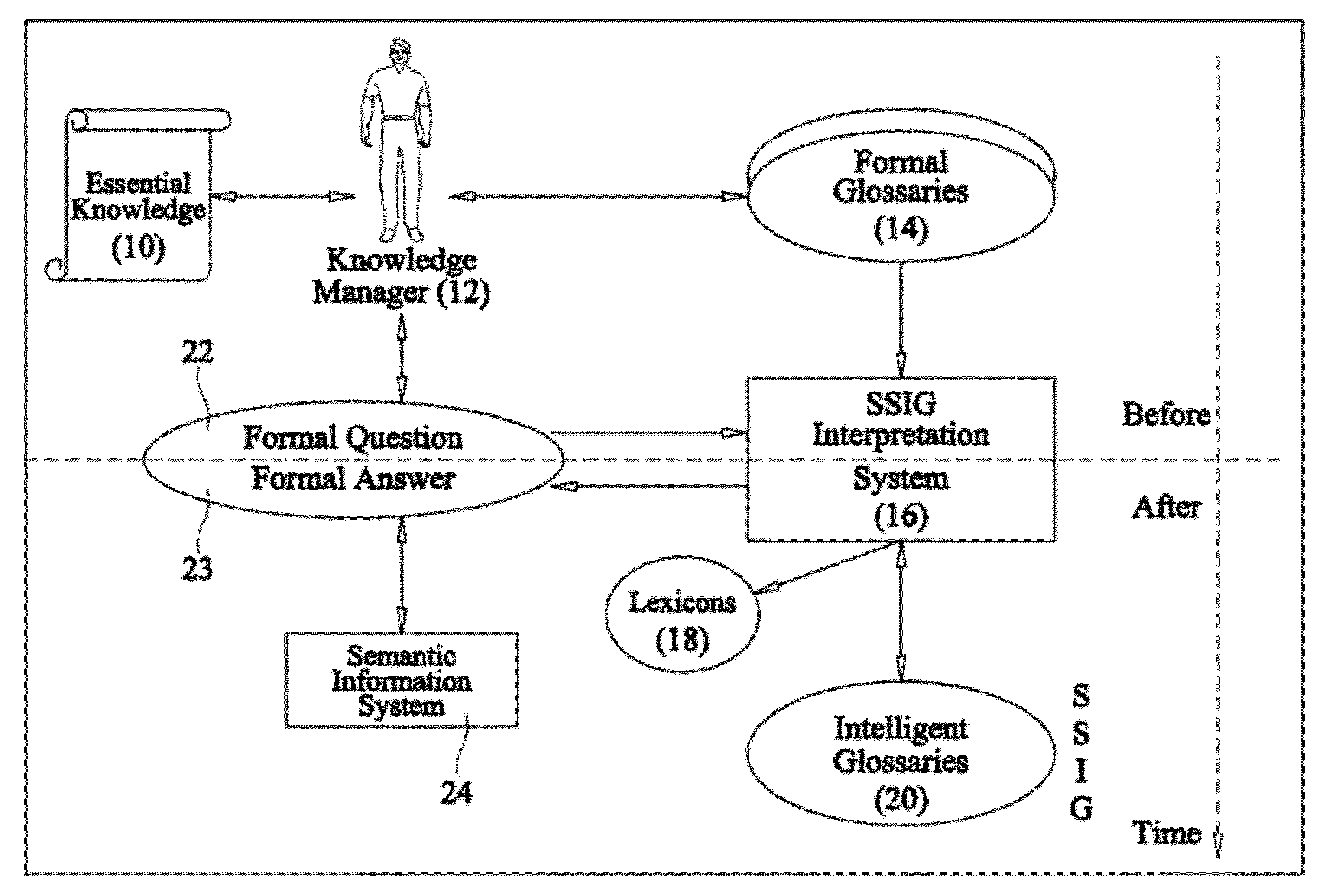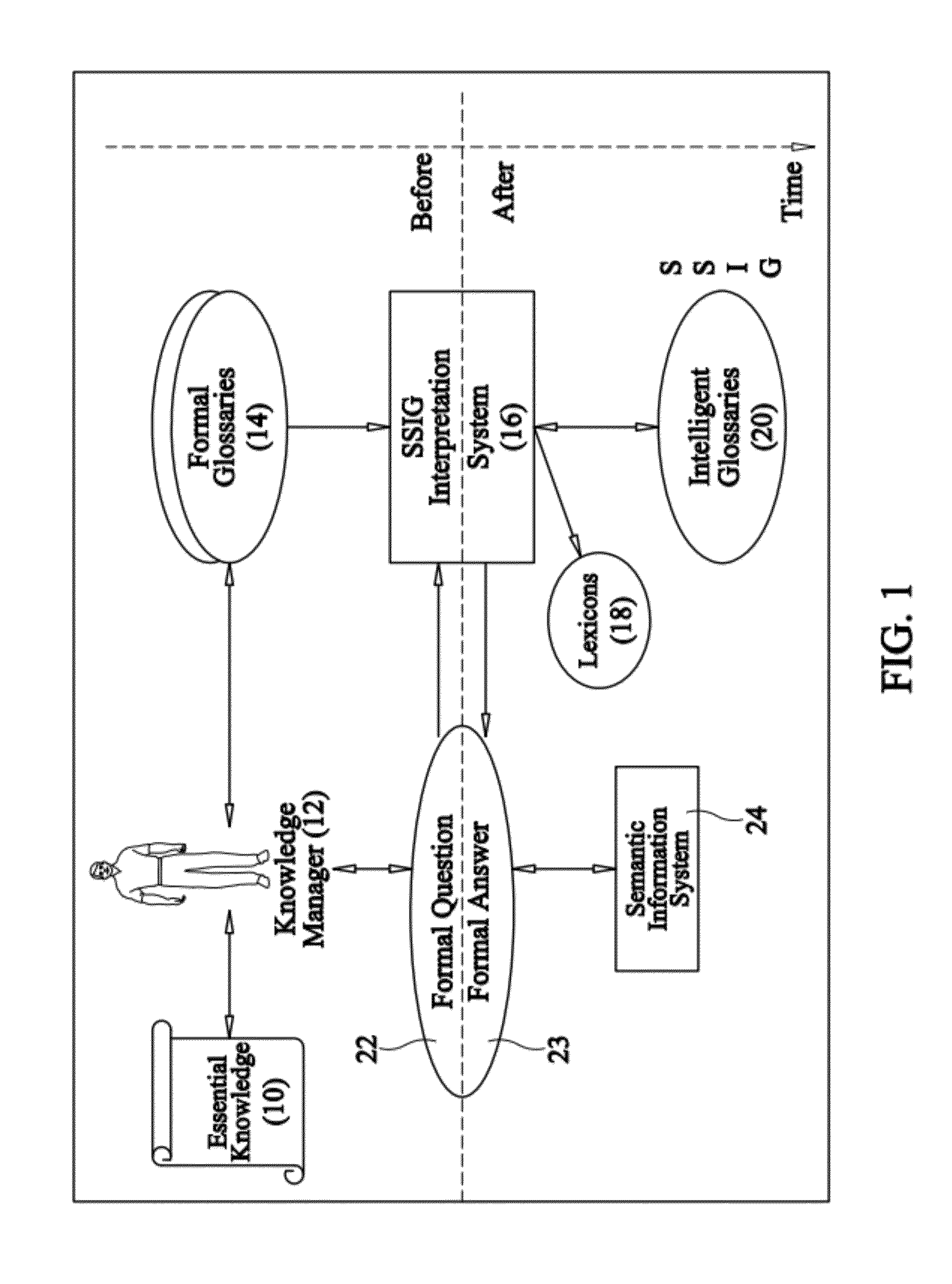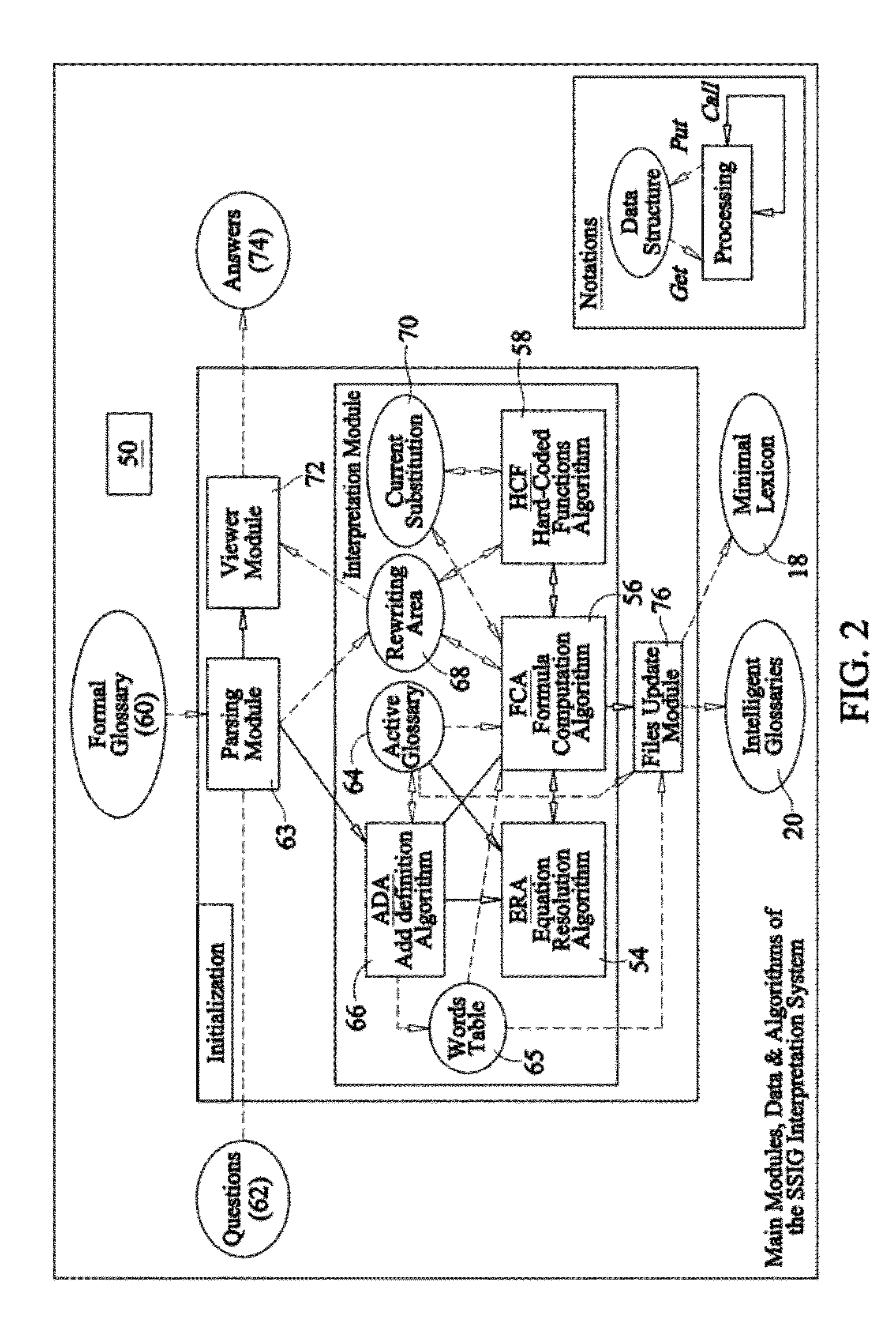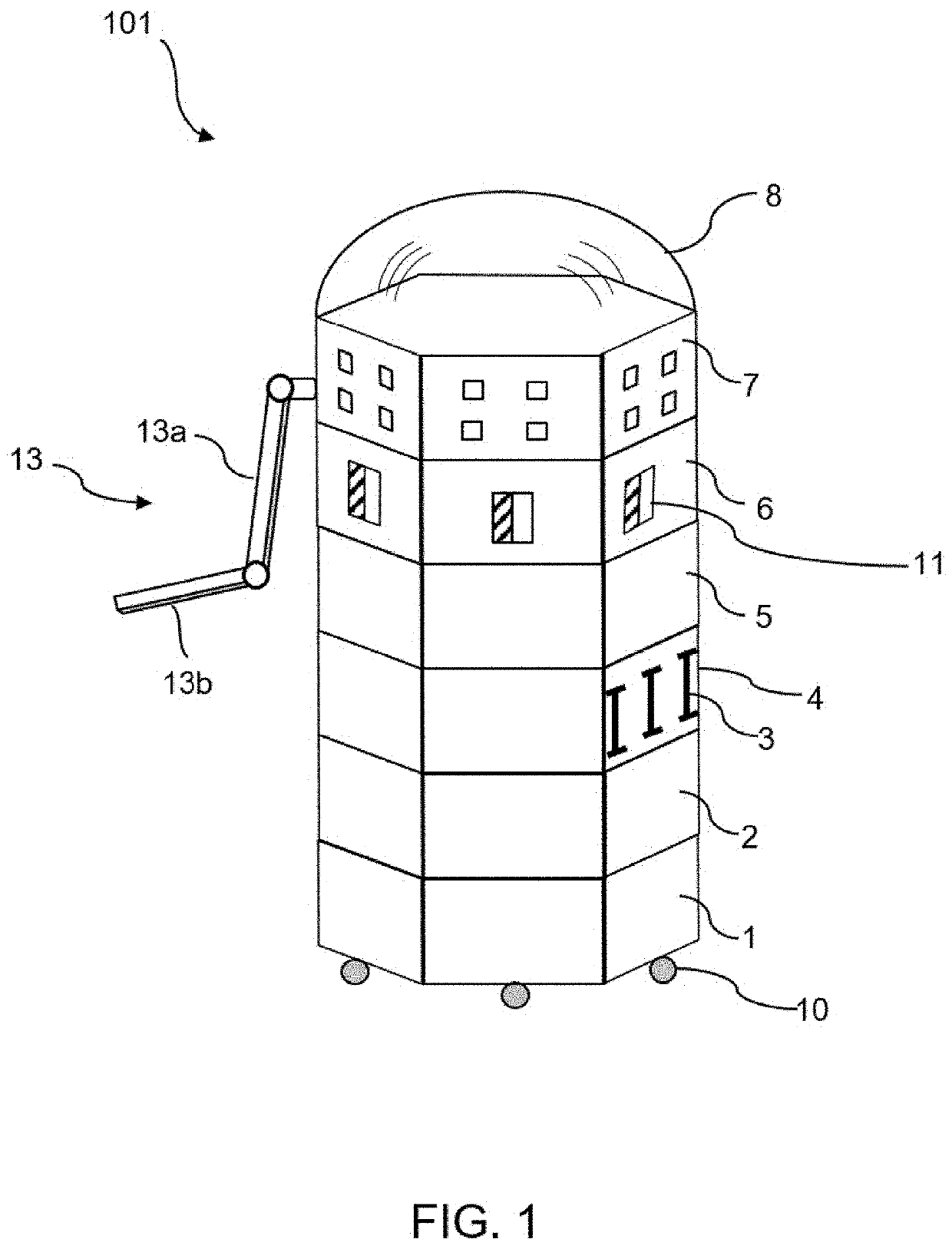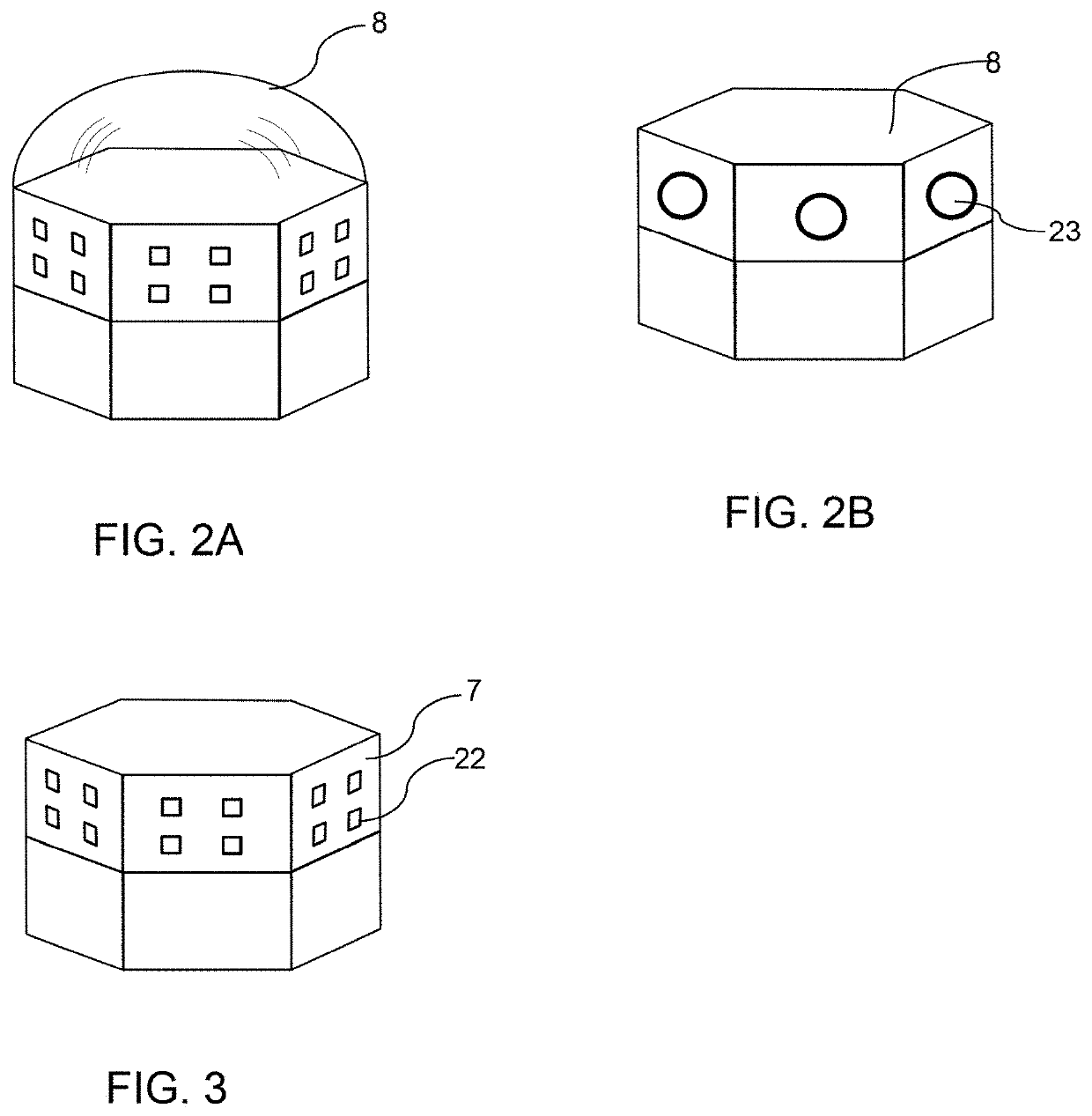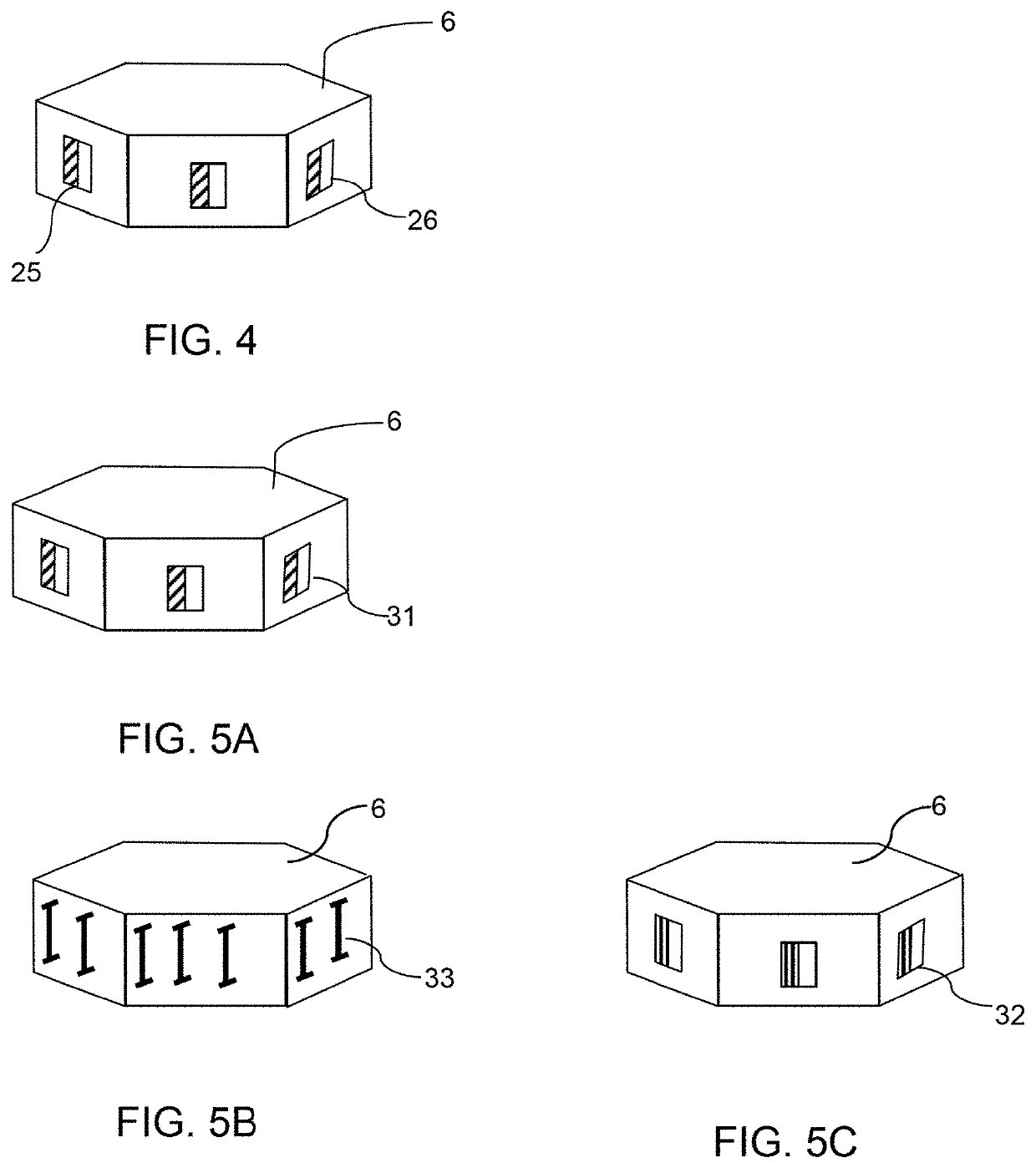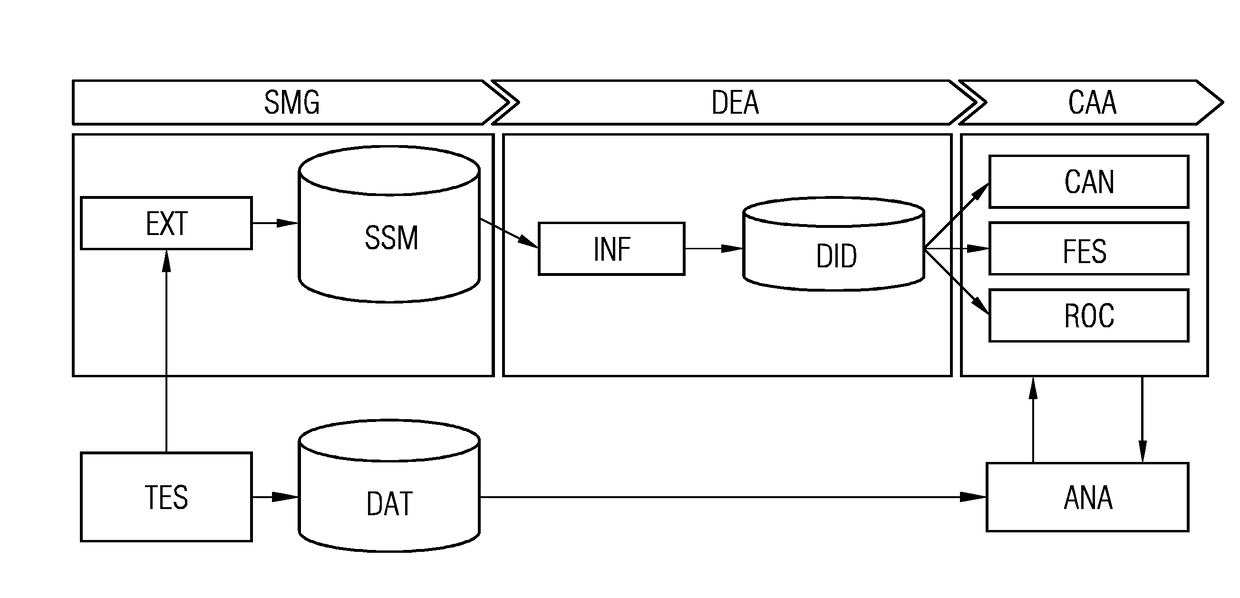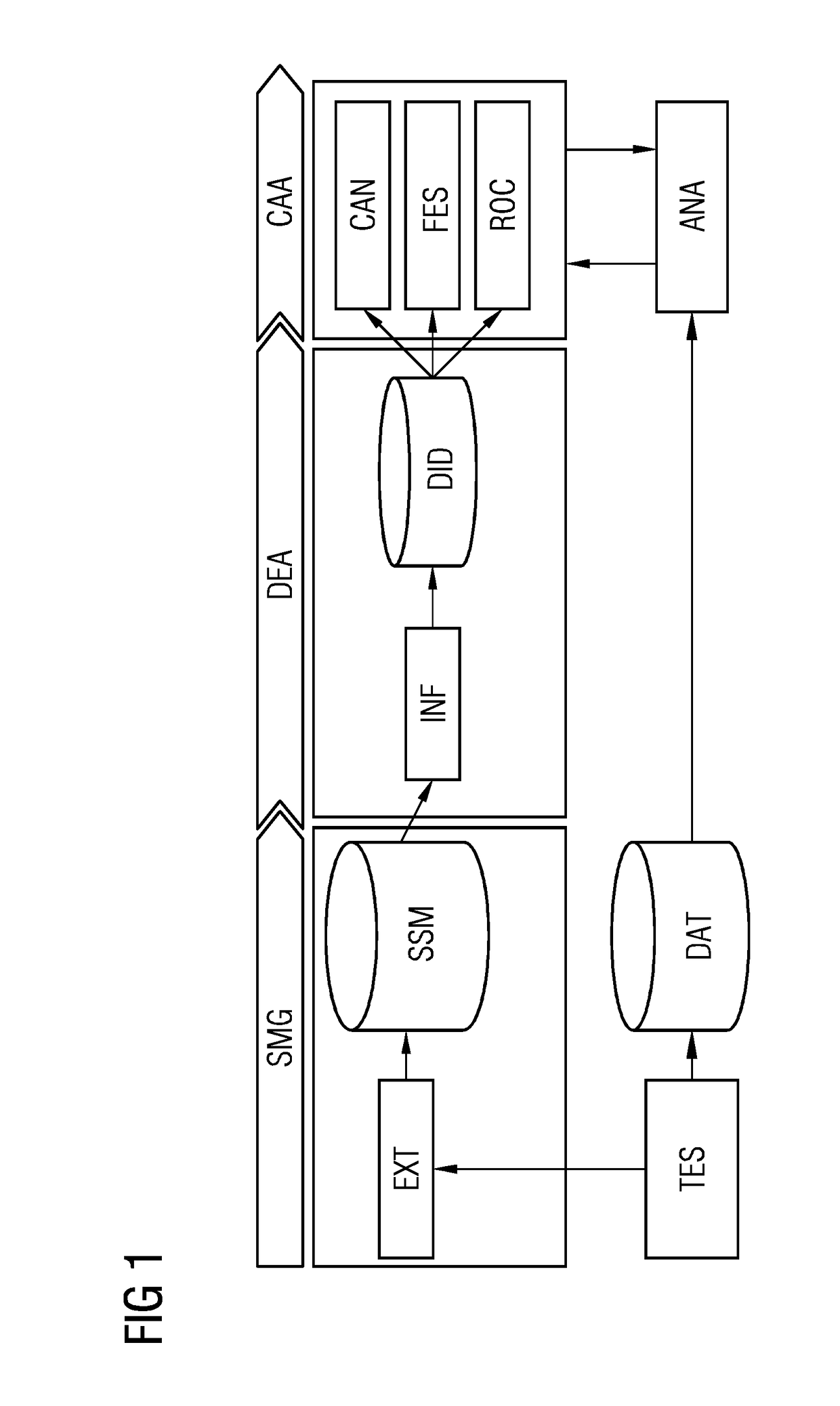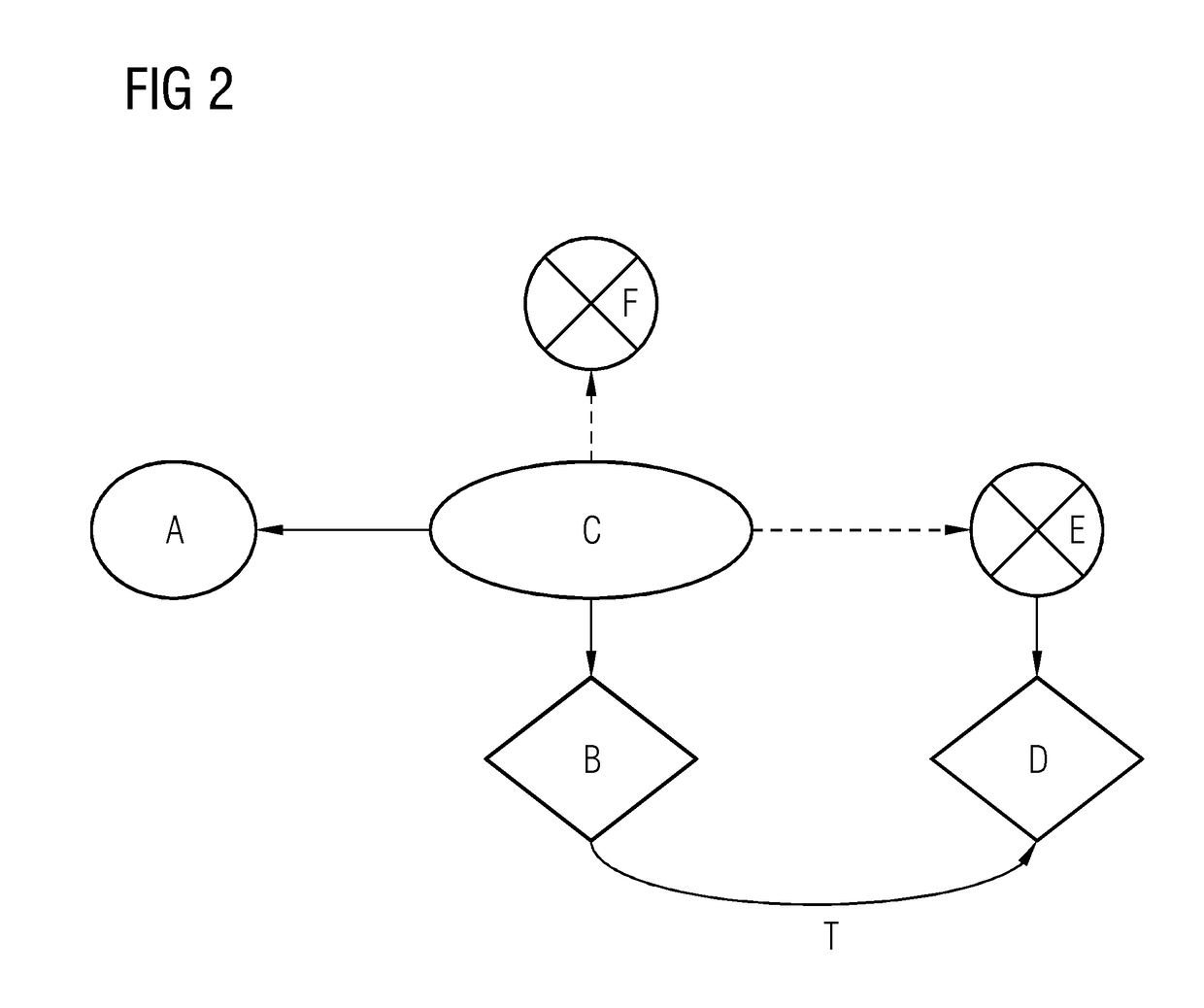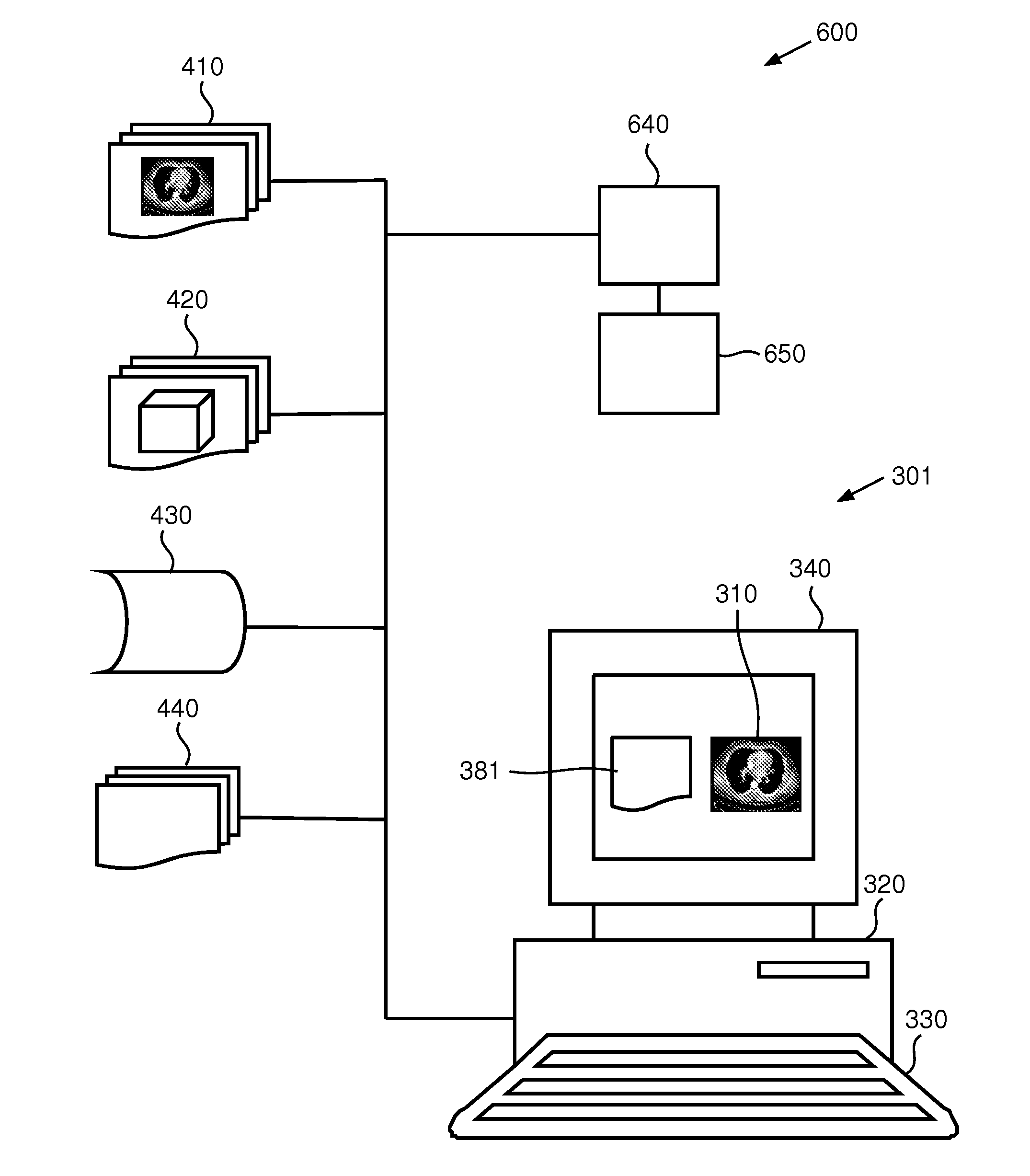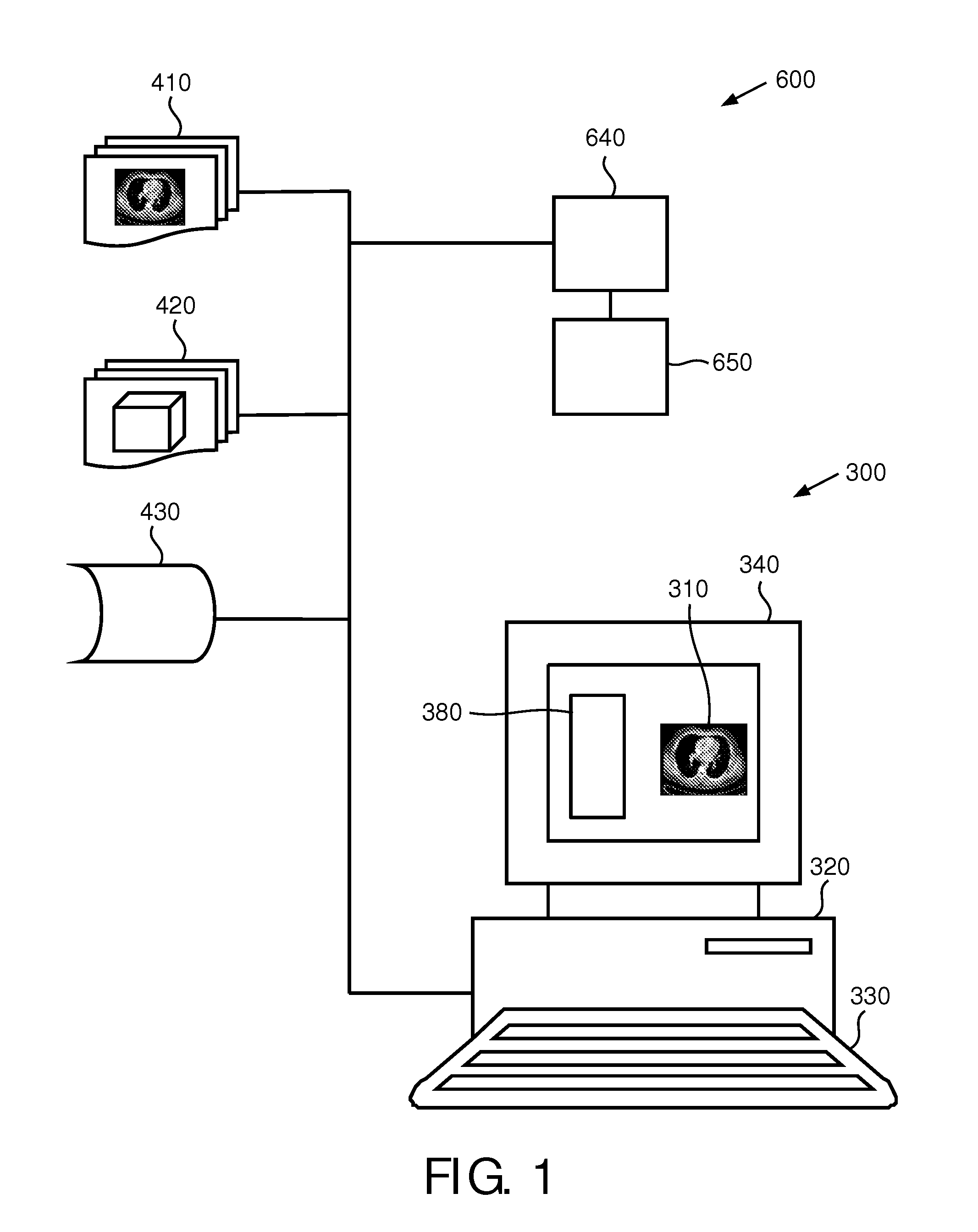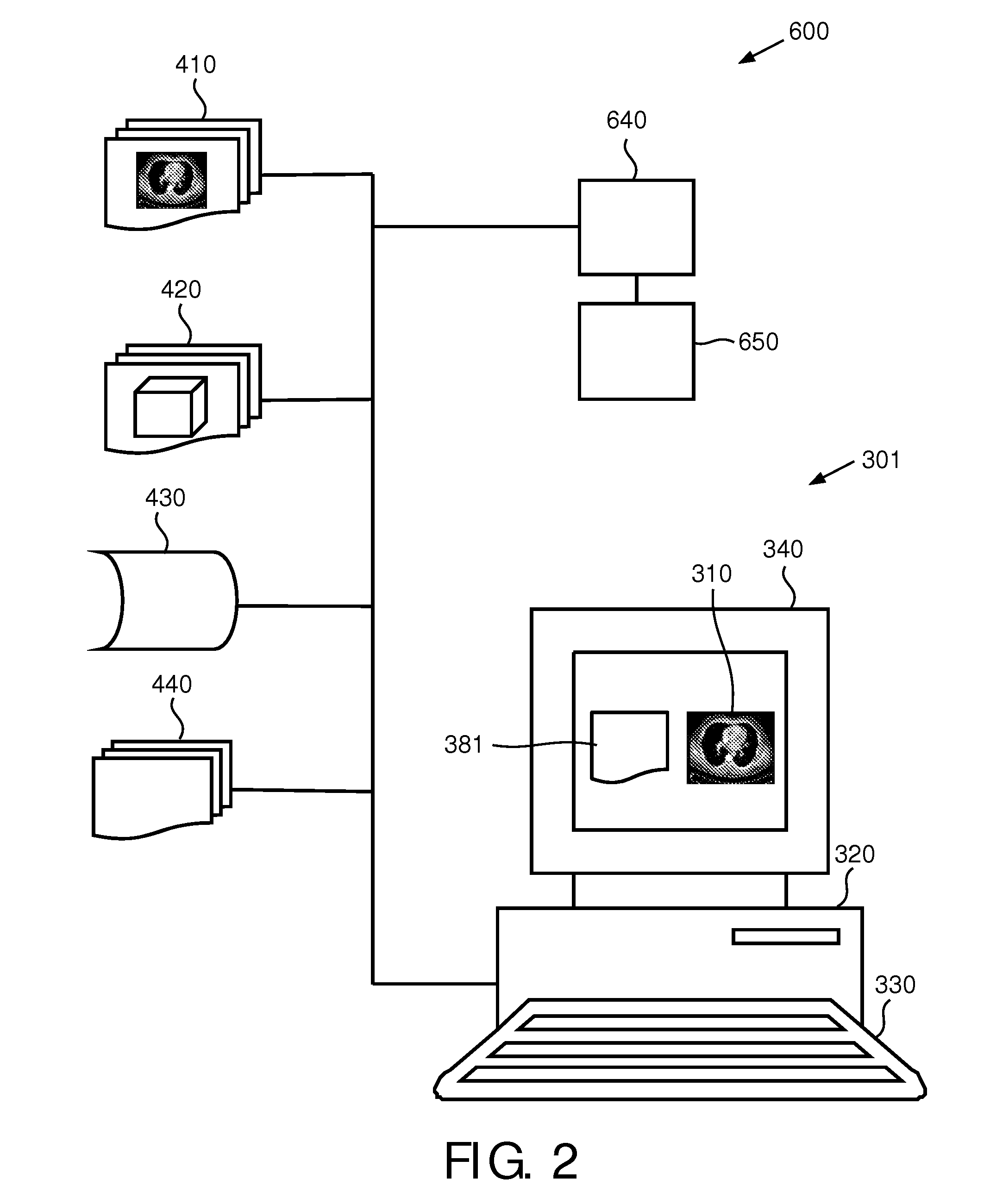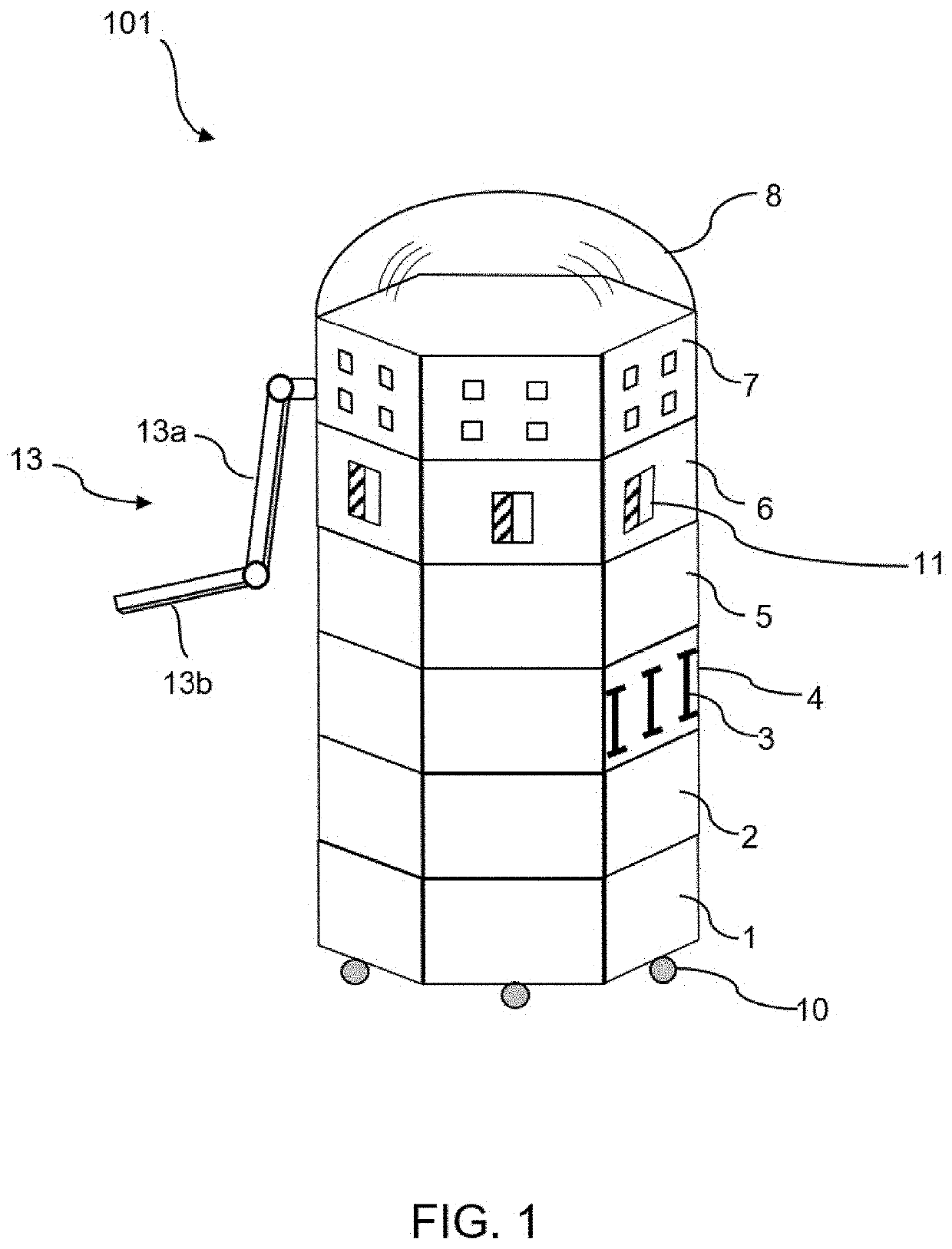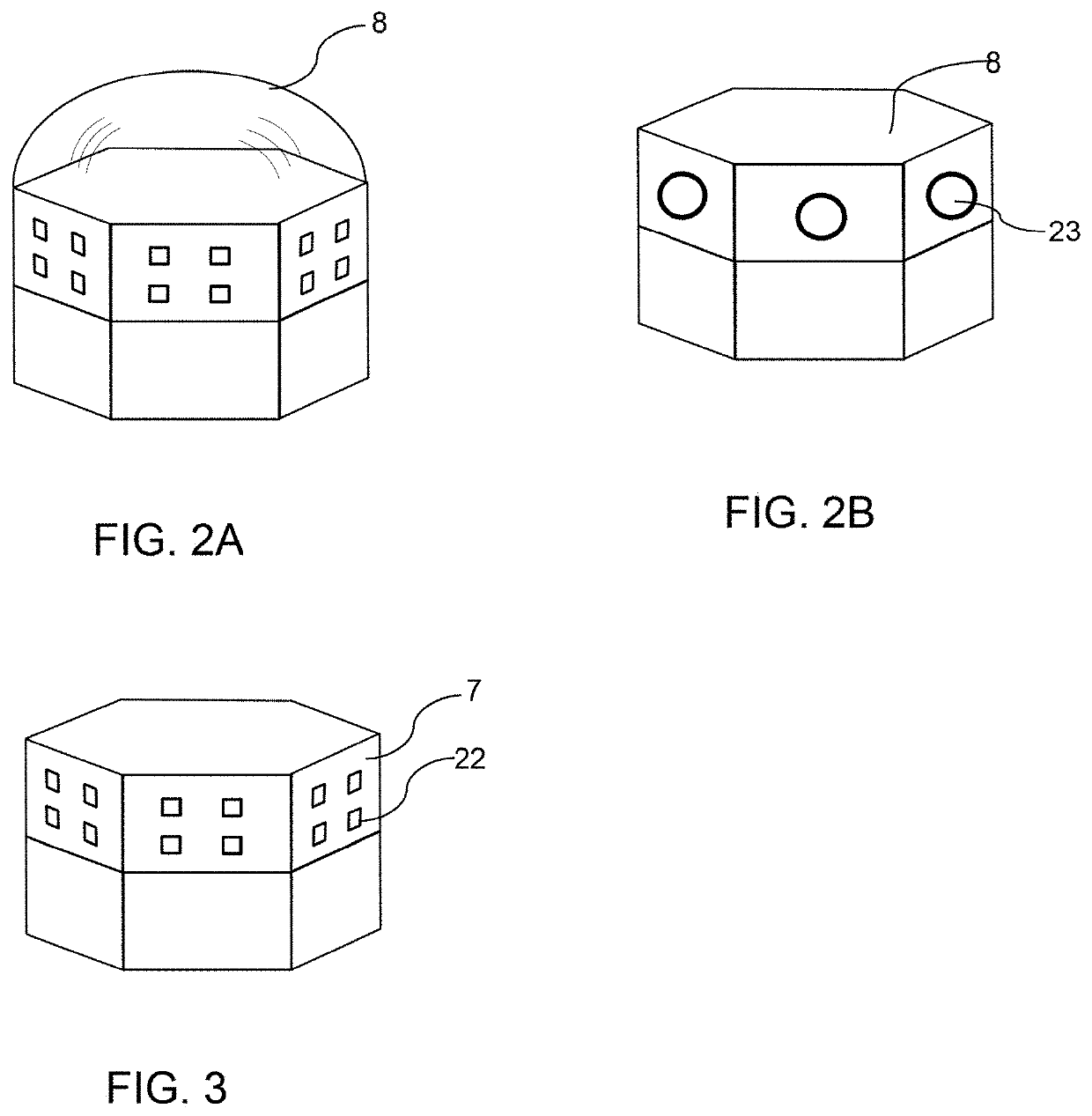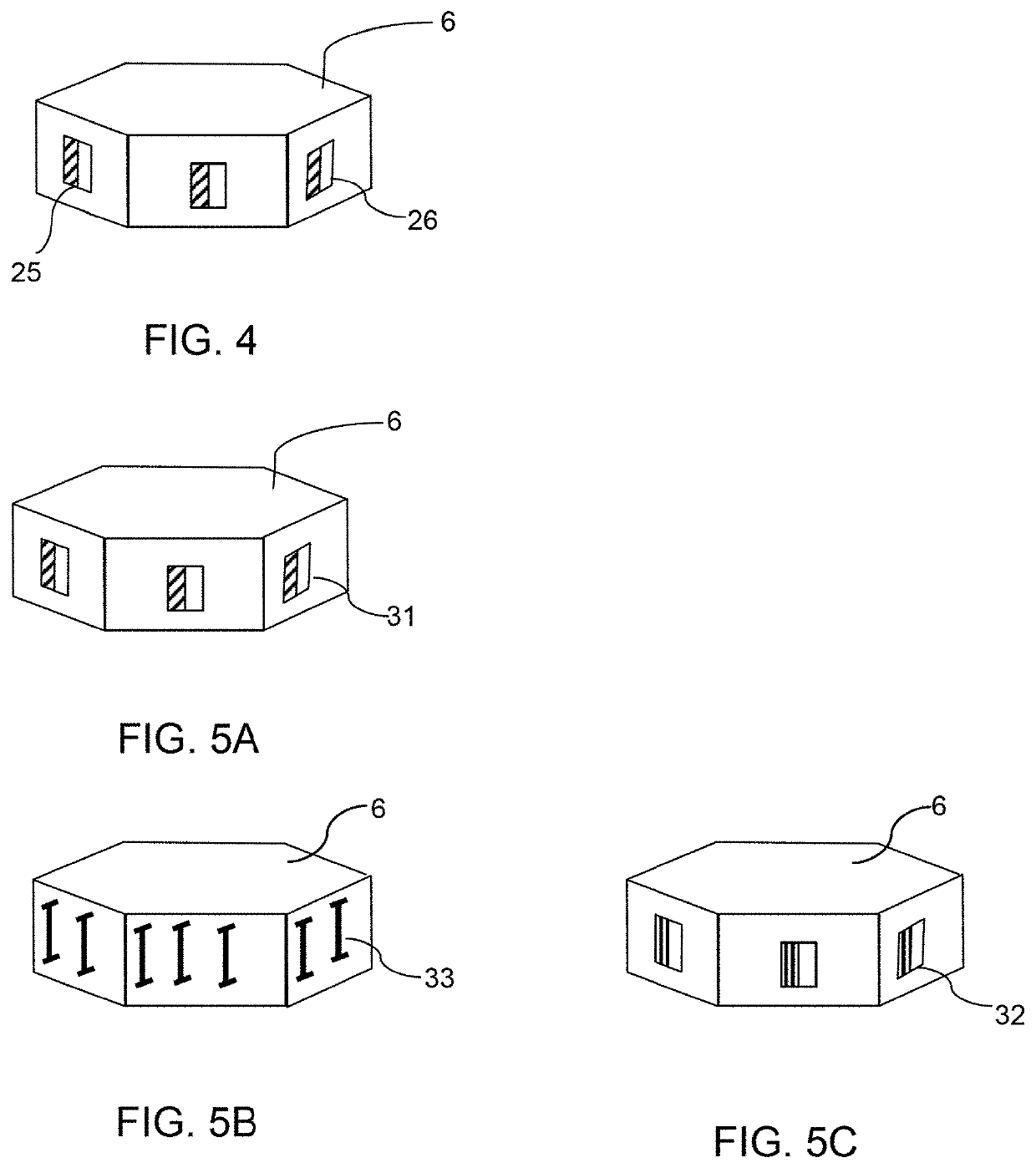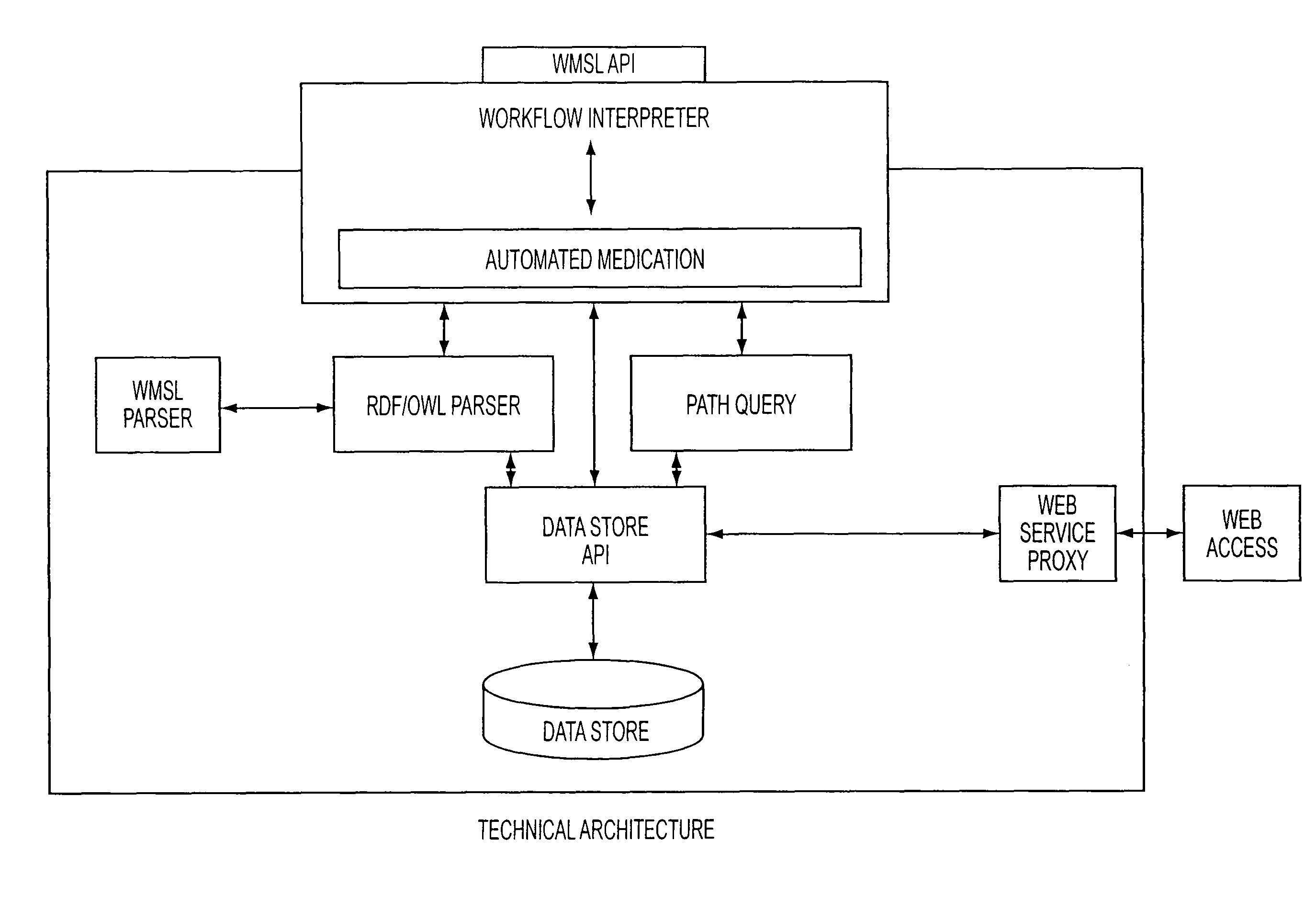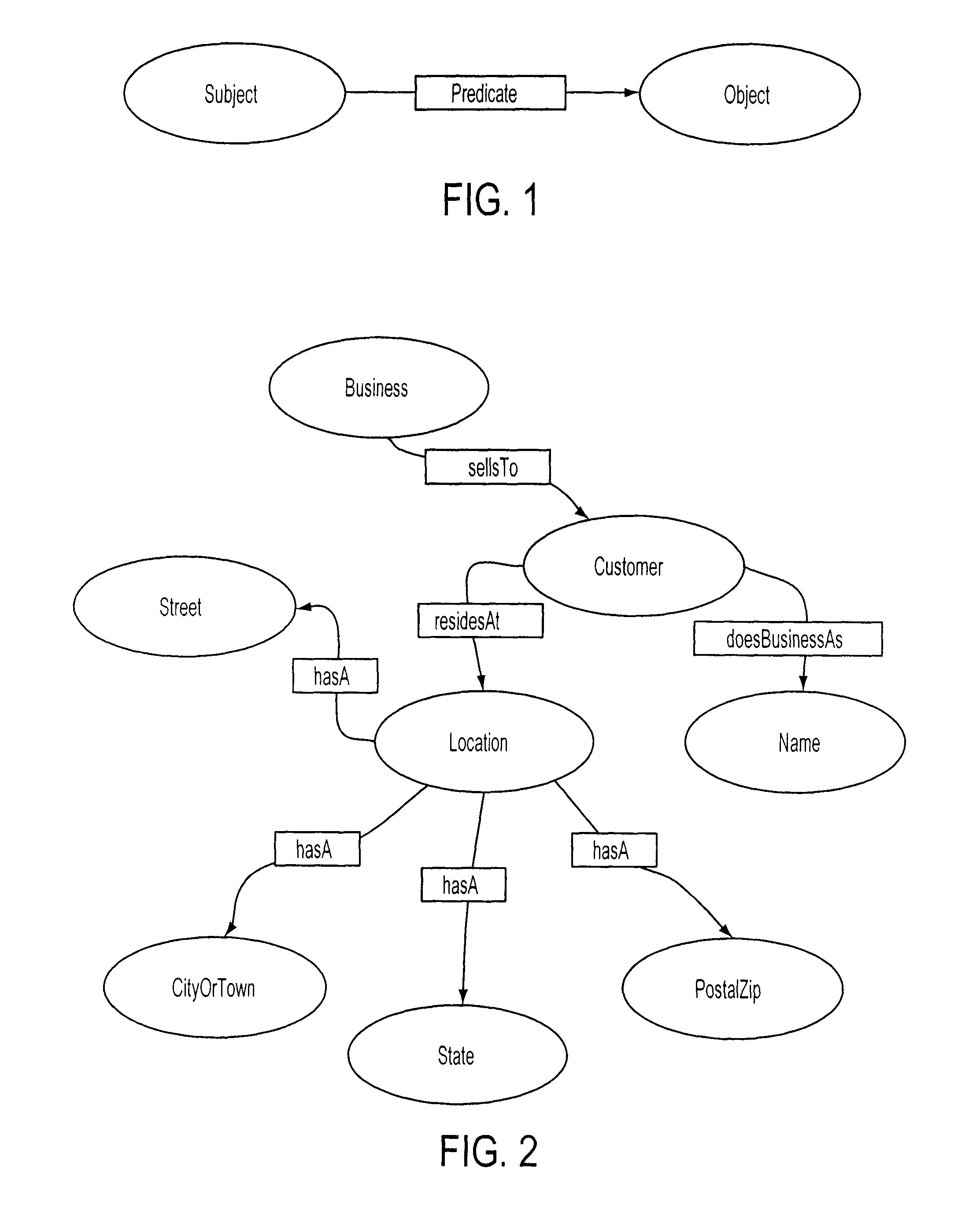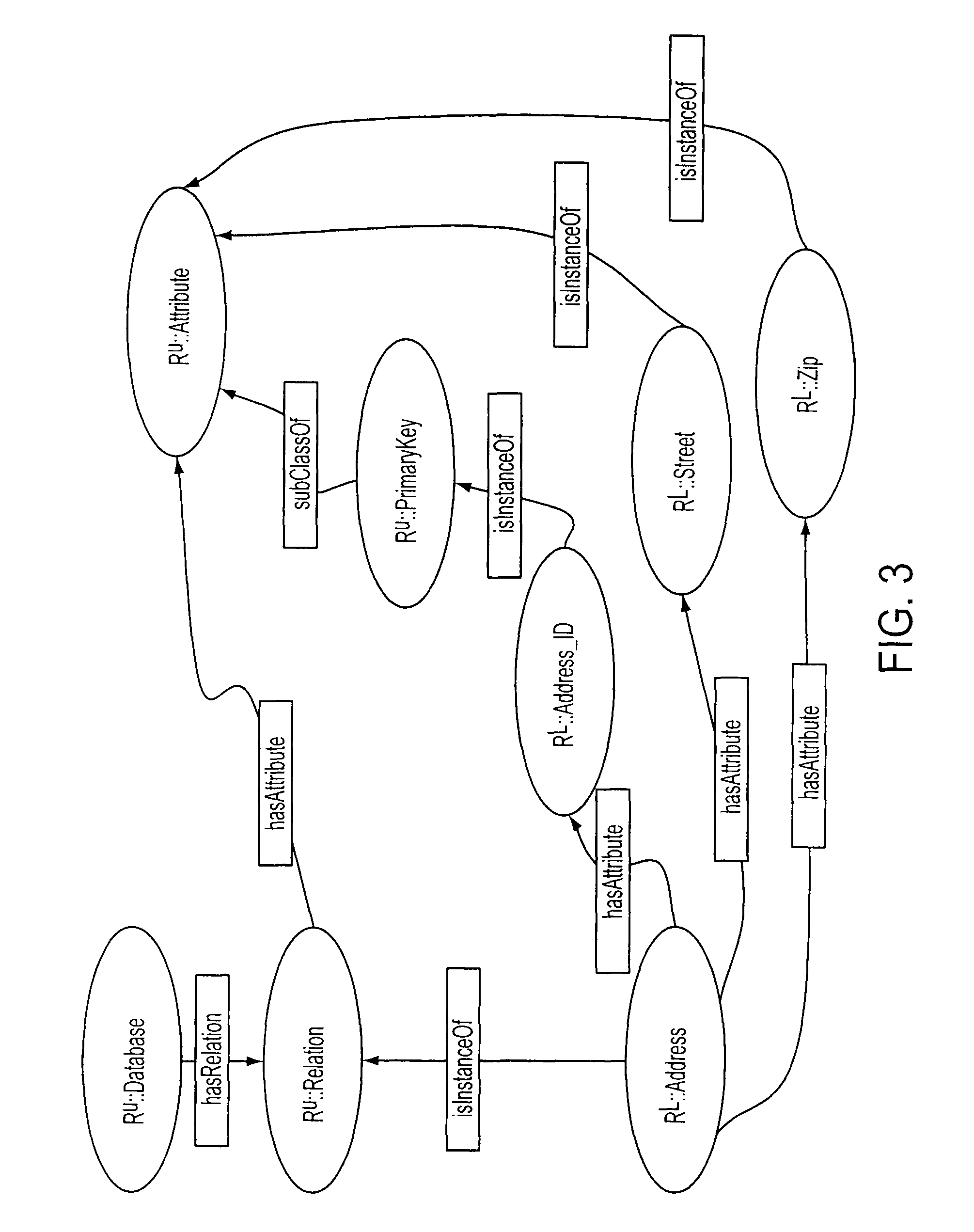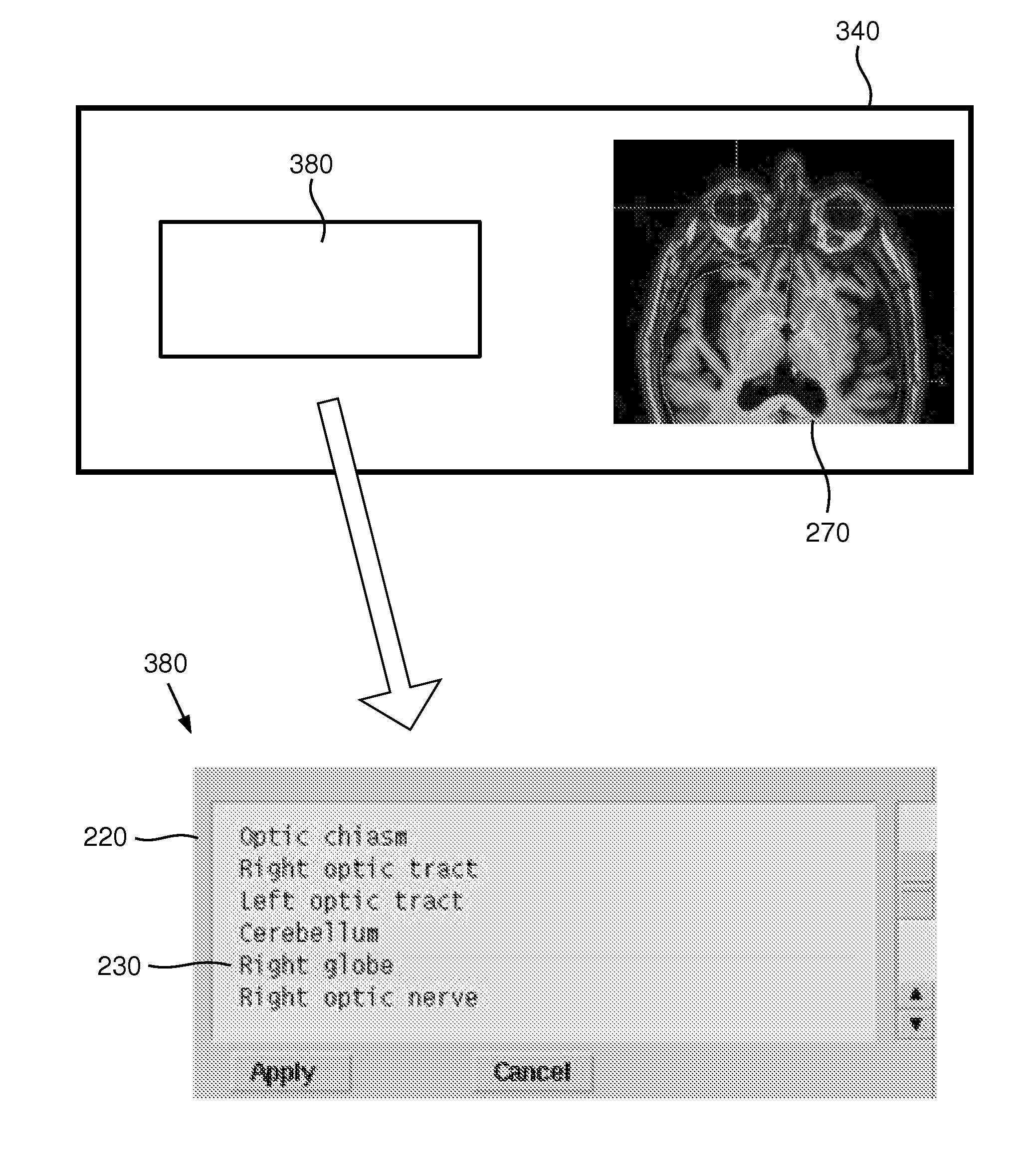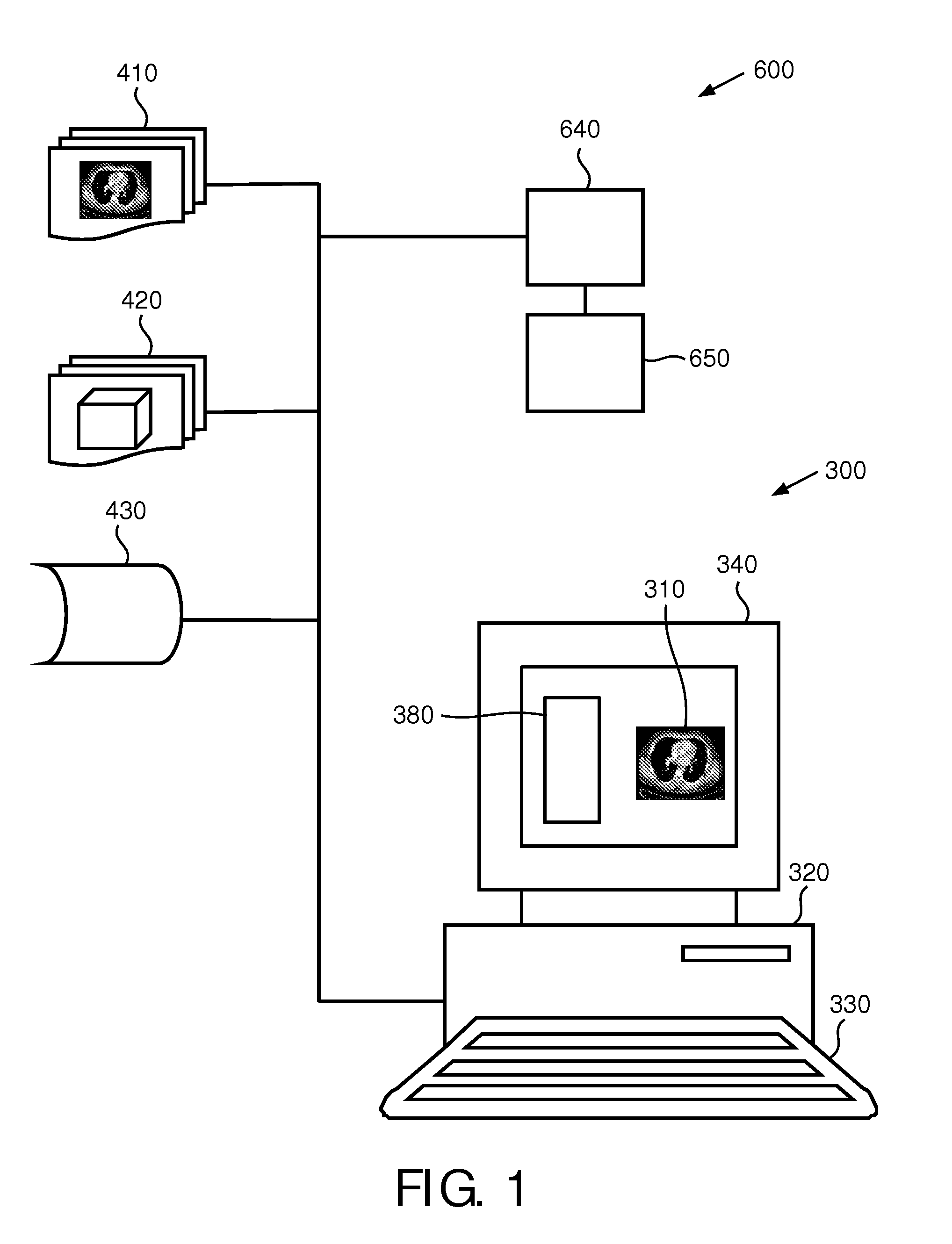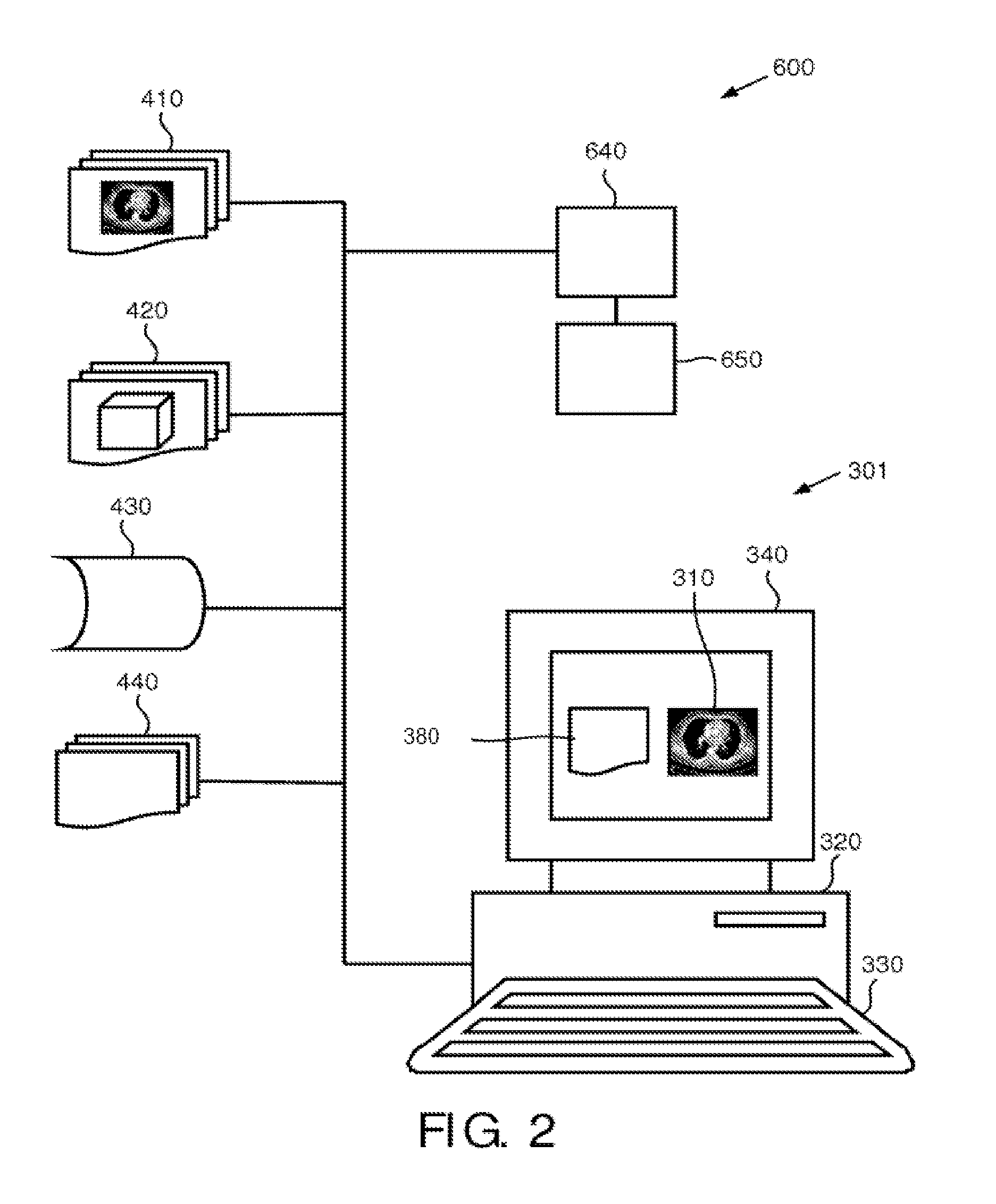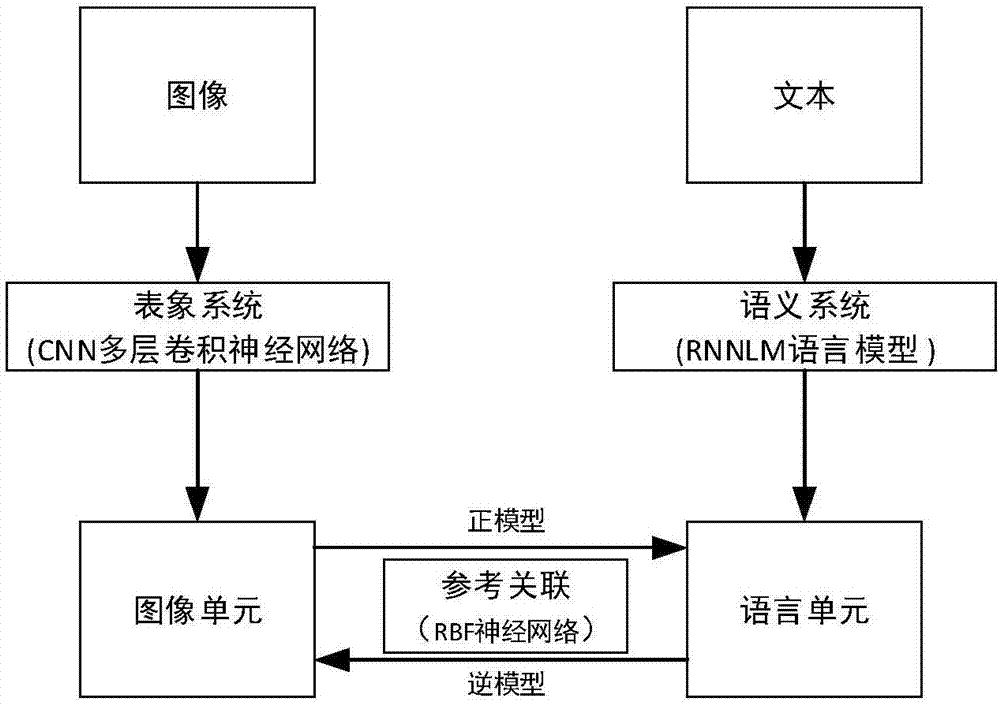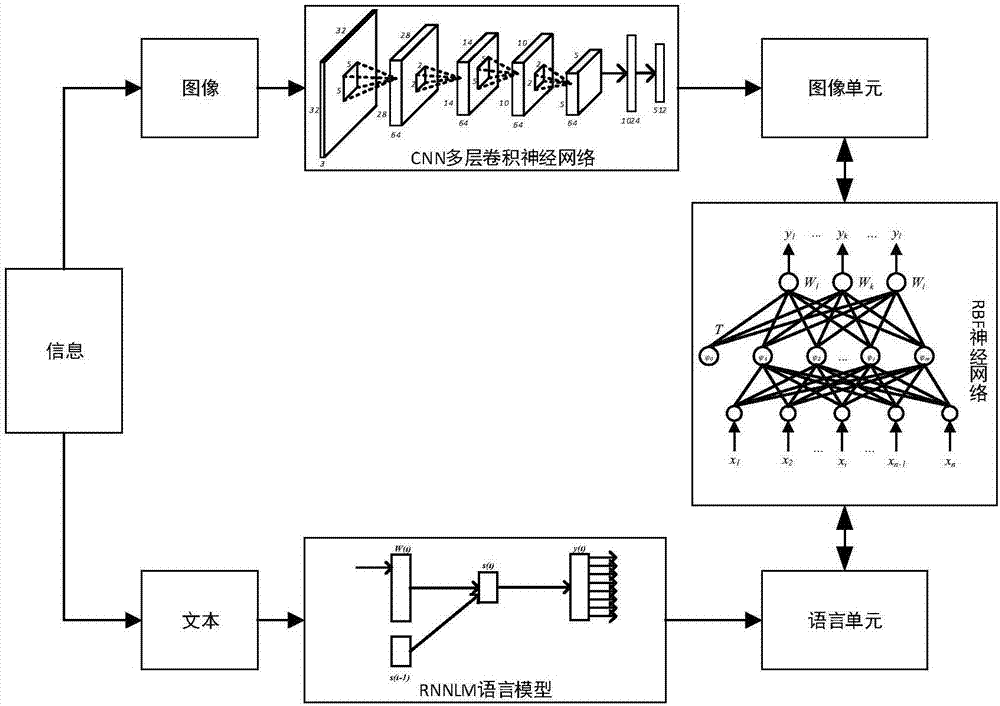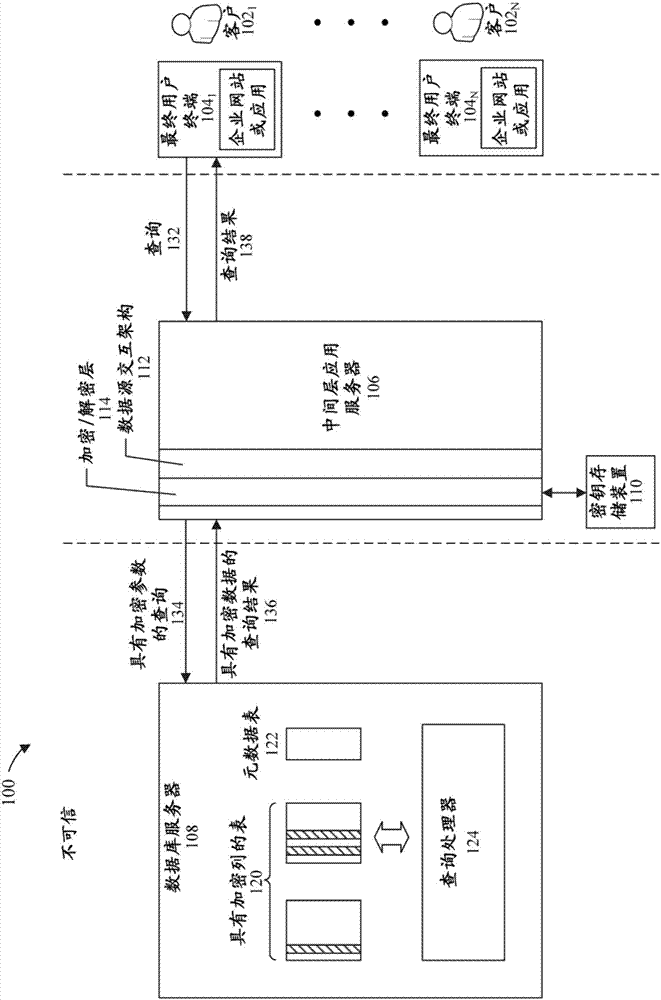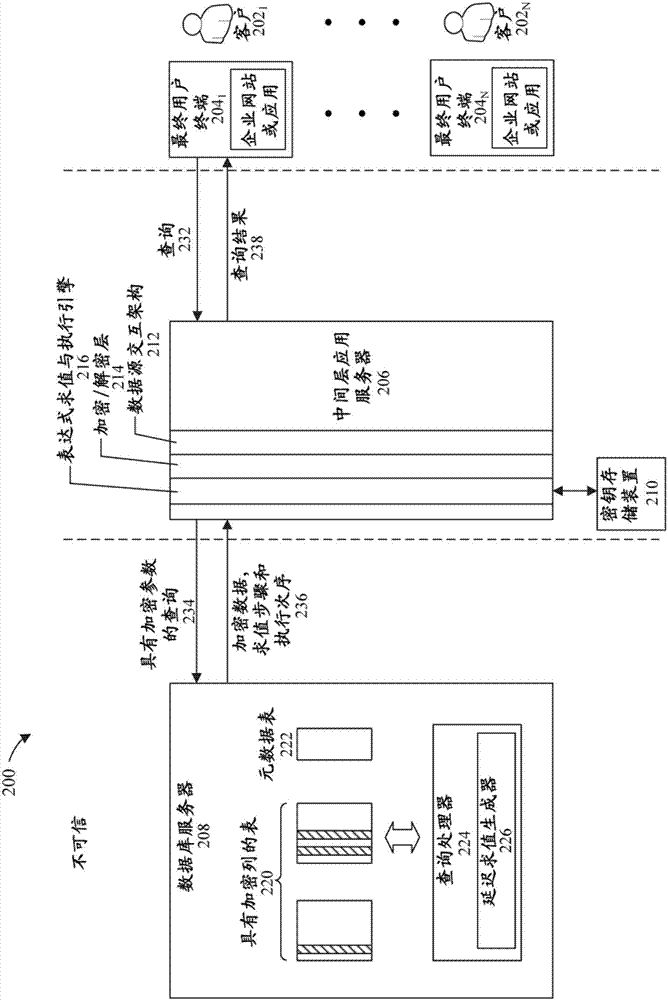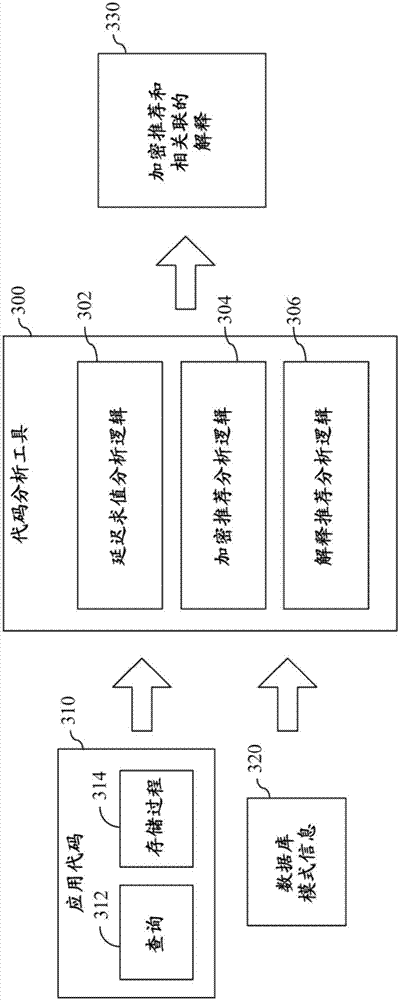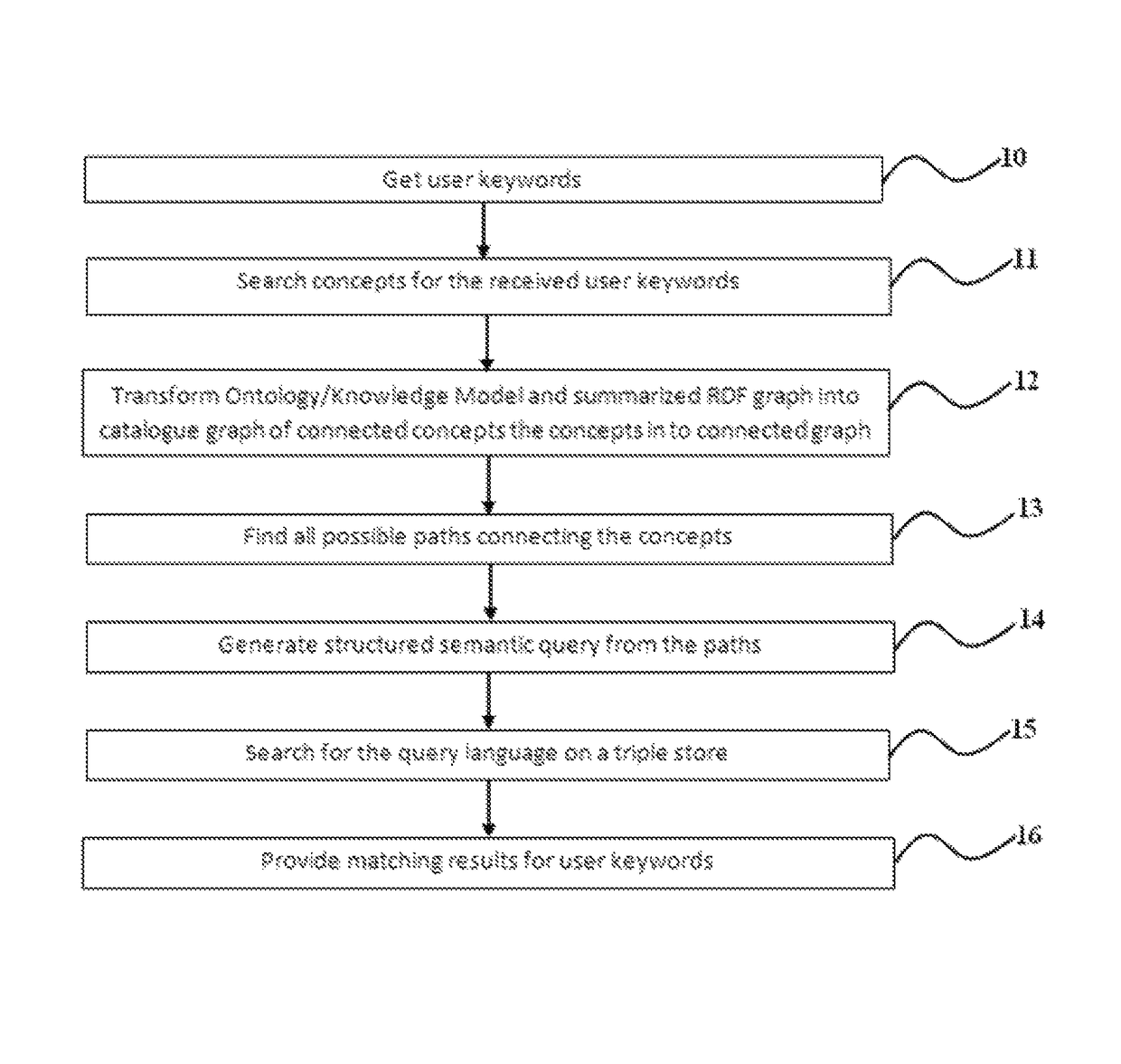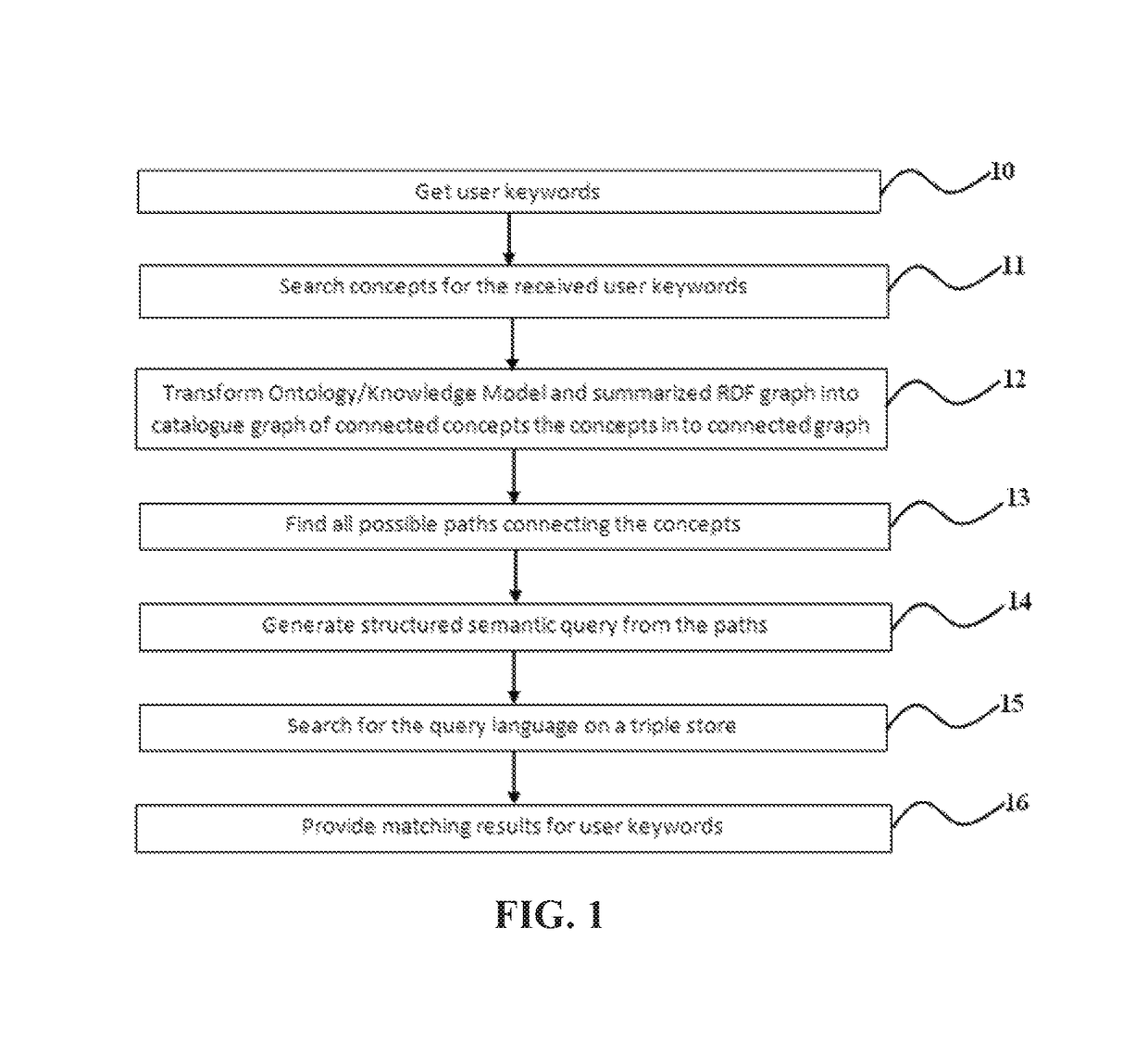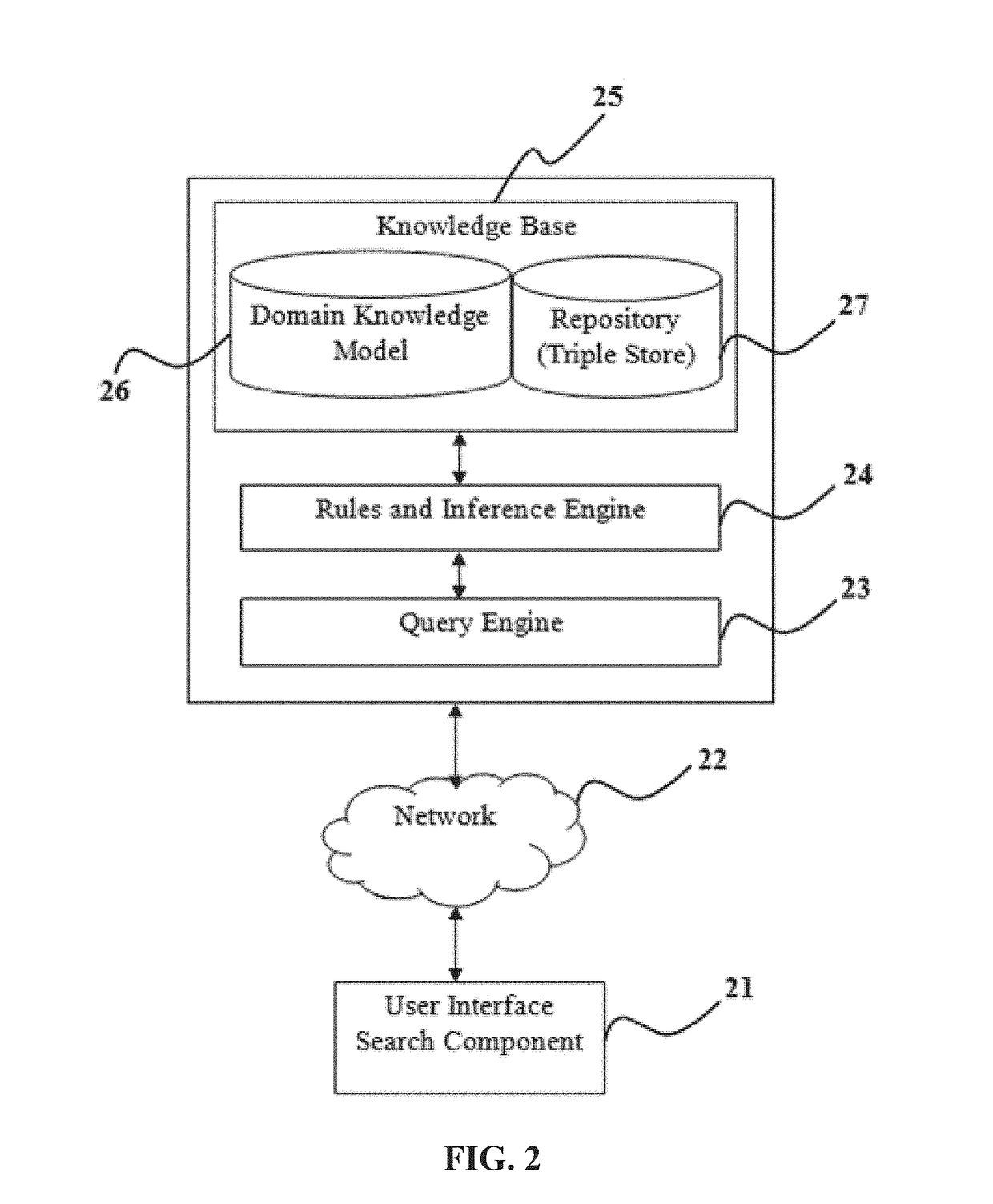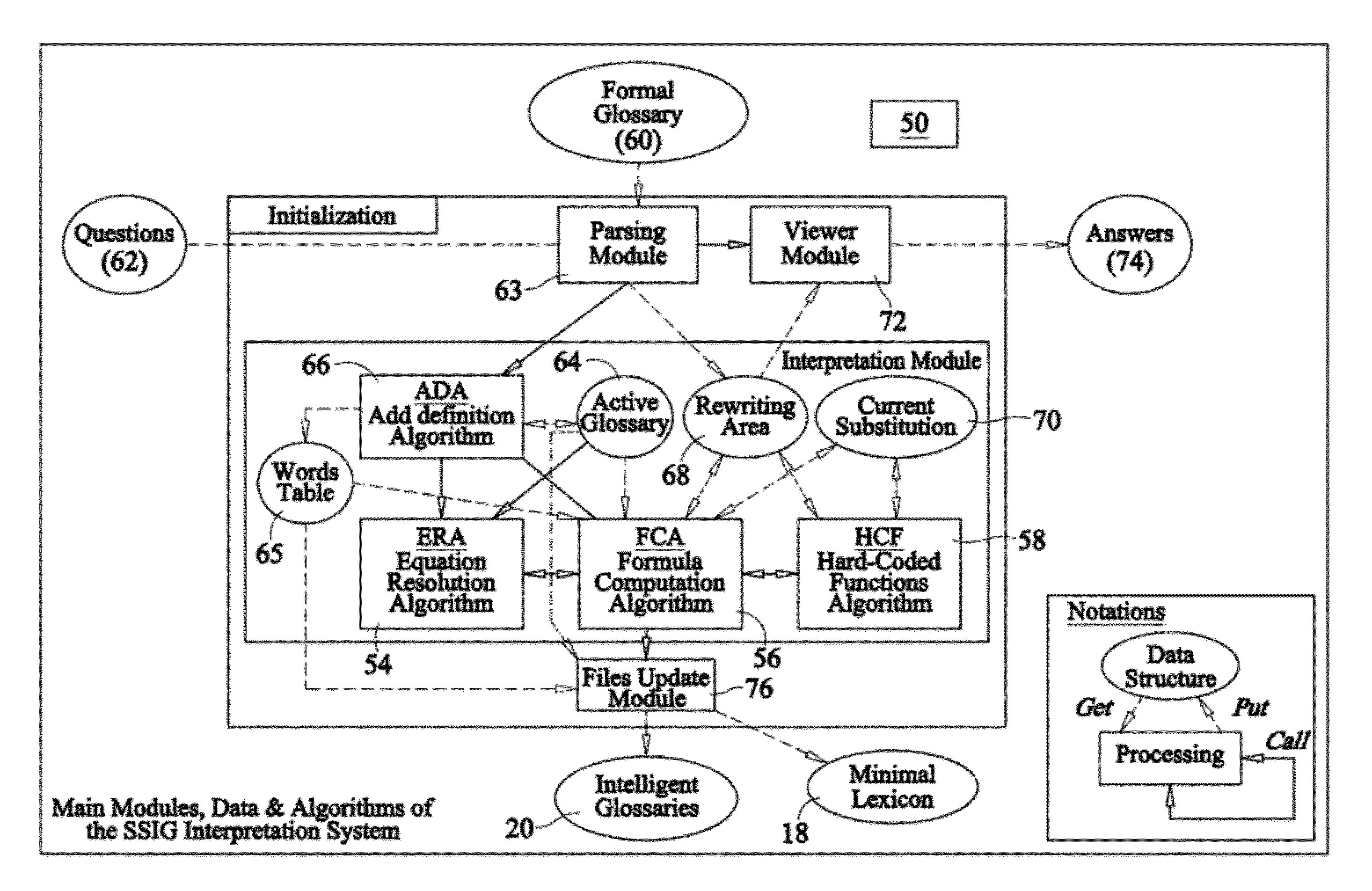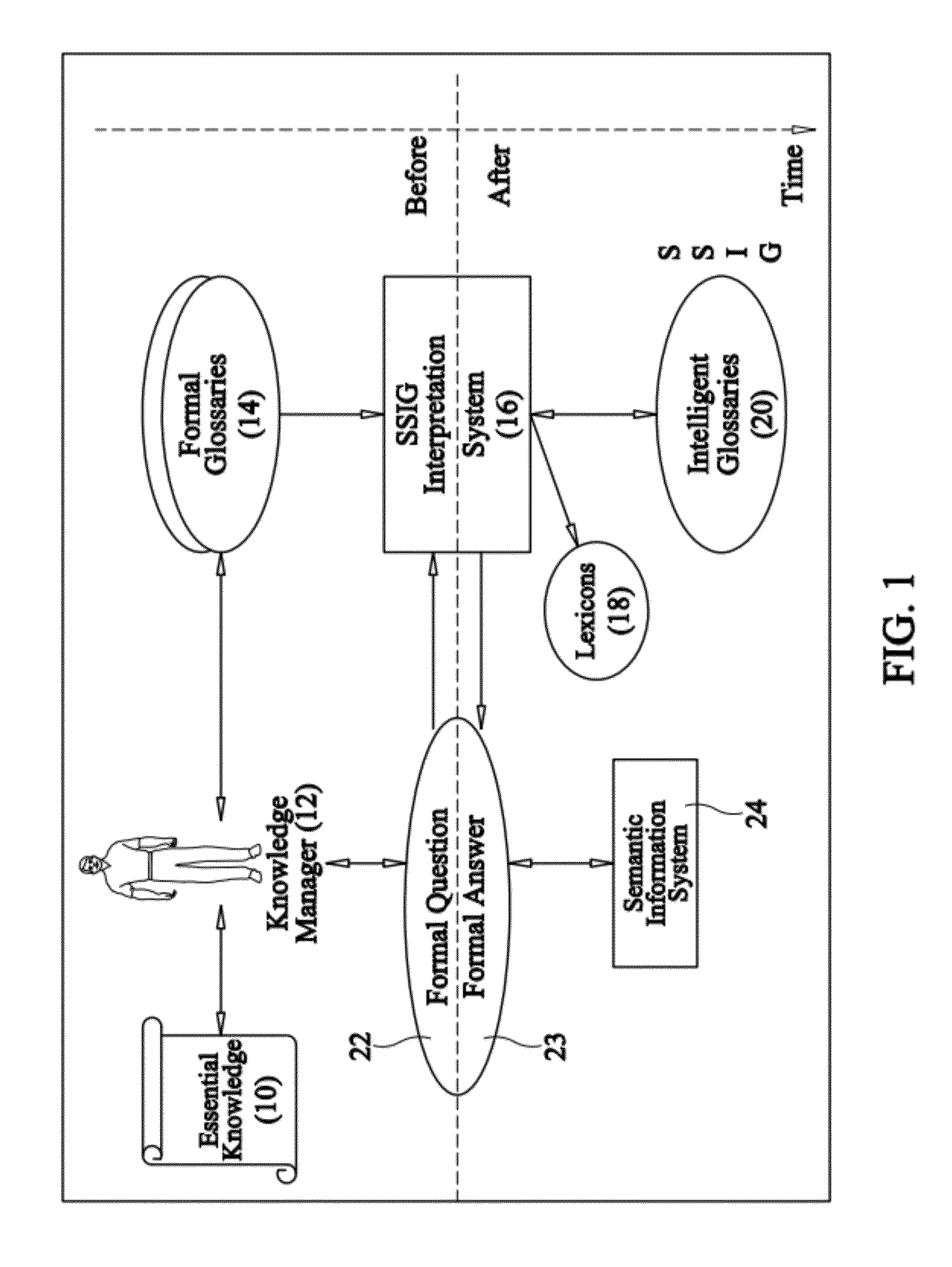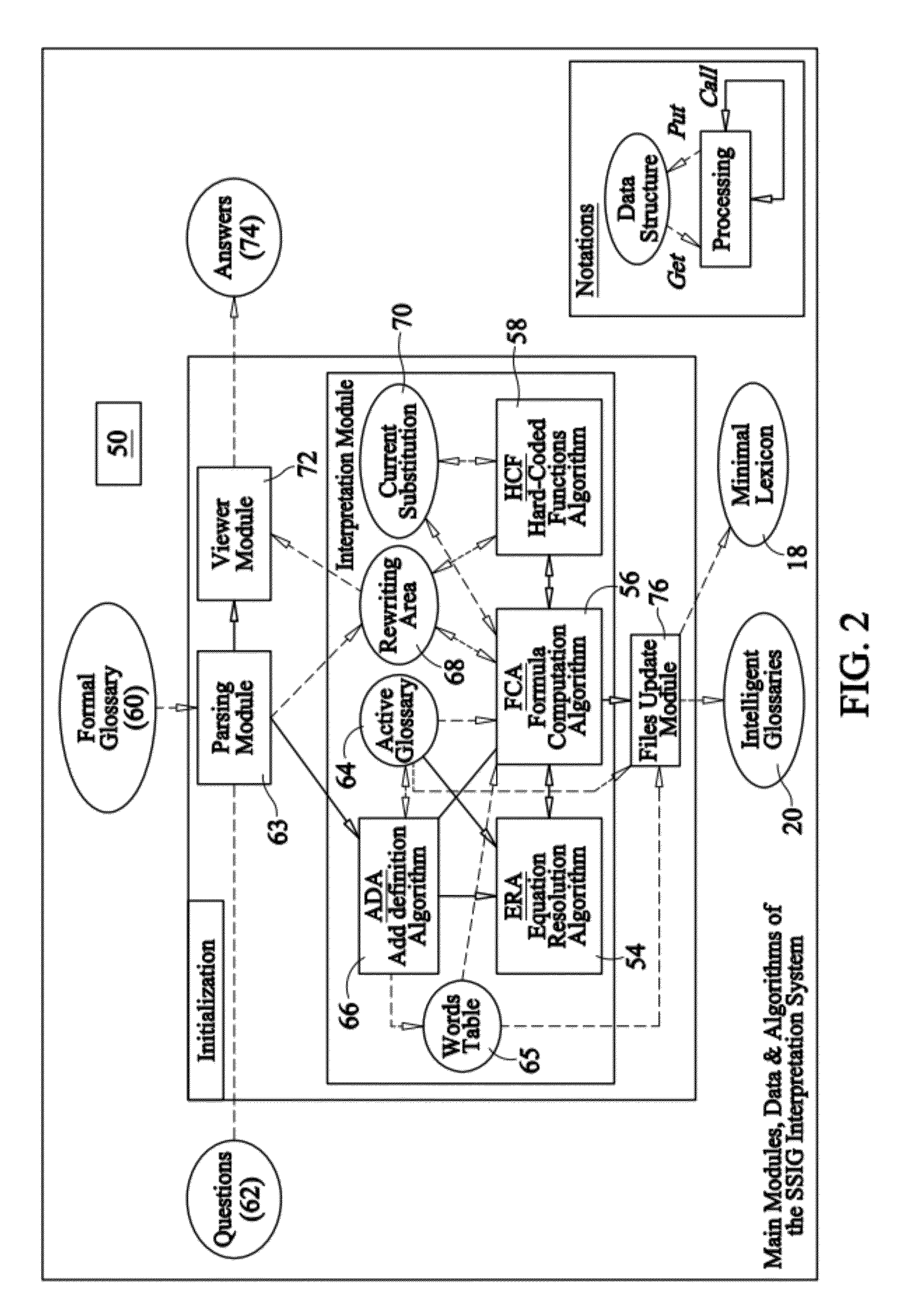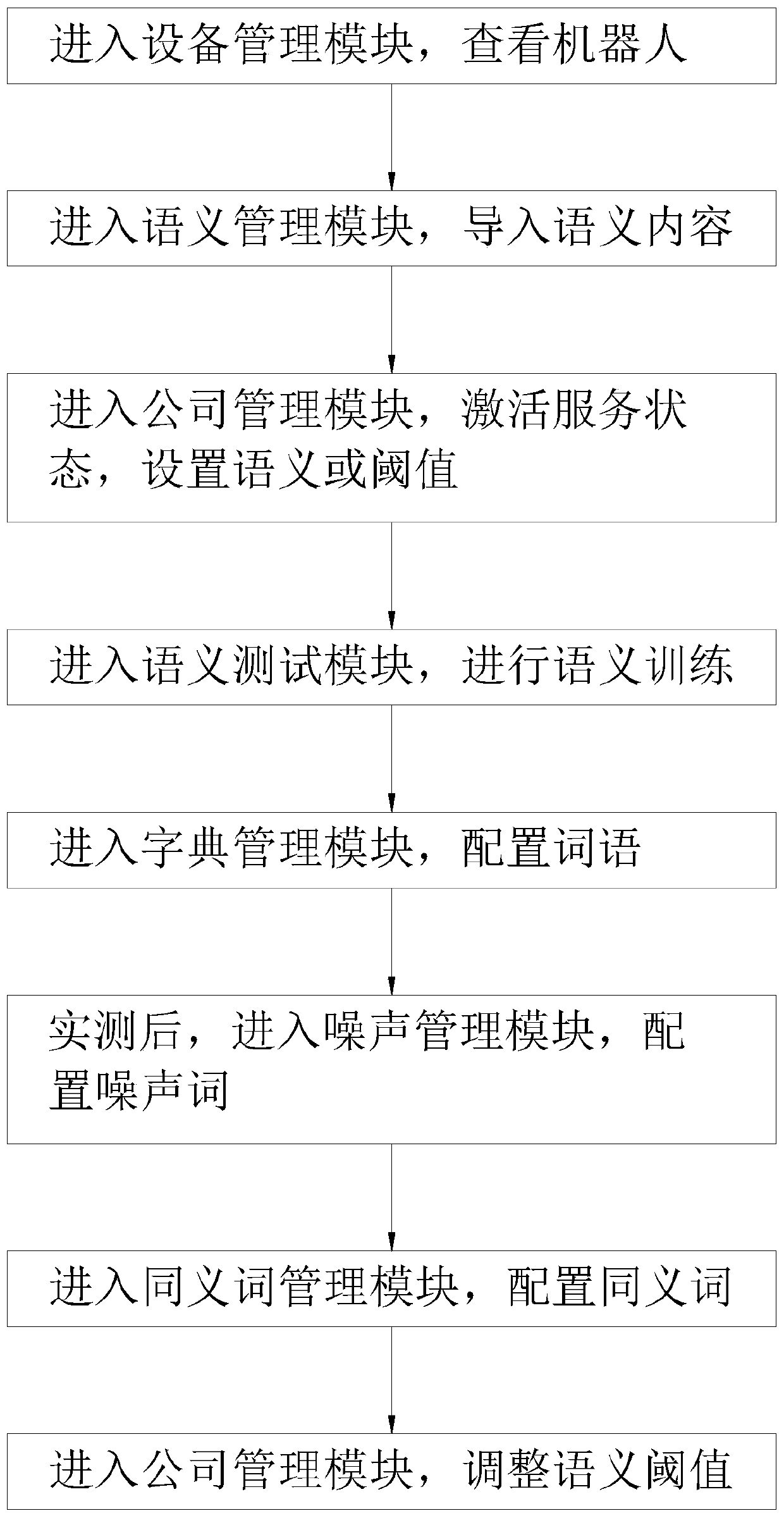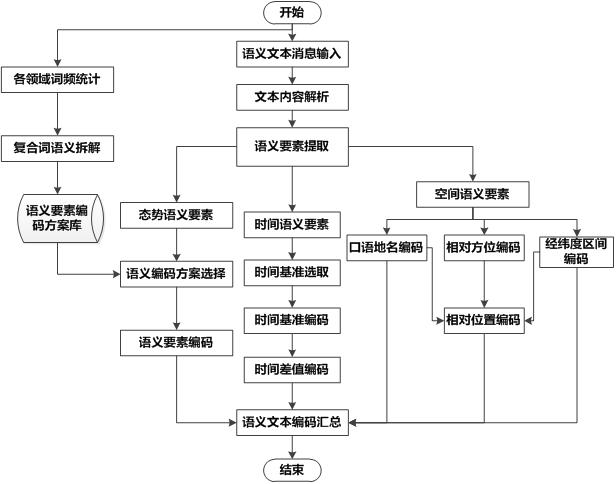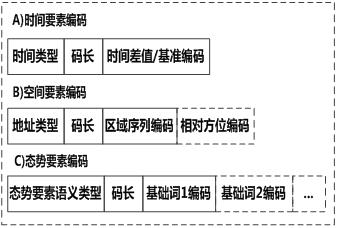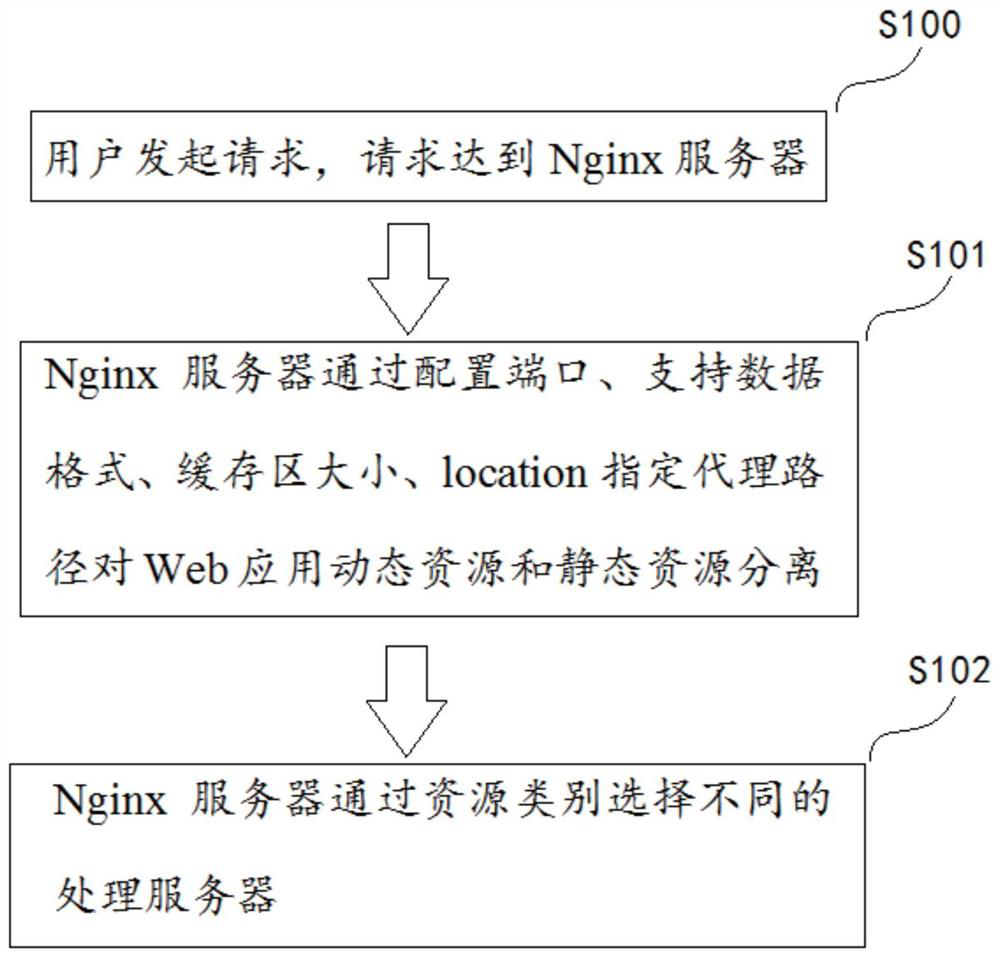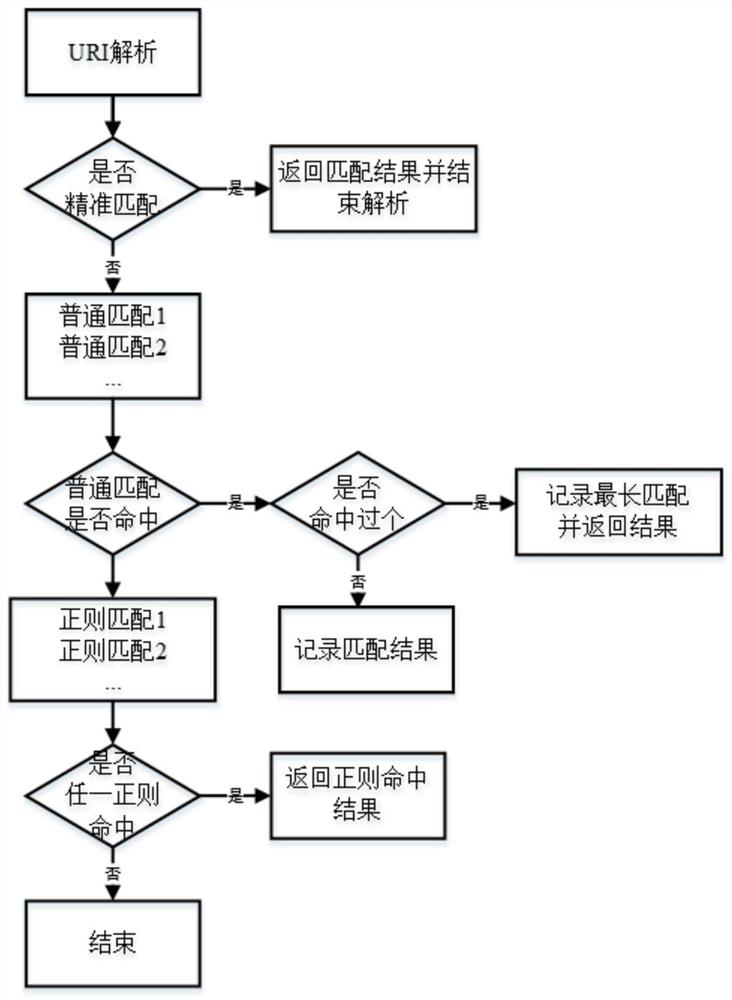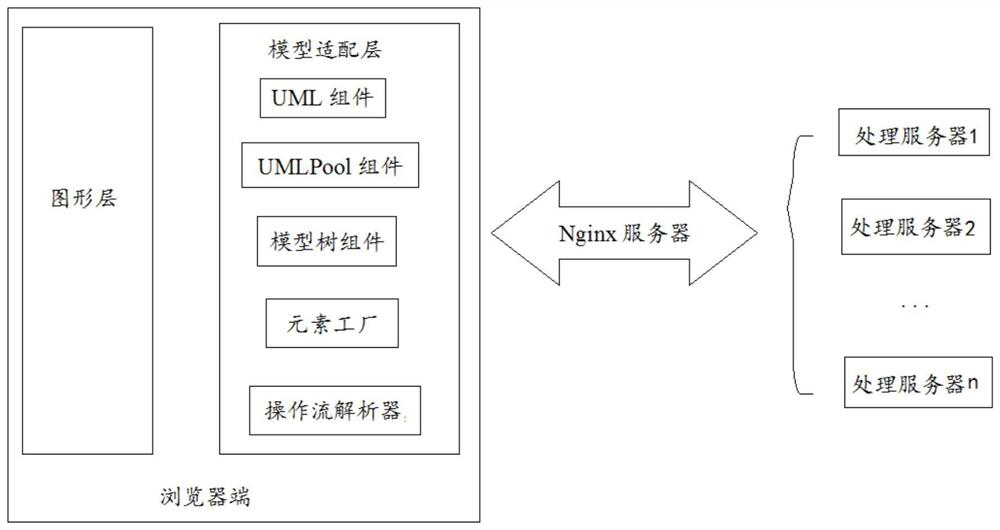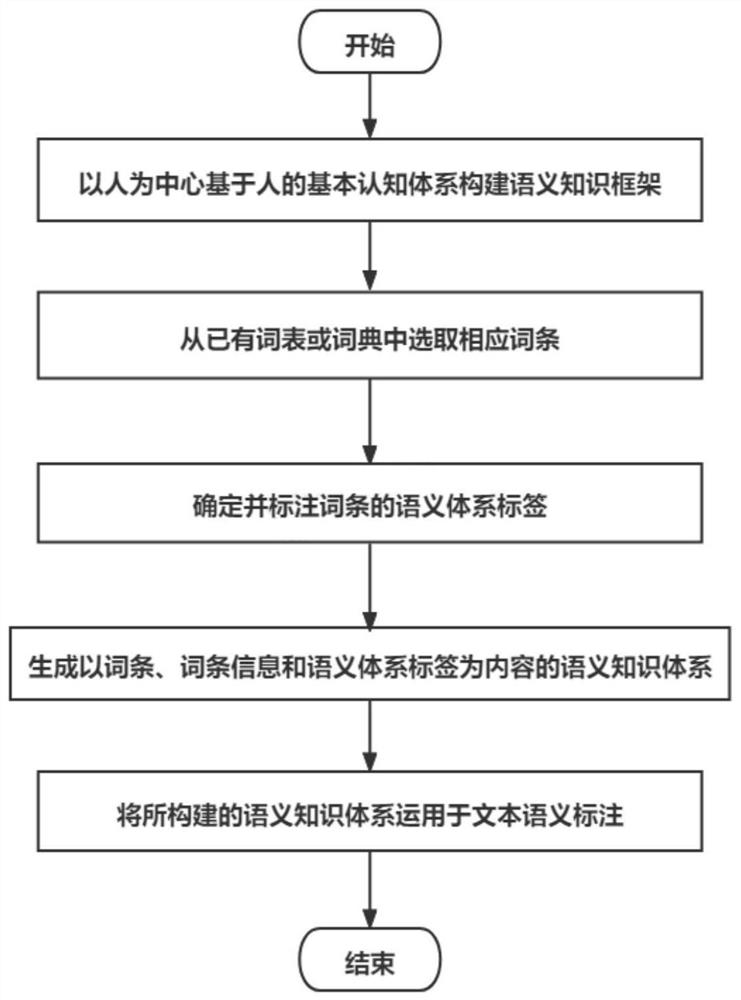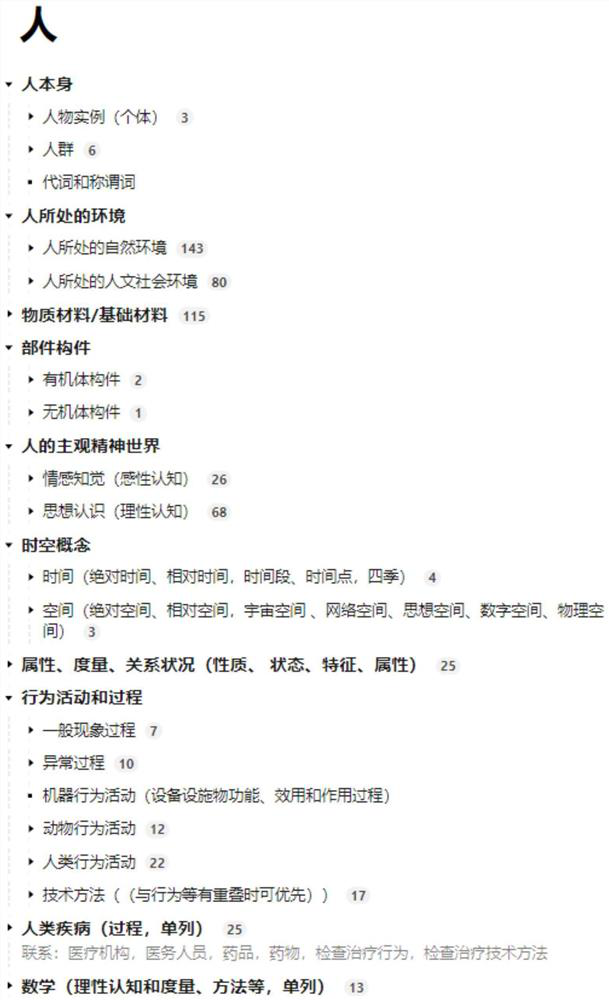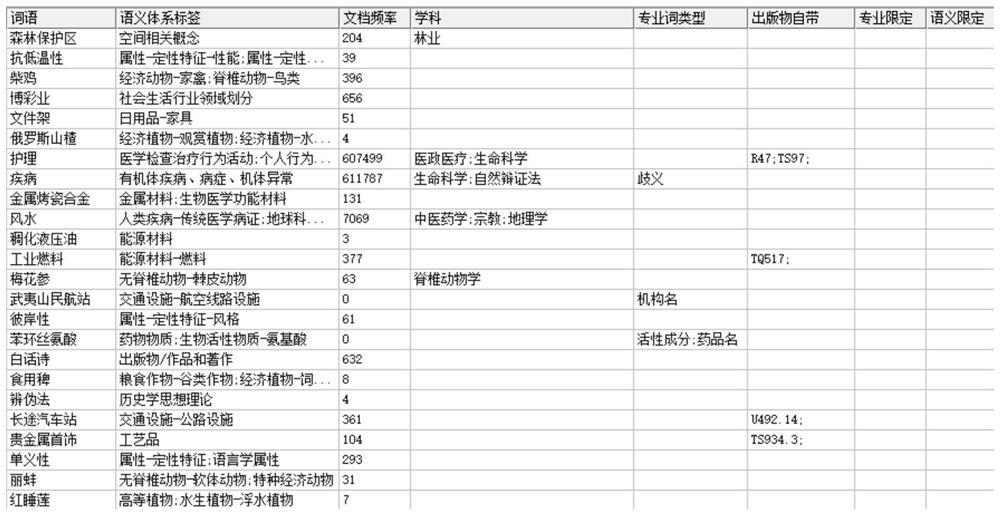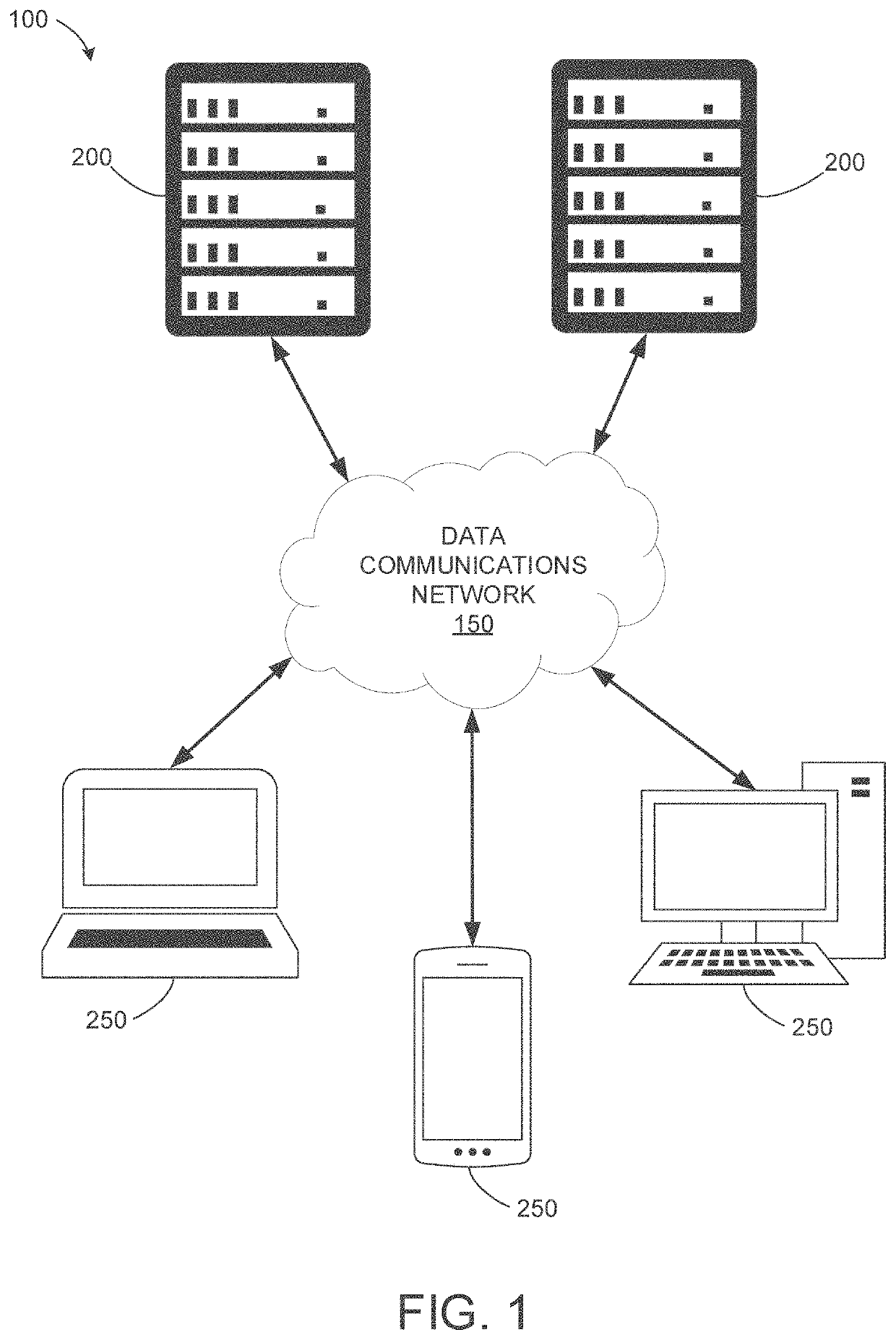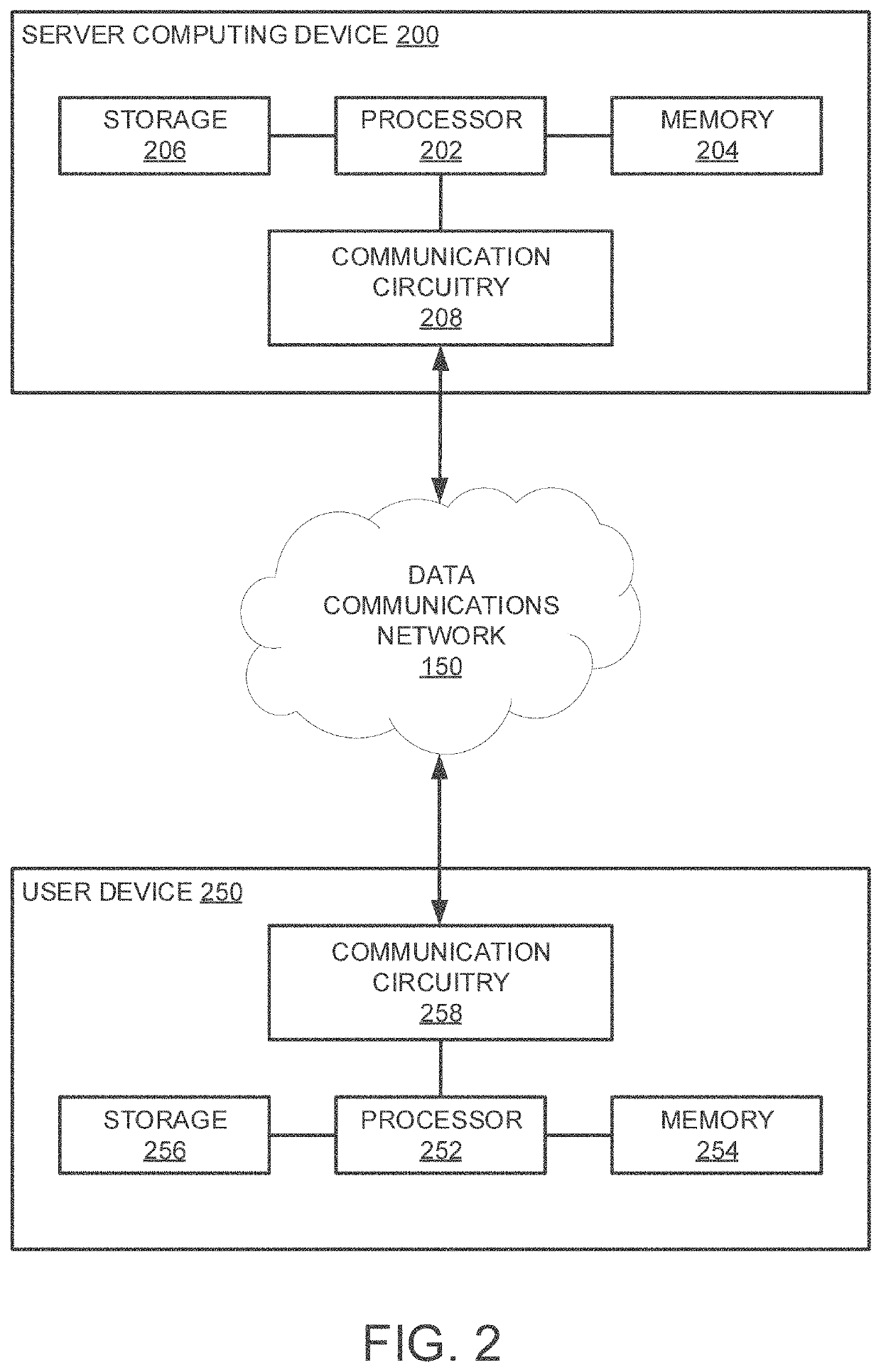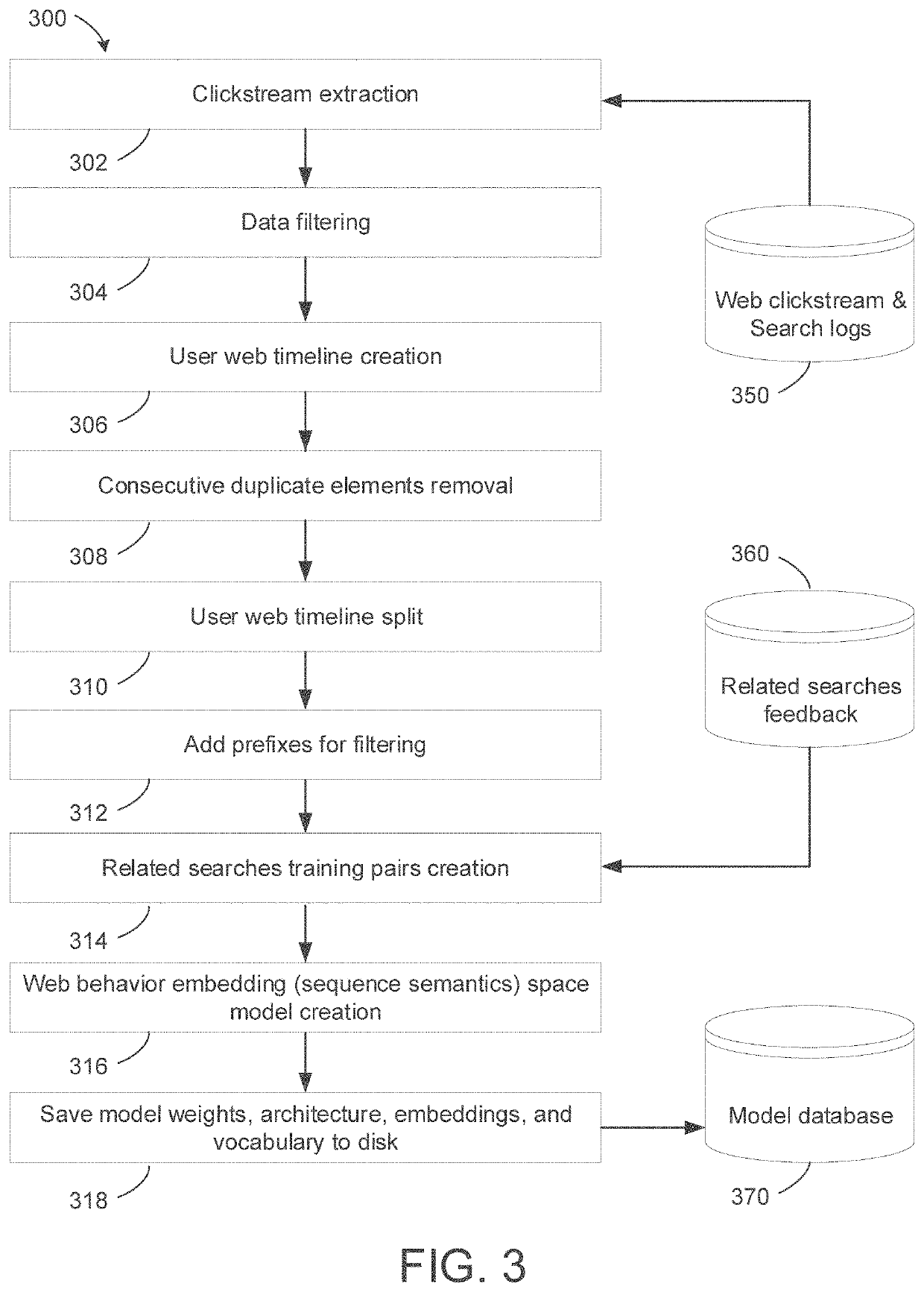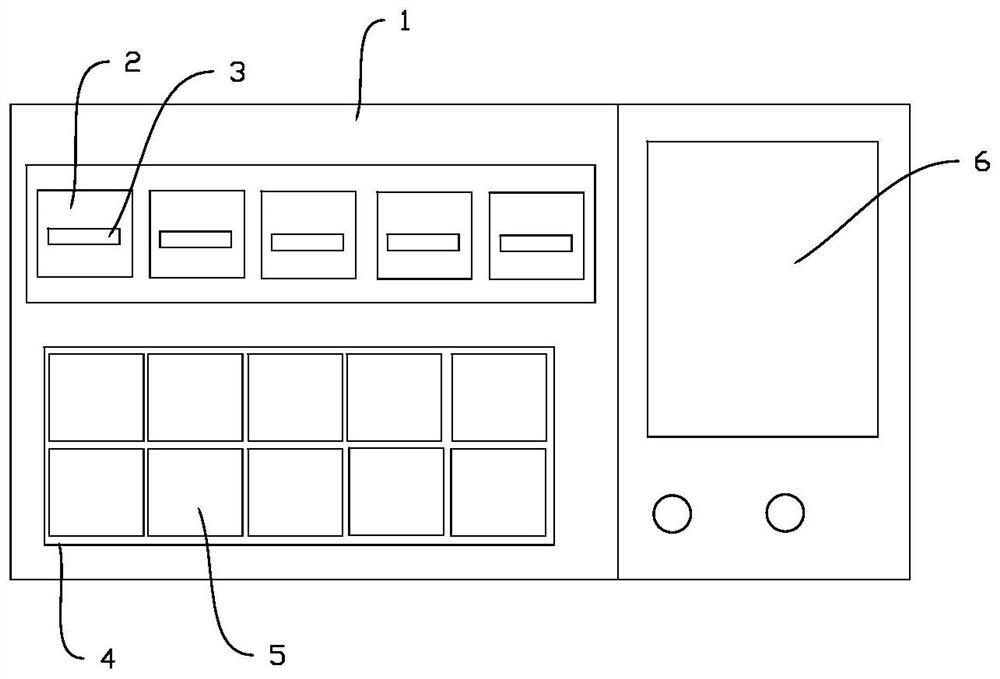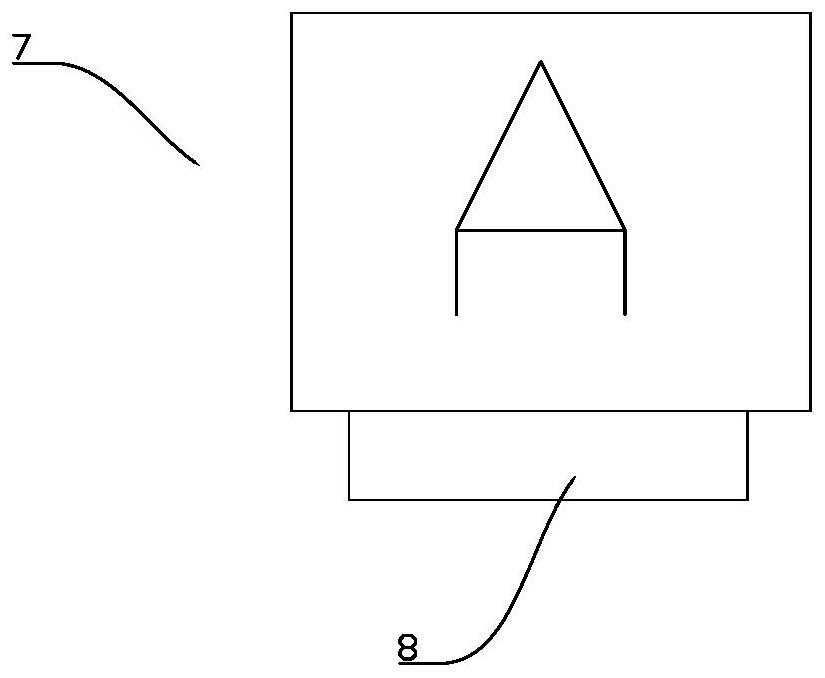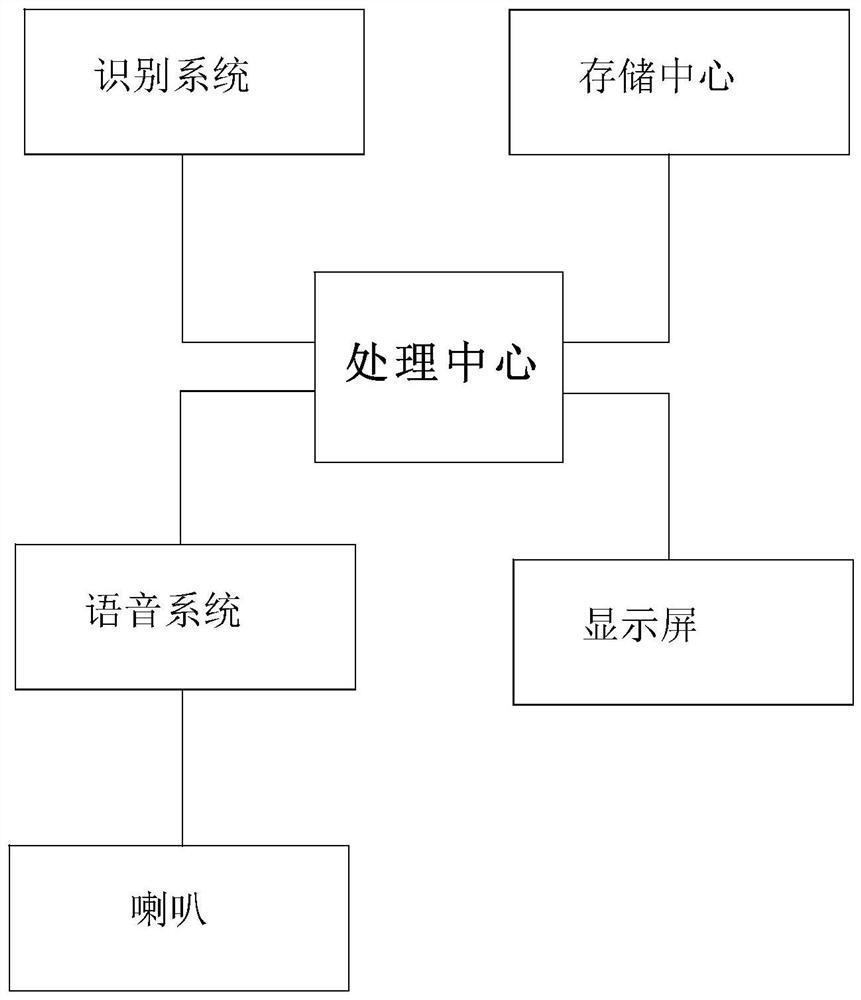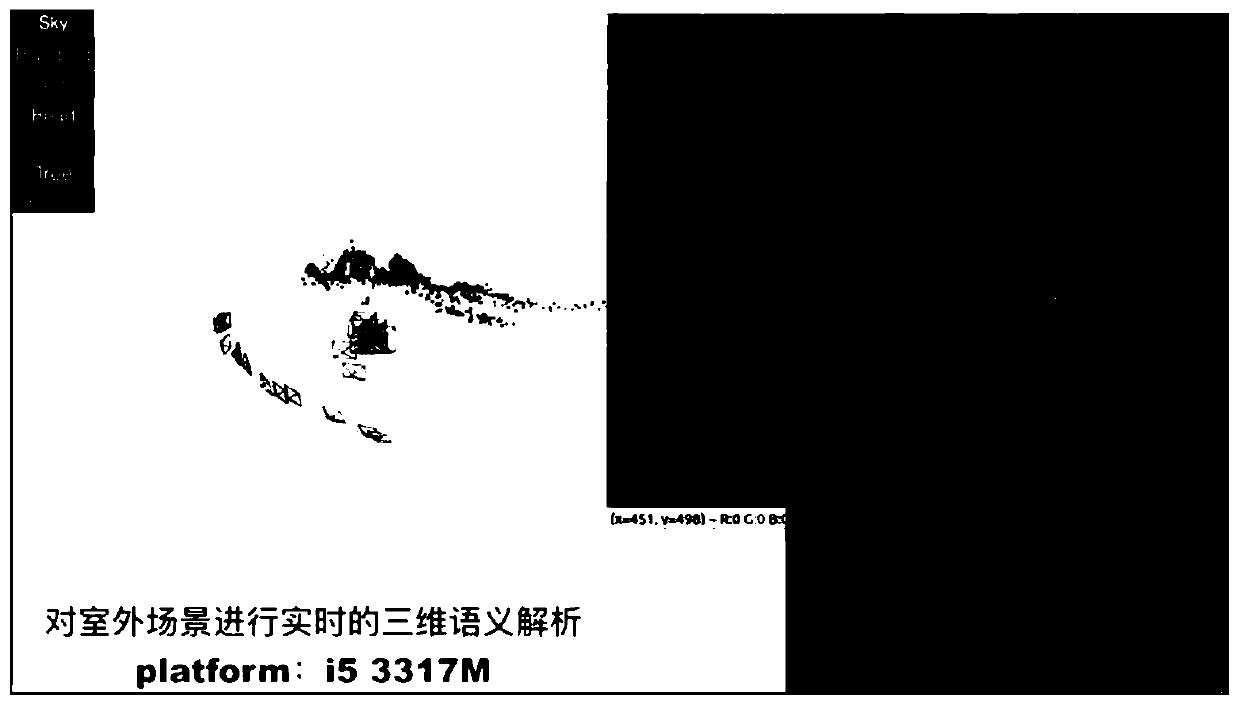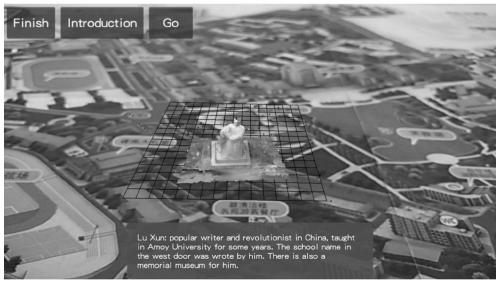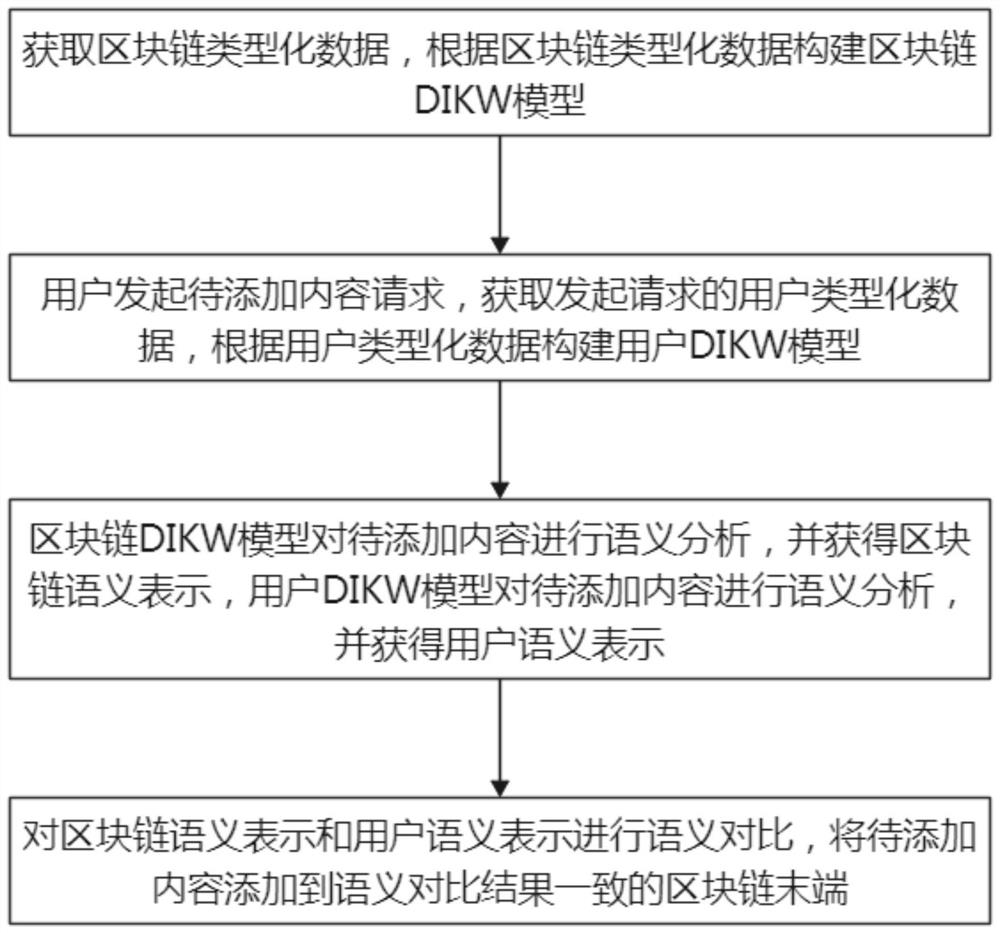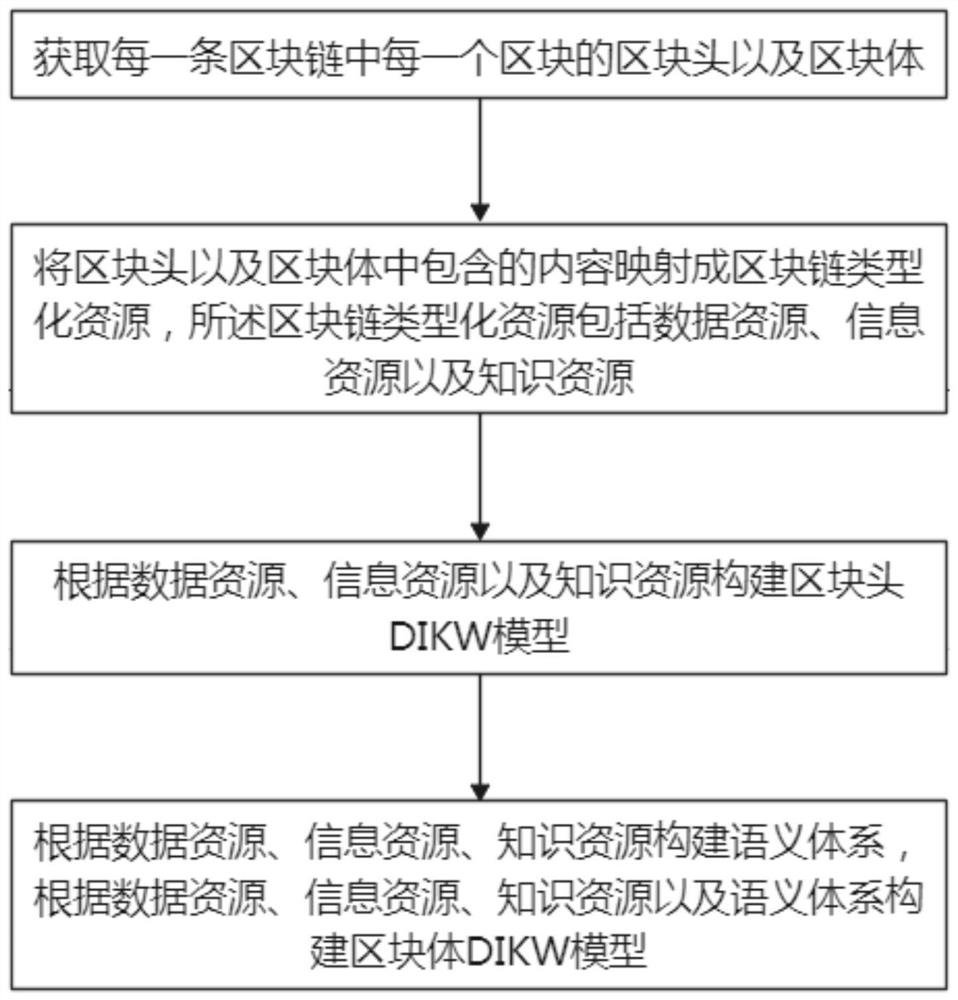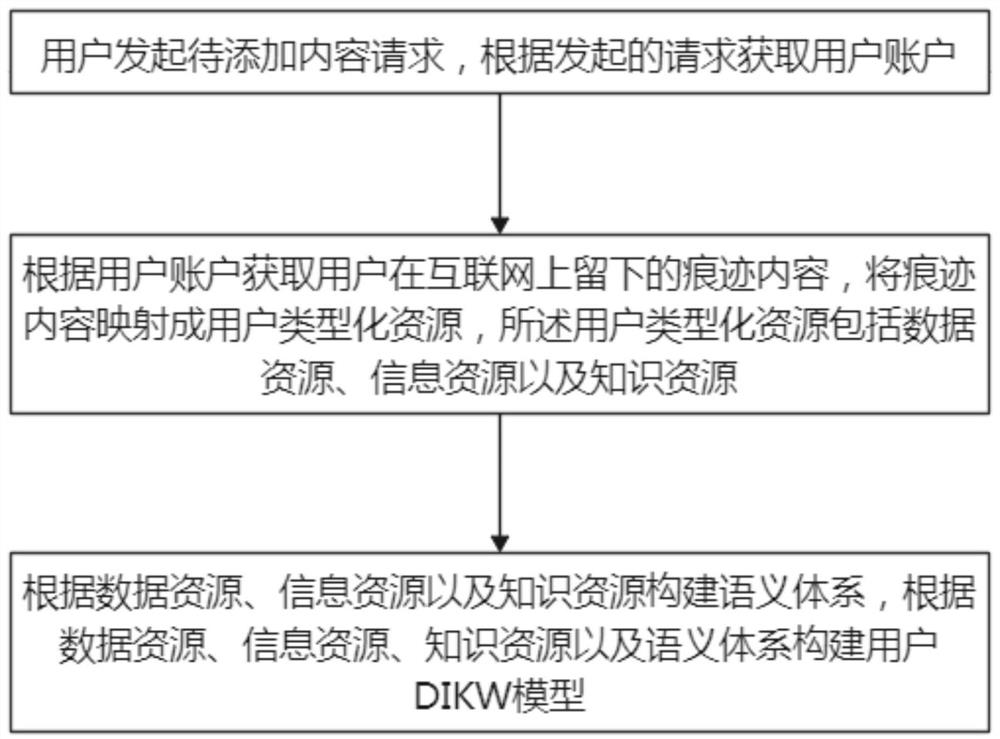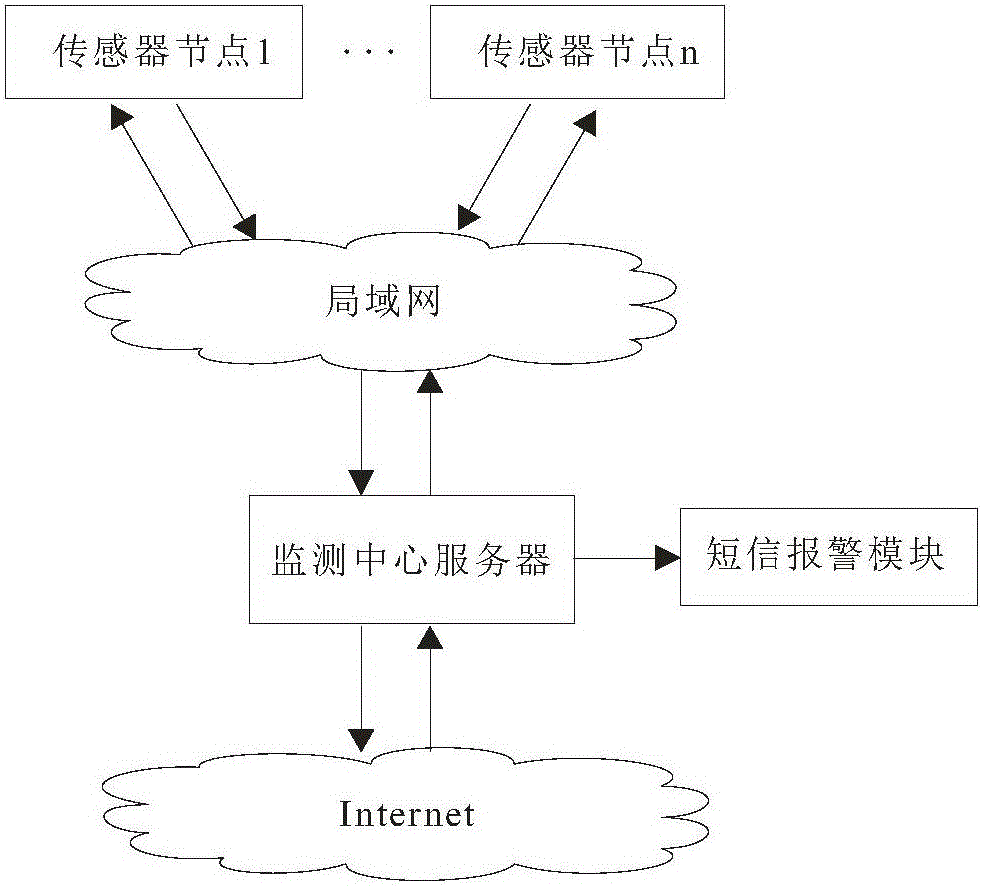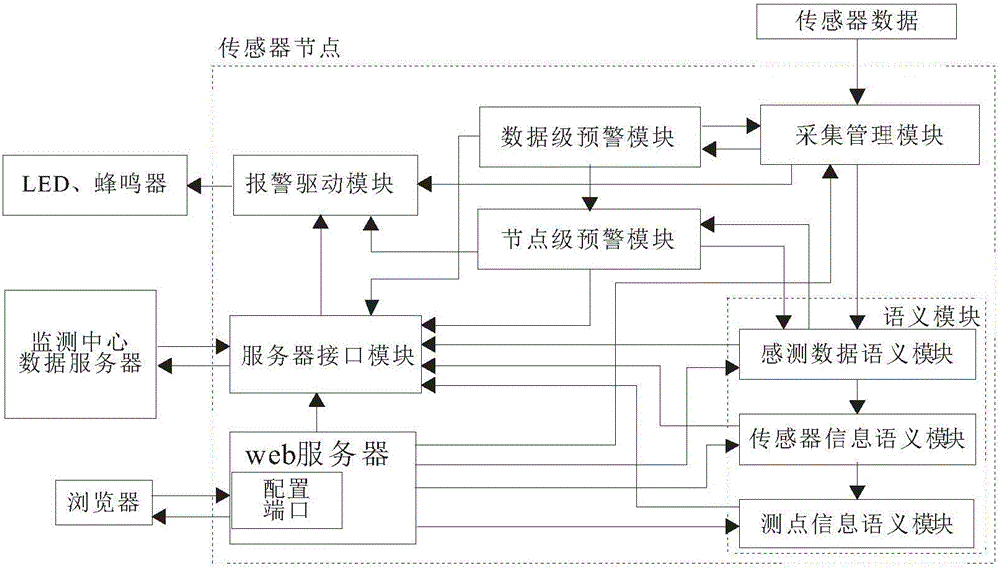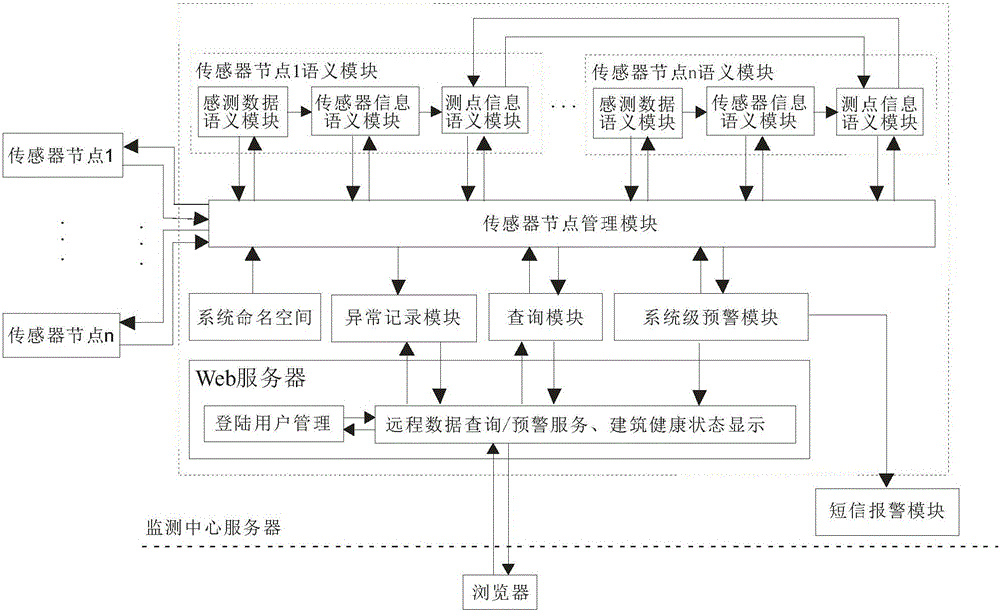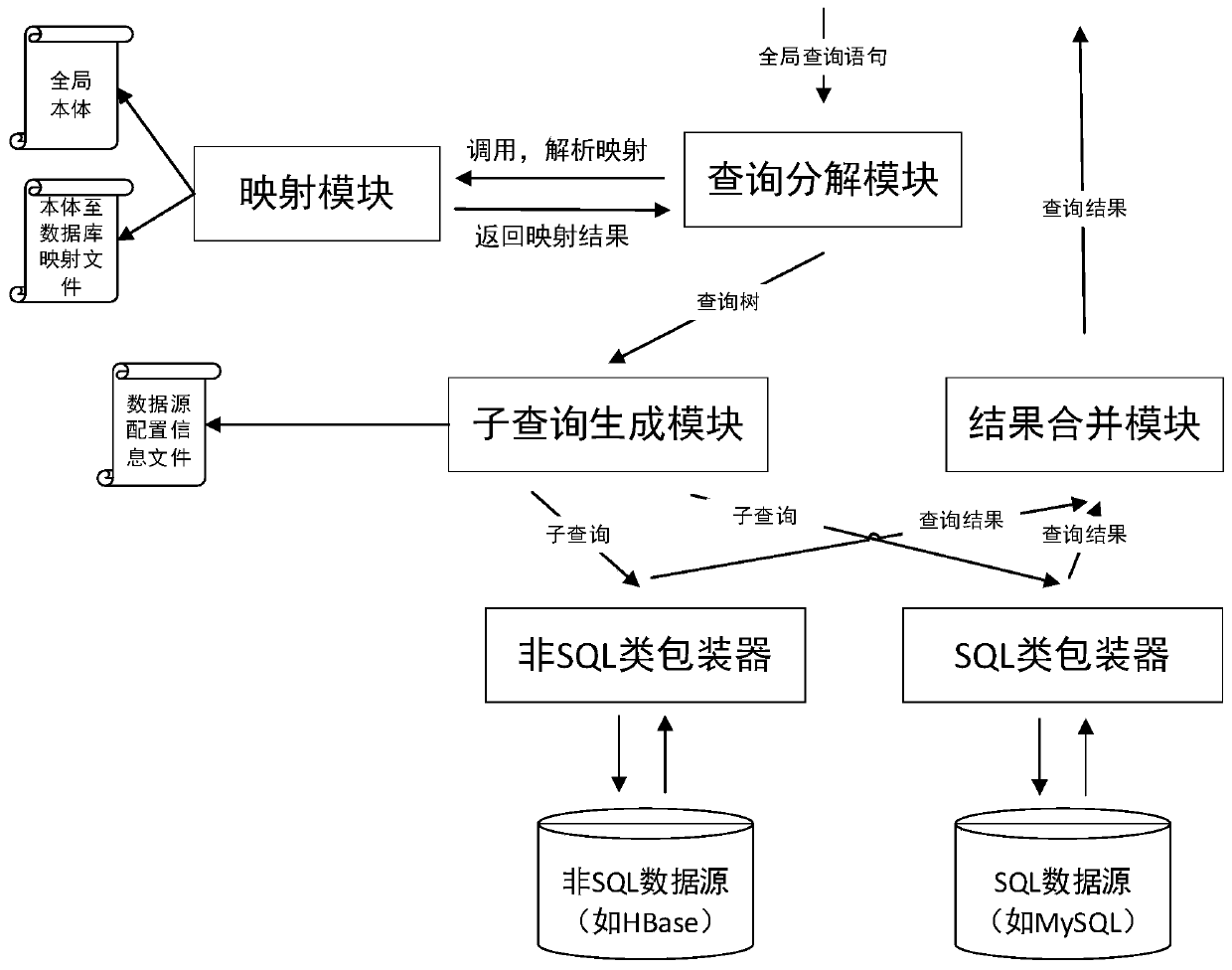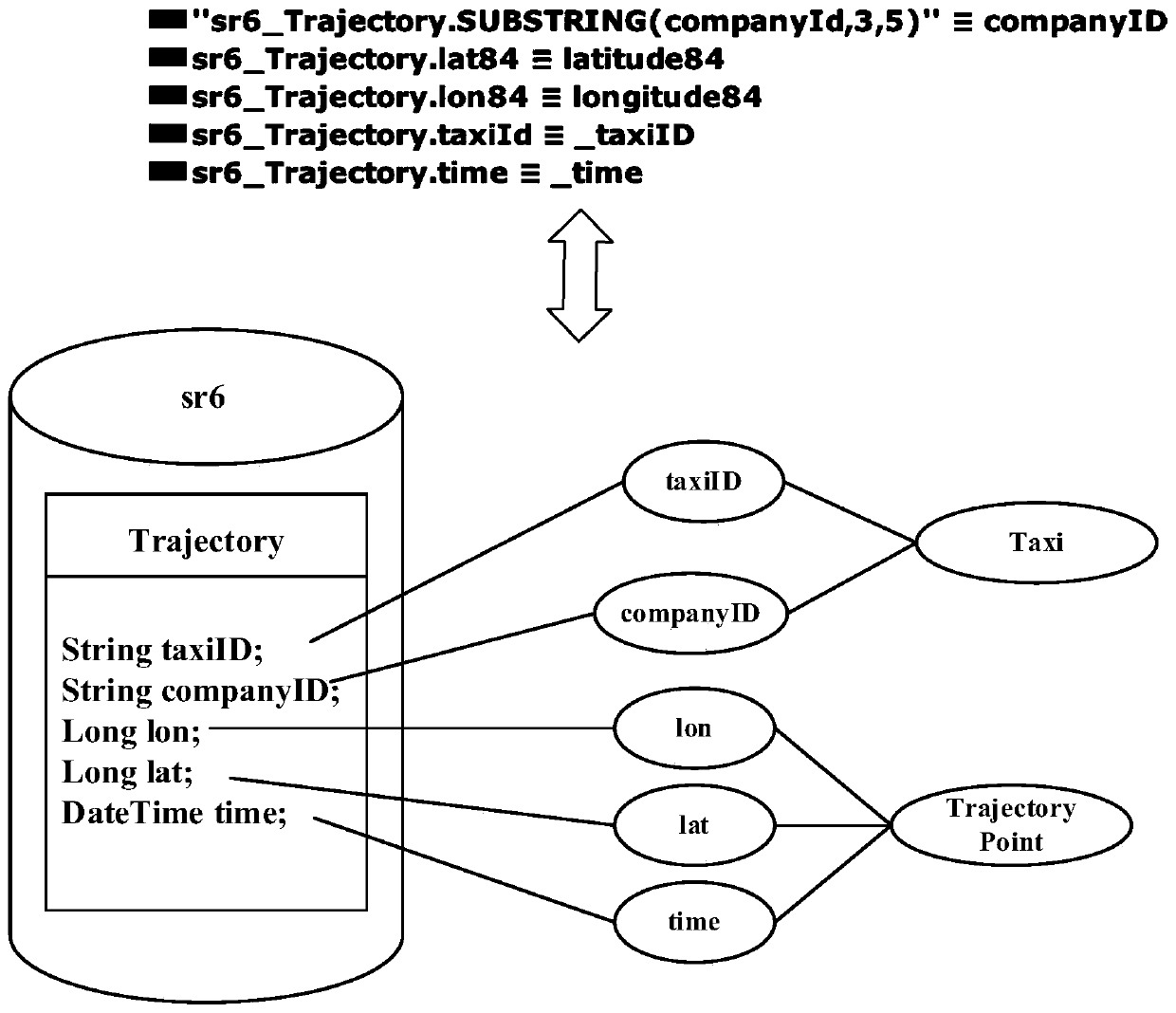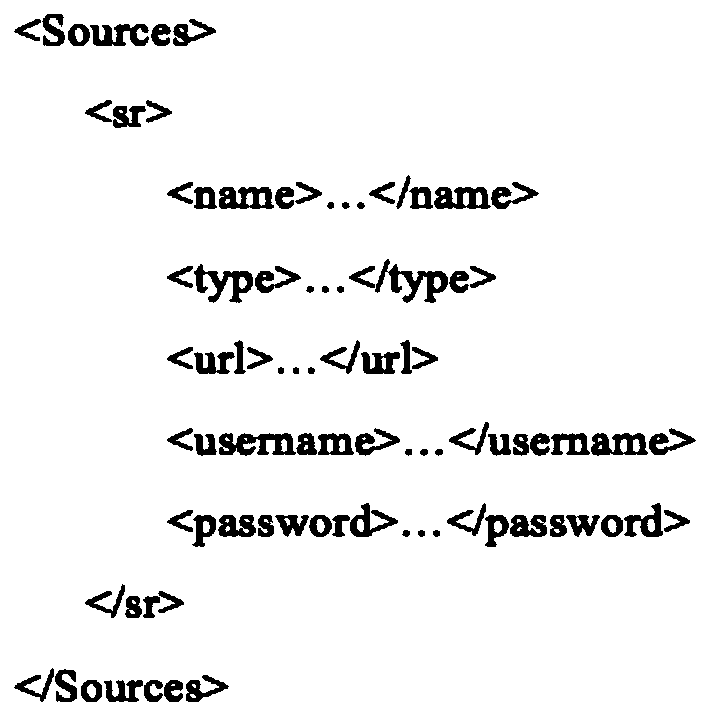Patents
Literature
31 results about "Semantic system" patented technology
Efficacy Topic
Property
Owner
Technical Advancement
Application Domain
Technology Topic
Technology Field Word
Patent Country/Region
Patent Type
Patent Status
Application Year
Inventor
The semantic system is developed from the beginning through early interactions with adults. At first, this usually involves labeling (e.g. This is a tree.) The labeling becomes more sophisticated as more detail is added (e.g., It is a maple tree.
Method and system for translating user keywords into semantic queries based on a domain vocabulary
ActiveUS20140379755A1Improve relevanceDigital data information retrievalDigital data processing detailsSemantic gapWord list
The embodiments of the present invention provide a computer-implemented method and system for translating user keywords into semantic queries based on domain vocabulary. The system receives the user keywords and search for the concepts. The concepts are transformed into a connected graph. The user keywords are translated into precise access paths based on the information relationship described in conceptual entity relationship models and then converts these paths into logic based queries. It bridges the semantic gap between user keywords and logic based structured queries. It enables users to interact with the semantic system by articulating the information in a structured query language. It improves the relevance of search results by incorporating semantic technology to drive the mechanics of the search solution.
Owner:INFOSYS LTD
Semantic system for integrating software components
ActiveUS20080168420A1Website content managementSpecific program execution arrangementsScripting languageMetadata discovery
A method and a scripting paradigm for automatically integrating disparate information systems (e.g., web services and databases) within a given enterprise into a service-oriented architecture. A script writer generates a script using a scripting paradigm, and the resulting script automatically derives new data models, new ontological structures, new mappings, and a new web service that integrates disparate information systems. In addition to integrating disparate information systems, the scripts may be harvested to automate the metadata discovery and retrieval process. The scripting paradigm builds upon existing open-source scripting languages and is compatible with existing internet browsers, thus encouraging mass participation in the integration process.
Owner:MITRE SPORTS INT LTD
Semantic system for integrating software components
A system and method for integrating databases and / or web services into a searchable ontological structure. The structure allows free-form searching of the combined system, discovering an execution path through the ontology to provide answers to queries that may require accessing multiple systems to resolve, without a need for knowledge of the available databases and services or of query syntax by the user.
Owner:MITRE SPORTS INT LTD
Intelligent human-computer interaction method drove by voice
ActiveCN105513593AFacilitate human-computer interactionIncrease intelligence and ease of useSpeech recognitionInput/output processes for data processingSpeech identificationUser needs
The invention discloses an intelligent human-computer interaction method drove by voice. A process flow of the method comprises: a user at a terminal tells a system his or her demands in voice; after the system receives the voice command, the voice is recognized and a character string is obtained by means of the voice recognition technology, then the meaning of the user input is analyzed on the basis of a semantic database; a system dialogue management device combines a knowledge base with the dialogue context, organizes response sentences, and then responds to the user in voice; the user continues dialoguing with the system according to his or her demands until his or her demands are met after receiving the response. Compared with traditional human-computer interaction approaches (such as mouses, keyboards, touch screens), the intelligent human-computer interaction method drove by voice frees our hands to make the human-computer interaction more consistent with the cognition and language habits of human beings, also increases the fun of human-computer interaction, and has a broad application prospect in all fields where computers and the internet are needed for interacting such as network shopping and information inquiry.
Owner:NANJING NORMAL UNIVERSITY
Robotic devices
ActiveUS20200215695A1Programme-controlled manipulatorMathematical modelsSoftware engineeringSemantic system
A robotic semantic system includes one or more smart robotic devices, which may be configured as a stack of modules including a mobility module and one or more sensor modules. A plurality of robotic modules is communicatively coupled to one another, and use variable semantic coherent inferences to allow the devices to perform semantic augmentation.
Owner:LUCOMM TECH
Semantic system for integrating software components
ActiveUS7877726B2Digital data processing detailsDigital computer detailsIntegrated databaseWeb service
A system and method for integrating databases and / or web services into a searchable ontological structure. The structure allows for free-form searching of the combined system and for the discovery of an execution path through the ontology. The discovered execution path (or paths) provides for the generation of code that integrate databases and services for the purpose of fusing information from disparate databases and Web services.
Owner:MITRE SPORTS INT LTD
Retrieving and viewing medical images
As medical imaging becomes more affordable, and the diversity of diagnostic modalities and therapeutic treatments increase, the amount of data being stored increases, and the problem becomes even more critical. One approach to improve retrieval efficiency of images is to employ semantics to establish a defined set of search and classification terms. However, such semantic systems still require the user to make a selection of the most appropriate term or terms to classify a report or image, and the accuracy of the results are thus dependent on the skill and knowledge of the classifier. According to a first aspect of the invention, a retriever is provided for retrieving a medical image having a searchable attribute, the retriever being configured to interface with a semantic database and an image database, and wherein the searchable attribute is determined by segmenting the medical image, using the anatomical model.
Owner:KONINKLIJKE PHILIPS NV
Semantic encoding/decoding method based on knowledge graph sharing, equipment and communication system
ActiveCN112800247AEnsure safetyGuaranteed feasibilityResource allocationSemantic analysisDecoding methodsCommunications system
The invention discloses a semantic encoding / decoding method based on knowledge graph sharing, equipment and a communication system, and belongs to the field of wireless communication. The invention provides three brand-new semantic communication architectures based on knowledge graph sharing, and is expected to become a foundation stone of a 6G technology in the future. Semantic communication mainly depends on a semantic knowledge base which is established between a human user and a machine and has universality and understandability, so that the problem of incompatibility caused by inconsistent information modes in the current machine-machine intelligent connection is expected to be solved, and a foundation is laid for establishing a unified communication protocol architecture capable of meeting intercommunication and interconnection among different types of equipment. Secondly, semantic communication is based on human universality knowledge and a semantic system, so that user service experience during interaction and communication of human-machine intelligent connection and human-human intelligent connection can be fundamentally guaranteed, the number of times of conversion between semantic signals and physical signals is further reduced, and possible semantic distortion is reduced.
Owner:HUAZHONG UNIV OF SCI & TECH
Methods and systems for constructing intelligent glossaries from distinction-based reasoning
A computer implemented method of constructing formal definitions in intelligent glossaries for interpreting text, comprising the steps of: providing at least one Distinction having a Boundary, an Indication, a Counter-indication and a Frame; modeling each Distinction as a diagram to provide a Distinction Model; verifying each distinction model as being an instantiation of a generic Distinction Pattern; providing at least one Arrangement made of nonintersecting Marks of Distinction containing Indications from the verified Distinction Model; writing at least one Formulation for each Indication appearing in verified Distinction model and Arrangement, providing well-founded Indications; calculating precise Formulations in Natural Language from well-founded Indications by substituting Variables symbols and / or replacing Constants symbols to transform imprecise Formulations into precise Formulations; selecting a Definition type and embedding at least one precise Formulation and Definition type as a formal Definition in an Intelligent Glossary to provide computerized Semantic Systems of Intelligent Glossaries.
Owner:AEBIS
Robotic Devices
A robotic semantic system includes one or more smart robotic devices, which may be configured as a stack of modules including a mobility module and one or more sensor modules. A plurality of robotic modules is communicatively coupled to one another, and use variable semantic coherent inferences to allow the devices to perform semantic augmentation. The robotic modules are communicatively coupled with an insurance entity for providing analysis and opinion reporting regarding incidents.
Owner:LUCOMM TECH
Method for modeling a technical system
InactiveUS20170091347A1Reduce in quantityGood clarificationProgramme controlSimulator controlTheoretical computer scienceSemantic system
In the method for modeling a technical system, a semantic system model of the technical system is generated and the dependencies inside the system model are analyzed by a dependency analysis based on properties of the semantic system model.
Owner:SIEMENS AG
Retrieving and viewing medical images
ActiveUS20120066241A1Shorten the timeAccurate detectionDigital data processing detailsMedical report generationDiagnostic modalitiesSkill sets
As medical imaging becomes more affordable, and the diversity of diagnostic modalities and therapeutic treatments increase, the amount of data being stored increases, and the problem becomes even more critical. One approach to improve retrieval efficiency of images is to employ semantics to establish a defined set of search and classification terms. However, such semantic systems still require the user to make a selection of the most appropriate term or terms to classify a report or image, and the accuracy of the results are thus dependent on the skill and knowledge of the classifier. According to a first aspect of the invention, a retriever is provided for retrieving a medical image having a searchable attribute, the retriever being configured to interface with a semantic database and an image database, and wherein the searchable attribute is determined by segmenting the medical image, using the anatomical model.
Owner:KONINKLIJKE PHILIPS ELECTRONICS NV
Semantic Robotic System
A robotic semantic system includes one or more smart robotic devices, which may be configured as a stack of modules including a mobility module and one or more sensor modules. A plurality of robotic modules is communicatively coupled to one another, and use variable semantic coherent inferences to allow the devices to perform semantic augmentation.
Owner:LUCOMM TECH
Semantic system for integrating software components
ActiveUS8640087B2Website content managementSpecial data processing applicationsScripting languageMetadata discovery
Owner:MITRE SPORTS INT LTD
Retrieving and viewing medical images
ActiveUS9390236B2Accurate detectionSufficient supplyDigital data processing detailsMedical report generationDiagnostic modalitiesSemantic system
Owner:KONINK PHILIPS ELECTRONICS NV
Image-text double-coding mechanism implementation model based on CR<2> neural network
The invention discloses an image-text double-coding mechanism implementation model based on a CR2 neural network, and relates to the field of human cognition and knowledge representation. The image-text double-coding mechanism implementation model based on the CR<2> neural network is characterized in that the implementation model includes a representation system which adopts a multilayer Convolutional Neural Network (CNN) model to obtain ''image units'' representing mental images of information; and a semantic system which adopts an RNNLM language model to obtain ''language units'' representing information semantics; a reference association system which adopts an RBF self-propagation neural network model, wherein a positive model uses the ''image units'' as input, output is the ''language units'' associated for reference, and an inverse model is inverse operation of the positive model. Here the CR<2> neural network refers to an organic composition of three neural networks of CNN, RNN and RBF. The image-text double-coding mechanism implementation model based on the CR2 neural network realizes establishment of models of an image representation system and a natural language semantic system, and also establishes a model of reference association between the two systems. The models completely simulate the whole process of an image-text double-coding cognition mechanism.
Owner:CHONGQING UNIV
Code analysis tool for recommending encryption of data without affecting program semantics
ActiveCN107409040AKey distribution for secure communicationMultiple keys/algorithms usageComputer hardwareSemantic system
Owner:MICROSOFT TECH LICENSING LLC
Method and system for translating user keywords into semantic queries based on a domain vocabulary
ActiveUS10002159B2Improve relevanceDigital data information retrievalSpecial data processing applicationsSemantic gapWord list
The embodiments of the present invention provide a computer-implemented method and system for translating user keywords into semantic queries based on domain vocabulary. The system receives the user keywords and search for the concepts. The concepts are transformed into a connected graph. The user keywords are translated into precise access paths based on the information relationship described in conceptual entity relationship models and then converts these paths into logic based queries. It bridges the semantic gap between user keywords and logic based structured queries. It enables users to interact with the semantic system by articulating the information in a structured query language. It improves the relevance of search results by incorporating semantic technology to drive the mechanics of the search solution.
Owner:INFOSYS LTD
Methods and systems for constructing intelligent glossaries from distinction-based reasoning
A computer implemented method of constructing formal definitions in intelligent glossaries for interpreting text, comprising the steps of: providing at least one Distinction having a Boundary, an Indication, a Counter-indication and a Frame; modeling each Distinction as a diagram to provide a Distinction Model; verifying each distinction model as being an instantiation of a generic Distinction Pattern; providing at least one Arrangement made of nonintersecting Marks of Distinction containing Indications from the verified Distinction Model; writing at least one Formulation for each Indication appearing in verified Distinction model and Arrangement, providing well-founded Indications; calculating precise Formulations in Natural Language from well-founded Indications by substituting Variables symbols and / or replacing Constants symbols to transform imprecise Formulations into precise Formulations; selecting a Definition type and embedding at least one precise Formulation and Definition type as a formal Definition in an Intelligent Glossary to provide computerized Semantic Systems of Intelligent Glossaries.
Owner:AEBIS
Sound-informing semantic system
The invention discloses a sound-informing semantic system, which comprises an equipment management module, a dictionary management module, a noise management module, a semantic management module, a semantic test module, a company management module and a synonym management module which are in signal connection; the equipment management module is used for checking the robot, the grouping managementrobot and the quick search robot which are distributed to the account; the dictionary management module is used for adding vocabularies without exact words, reloading the activated dictionary and customizing industry special voice packets; dictionary words and a public semantic library are arranged in dictionary management module. According to the invention, massive general question and answer resources are provided, and a personalized semantic analysis and personalized voice expression scheme is provided; meanwhile, the system can access a plurality of semantic schemes such as Fesion, Baidu,IBM Watson, Nuance and the like in parallel, users select semantic results according to their own preferences, and the system can be applied to places such as retail, education, medical treatment, government affairs, hotels, enterprises and the like.
Owner:深圳市三宝创新机器人有限公司
Situation text message semantic compression coding method based on TSS coding
The invention provides a situation text message semantic compression coding method based on TSS coding, belongs to the field of semantic situation text message compression coding, and carries out coding according to time elements, space elements and semantic elements contained in a situation text message. The method comprises the following steps: firstly, extracting key semantic element connotations in a to-be-compressed situation text semantic message, and then, firstly, constructing a situation semantic element coding scheme library and a coding scheme Bayesian decision model according to confrontation application fields related to various text messages for situation semantic elements in the to-be-compressed situation text semantic message; selecting a model by means of the constructed coding scheme to carry out semantic compression coding; aiming at the time semantic elements, constructing a two-stage coding strategy, and respectively coding the time reference and the time difference; for spatial semantic elements, a multi-level spatial address semantic system is constructed, and spatial mapping coding is performed on spatial semantics in various different expression modes such as longitude and latitude, place names and the like. According to the invention, redundant data can be removed, and the transmission data volume is reduced.
Owner:NO 54 INST OF CHINA ELECTRONICS SCI & TECH GRP
Dynamic and static resource separation method based on SysML model semantic web system
The invention discloses a dynamic and static resource separation method based on a SysML model semantic web system, and the method comprises the following steps that a user initiates a request, and the request reaches an Nginx server; the Nginx server separates dynamic resources and static resources of the Web application through a configuration port, a support data format, the size of a cache region and a location specified proxy path; and the Nginx server selects different processing servers through the resource categories. According to the method, the dynamic resources and the static resources are separated by utilizing the characteristics of the Nginx, so the response of the server is greatly accelerated, and various requests can be responded.
Owner:苏州华望信息科技有限公司
Human-centered basic knowledge system construction method
PendingCN114417014AQuantity size is not limitedUnlimited quantity and scaleSemantic analysisKnowledge representationBasic knowledgeNatural language understanding
The invention discloses a human-centered basic knowledge system construction method. The method comprises the following steps: constructing a semantic knowledge framework; selecting corresponding vocabulary entries from the existing vocabulary or dictionary; semantic system labels of the entries are determined and labeled; generating a semantic knowledge system taking the vocabulary entries, the vocabulary entry information and the semantic system labels as contents; the constructed semantic knowledge system is applied to text semantic annotation and serves natural language understanding and natural language processing of texts.
Owner:TONGFANG KNOWLEDGE NETWORK TECH CO LTD (BEIJING) +1
Systems and methods for intent guided related searching using sequence semantics
Systems and methods for generating proposed search queries based on sequence semantics. The method includes receiving clickstream data from a database. The method also includes generating for each user a digital timeline based on the clickstream data. The method further includes determining for each user event pairs based on the digital timeline. The method also includes generating a vector matrix including the event pairs for each user. The method further includes receiving an initial search query from a user. The method also includes determining an intended user activity based on the initial search query. The method further includes generating proposed search queries based on the vector matrix, the intended user activity, and the initial search query.
Owner:FMR CORP
Semantic encoding/decoding method, device and communication system based on knowledge graph sharing
ActiveCN112800247BEnsure safetyGuaranteed feasibilityResource allocationSemantic analysisDecoding methodsInteroperability
The invention discloses a semantic encoding / decoding method, device and communication system based on knowledge graph sharing, and belongs to the field of wireless communication. The present invention proposes three new semantic communication architectures based on knowledge graph sharing, which is expected to become the cornerstone of future 6G technology. Since semantic communication mainly relies on the establishment of a universal and understandable semantic knowledge base between human users and machines, it is expected to break the incompatibility problem caused by the inconsistency of information modalities in the current machine-gizmo connection, and provide The establishment of a unified communication protocol architecture that can meet the interconnection between different types of devices lays the foundation. Secondly, since semantic communication is based on the universal knowledge and semantic system of human beings, it can fundamentally guarantee the user service experience in the interaction and communication between human-wisdom and human-human intelligence, and further reduce the gap between semantic and physical signals. conversion times, thereby reducing possible semantic distortion.
Owner:HUAZHONG UNIV OF SCI & TECH
Interesting building block for English word memory training
InactiveCN114495600AImprove practical abilitySimple structureElectrical appliancesMechanical appliancesControl systemSemantic system
The invention discloses an interesting building block for English word memory training, which comprises a box body, the box body is provided with a display screen, building block insertion holes and building block grooves, a plurality of building blocks corresponding to 26 English letters are placed in the building block grooves, identification chips corresponding to the 26 English letters are arranged in the building blocks, a control system is arranged in the box body, and the control system is connected with the display screen. The control system comprises a processing center, the processing center is electrically connected with a recognition system, a storage center and a voice system, the recognition system is electrically connected with recognition chips in the building blocks, the voice system is connected with a loudspeaker, and children insert the building blocks corresponding to different English letters into the building block insertion holes and arrange the building blocks on the box body to form words. The paraphrases of the words are displayed on the display screen, meanwhile, the semantic system pronunciates for teaching reading, the manipulative ability of children is improved, the combination and colors of the building blocks can attract the children, and the interestingness of learning is improved.
Owner:JIAXING VOCATIONAL TECHN COLLEGE
A method for implementing a mobile-based semantic slam system
ActiveCN108230337BBreak the bottleneck of insufficient computing powerImprove reconstruction accuracyImage enhancementImage analysisPoint cloudMobile end
A method based on mobile semantic SLAM system involves the integration of SLAM system construction and point cloud semantic analysis.Including the following steps: 1) Solving the camera posture based on the characteristics of improved FAST and LDB features; 2) the back -end optimization obtains accurate point cloud position and camera posture; 3) return to the ring test; 4) the construction of global point cloud maps for construction; 5) Use the SLAM system to realize the augmented reality system; 6) Use semantic segmentation to achieve 3D point cloud synonyms; 7) Optimization of mobile semantic SLAM system based on the mobile terminal.For environmental cognition and augmented reality in the flexible indoor and outdoor scenarios, especially in the fields of driverless driving and path planning, it obtains low cost and good performance solutions, and has a wide range of application value and expansion capabilities.
Owner:XIAMEN UNIV
DIKW mapping block chain content determination method oriented to essential calculation and reasoning
PendingCN114357011ARealize on-chainHigh speedDigital data information retrievalSemantic analysisSemantic representationTheoretical computer science
The invention provides a DIKW mapping block chain content determination method oriented to essential calculation and reasoning, and the method comprises the following steps: obtaining block chain typed data, and constructing a block chain DIKW model according to the block chain typed data; a user initiates a request for content to be added, user typed data initiating the request are obtained, and a user DIKW model is constructed according to the user typed data; the block chain DIKW model performs semantic analysis on the to-be-added content and obtains a block chain semantic representation, and the user DIKW model performs semantic analysis on the to-be-added content and obtains a user semantic representation; performing semantic comparison on the semantic representation of the block chain and the semantic representation of the user, and adding the content to be added to the tail end of the block chain with the consistent semantic comparison result; according to the method, the DIKW graph is combined with the block chain, semantic analysis can be performed on the to-be-added content according to the semantic systems contained in the two parties, so that rapid matching can be performed, the to-be-added content can be rapidly chained, and the chaining speed and the content consistency judgment speed are improved.
A sensor system for building structure safety monitoring
The invention proposes a sensor semantic system including sensor nodes, a local-area network, a monitoring-center server, the Internet and a text-message alarm module. The sensor nodes are arranged on parts to be detected and connected with the monitoring-center server through the local-area network. A built-in web server of the monitoring-center server provides data services or sends forewarning information to remote users through the Internet and forewarning text messages can also be sent through the text-message alarm module. The system is characterized in that the sensor nodes include a sensor information semantic module, a detected-point information semantic module and a sensed-data semantic module and the three semantic modules are associated through attributes and add a semantic background for data output by the sensor. An RDF (Resource Description Framework) is used to describe the three semantic modules and sensor information, detected-point information and sensed data are defined as resources on networks through a URI (Universal Resource Identifier). The sensed-data semantic module carries out semantic annotation on data so that semantic data are formed and then stored. When a storage space exceeds a limit, data saved at earliest time are covered automatically and at the same time, the semantic data are submitted to the monitoring-center server through a server interface module.
Owner:BEIJING UNIV OF TECH +1
An ontology-based system and method for urban traffic heterogeneous data integration
ActiveCN107491561BFix formatting inconsistenciesDatabase management systemsSpecial data processing applicationsTheoretical computer scienceSemantic system
Owner:BEIHANG UNIV
Features
- R&D
- Intellectual Property
- Life Sciences
- Materials
- Tech Scout
Why Patsnap Eureka
- Unparalleled Data Quality
- Higher Quality Content
- 60% Fewer Hallucinations
Social media
Patsnap Eureka Blog
Learn More Browse by: Latest US Patents, China's latest patents, Technical Efficacy Thesaurus, Application Domain, Technology Topic, Popular Technical Reports.
© 2025 PatSnap. All rights reserved.Legal|Privacy policy|Modern Slavery Act Transparency Statement|Sitemap|About US| Contact US: help@patsnap.com
